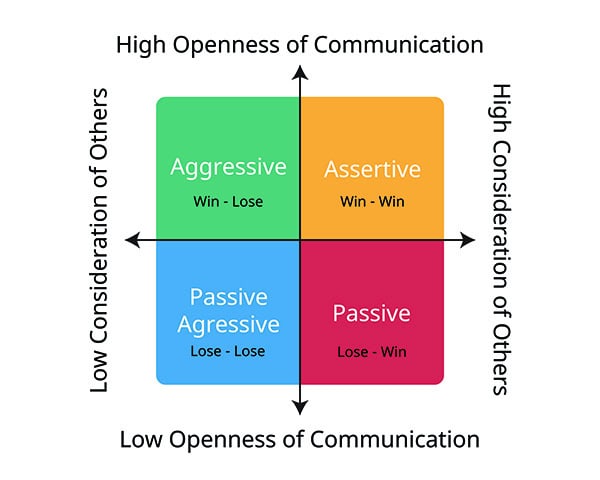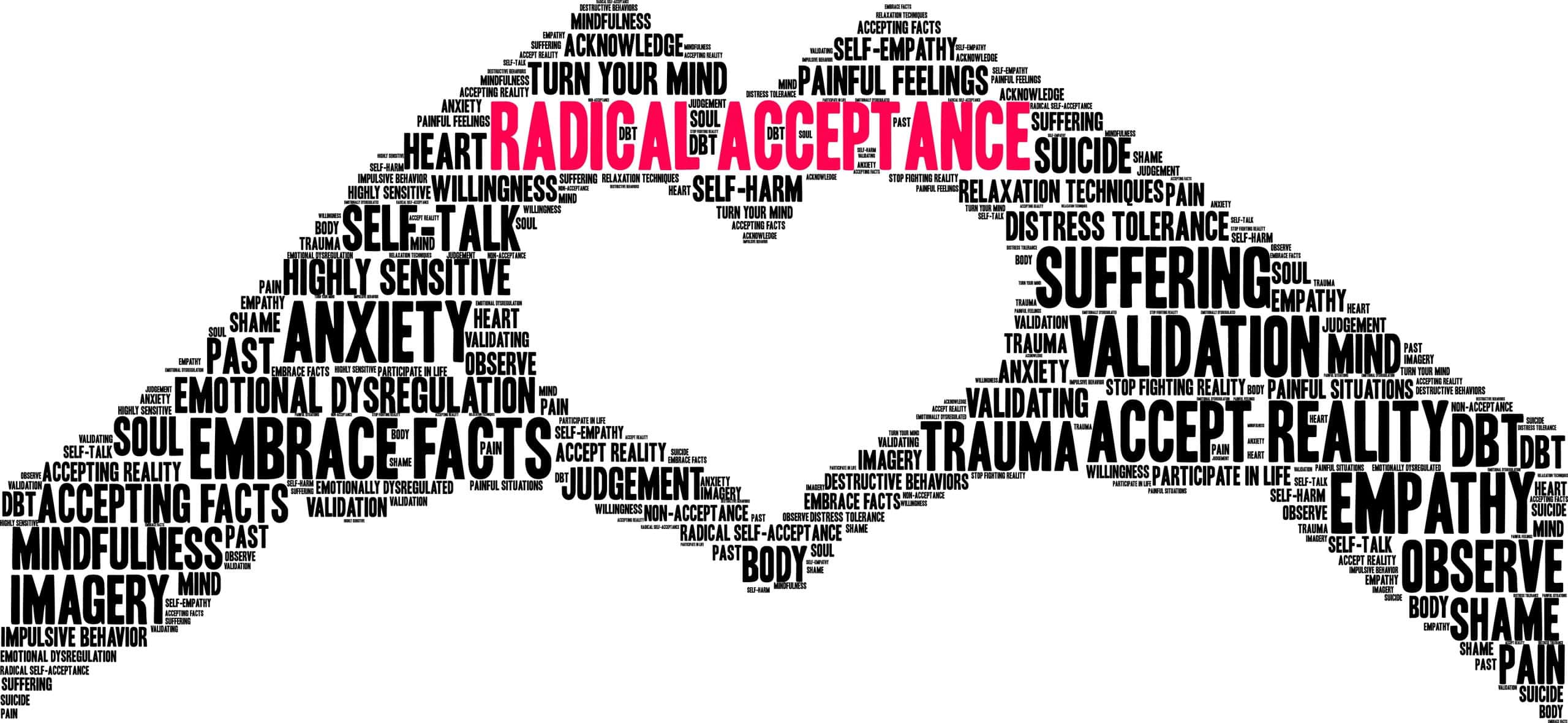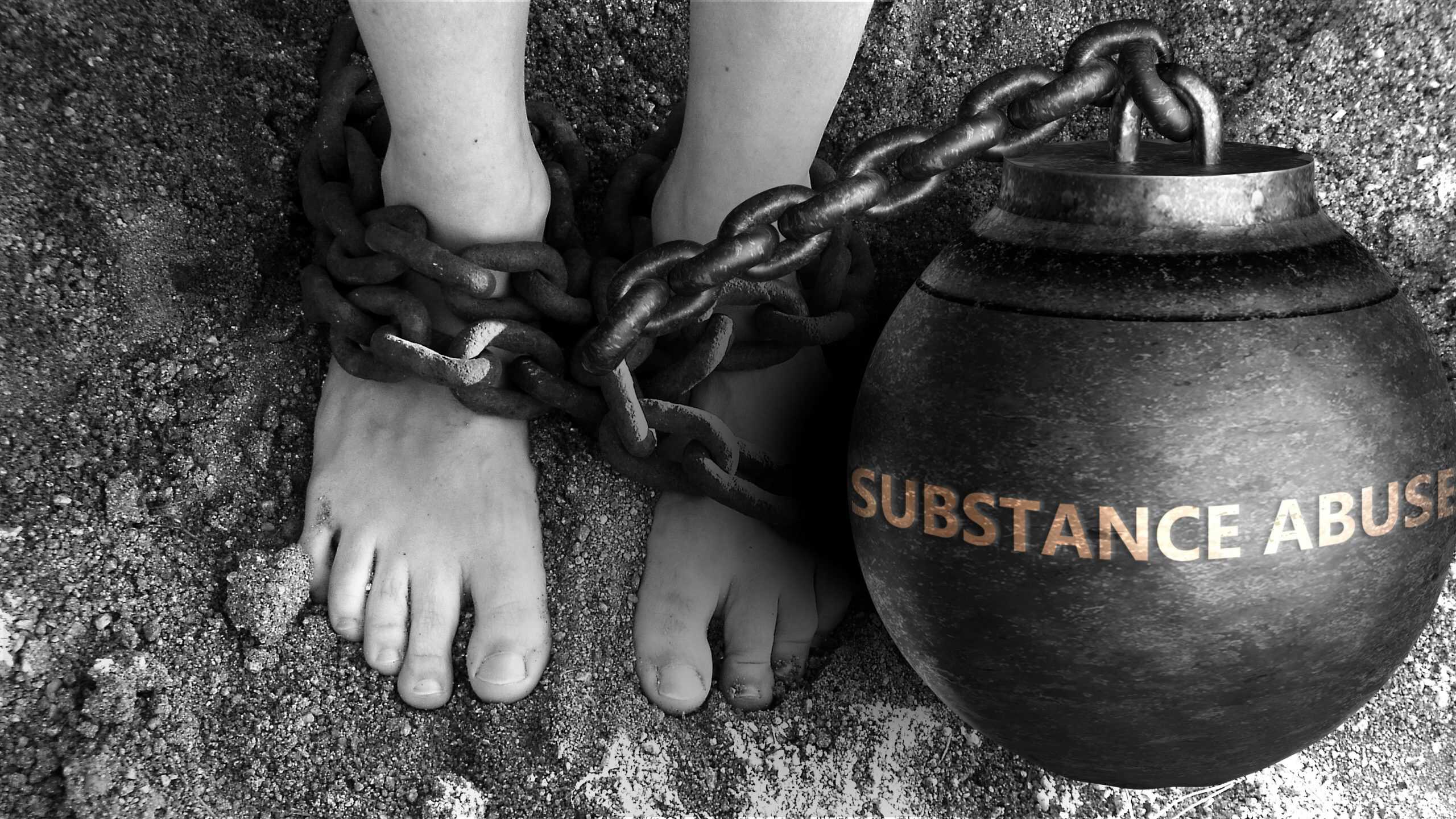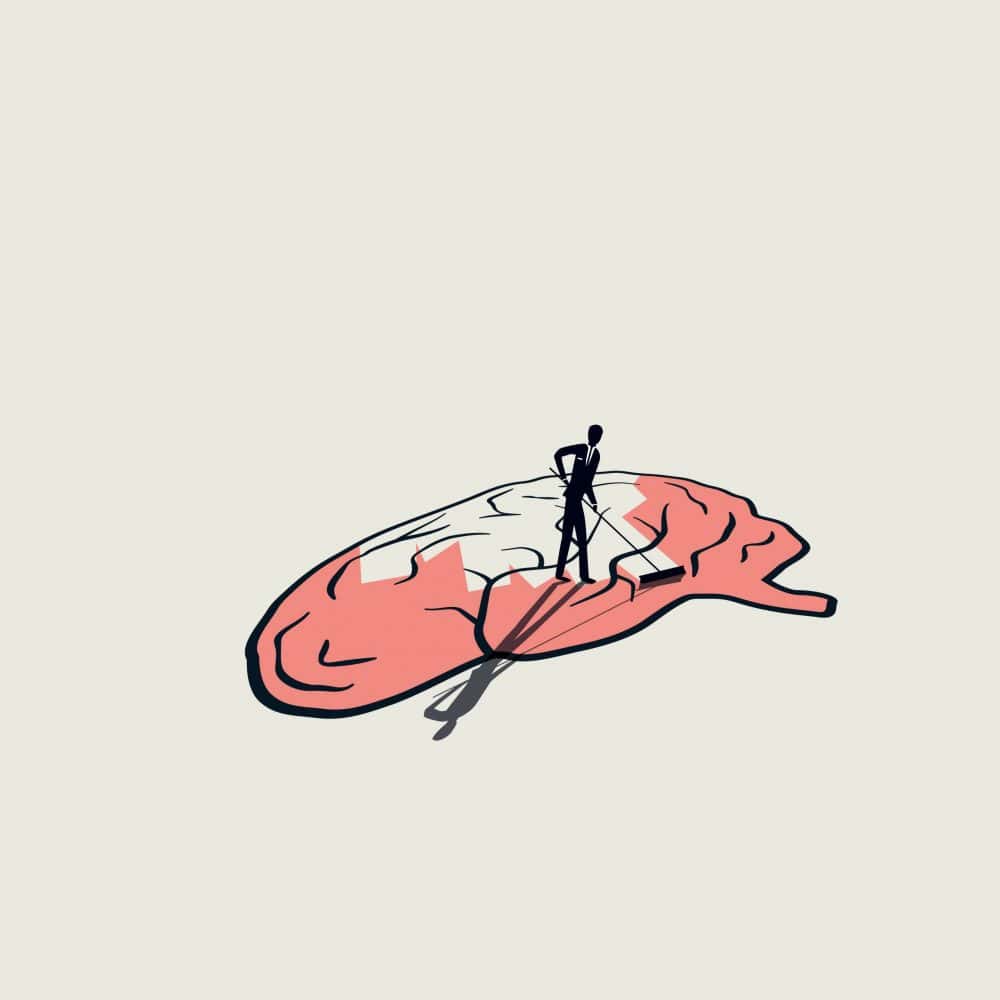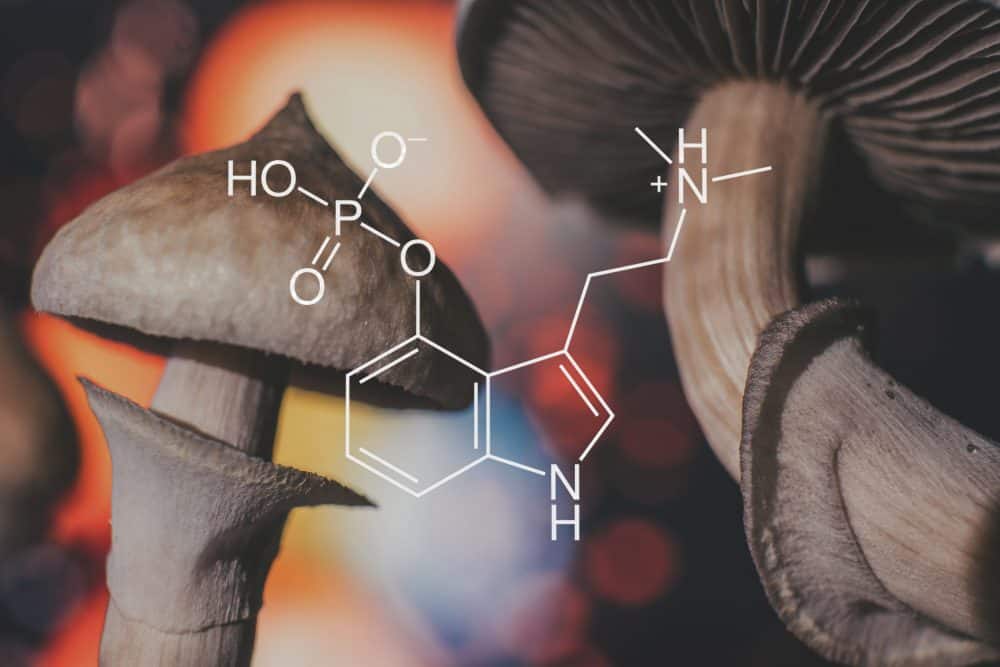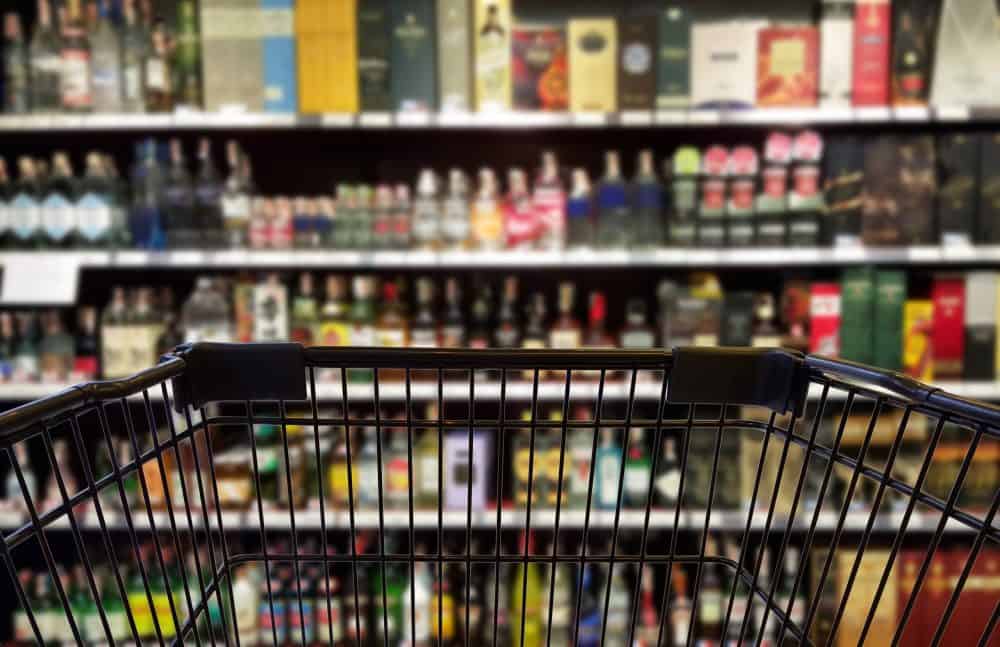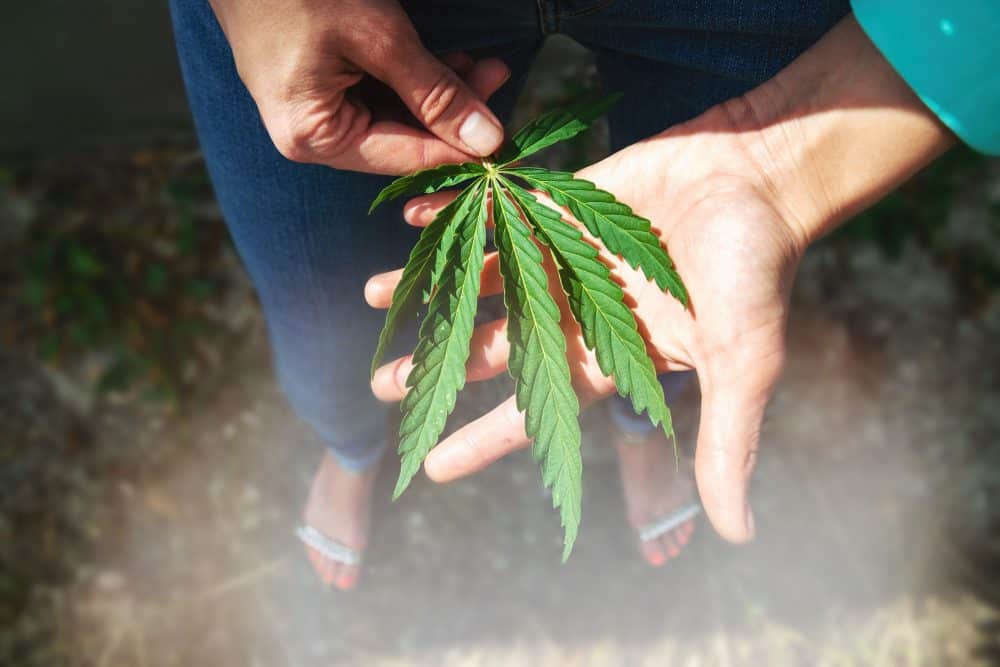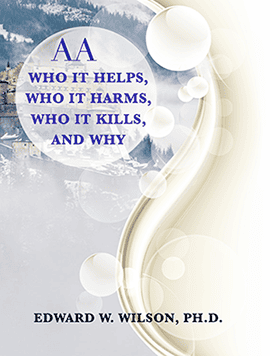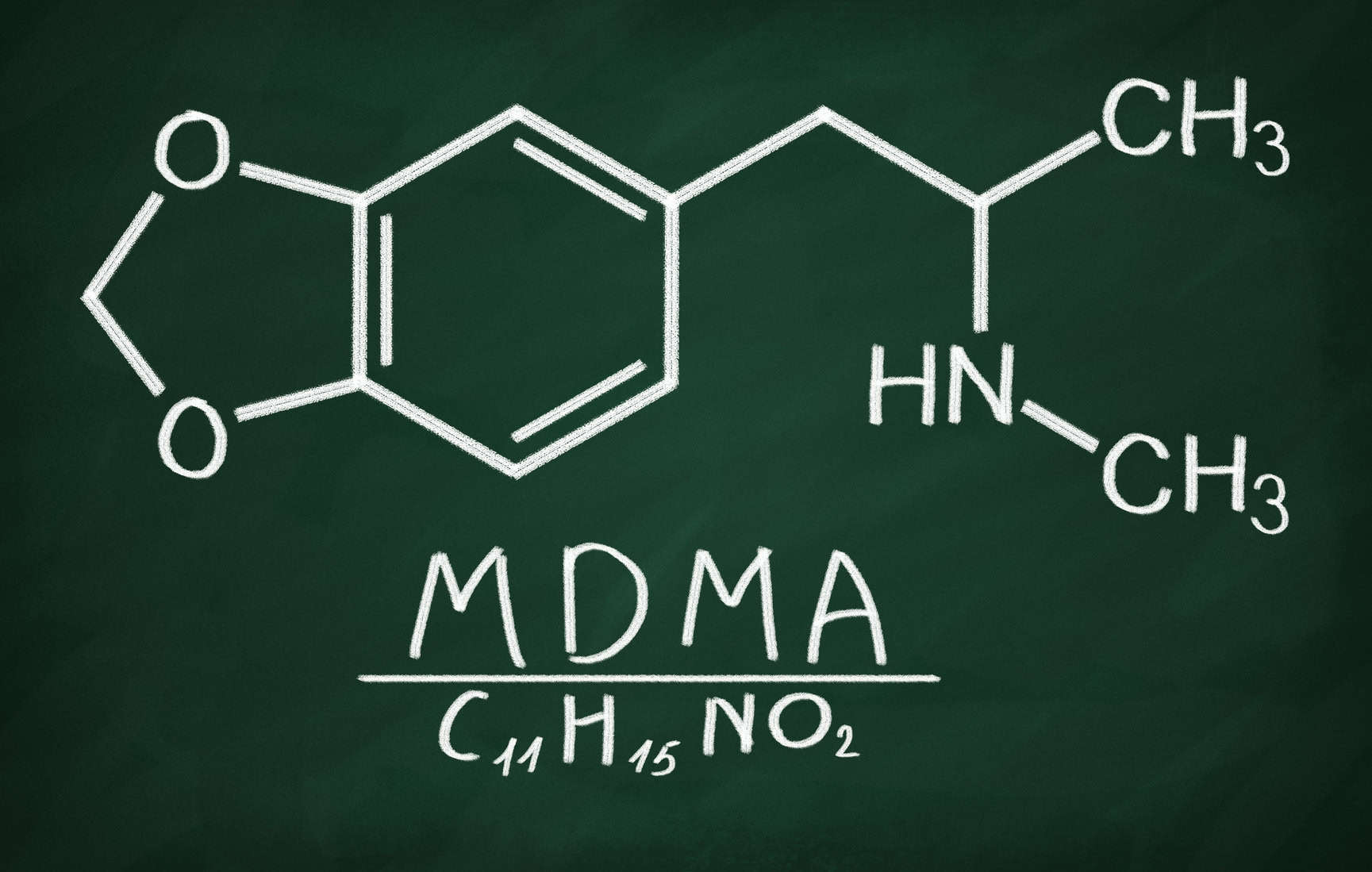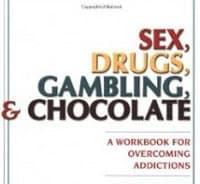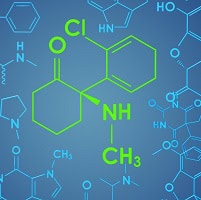Practical Recovery Blog
Our addiction blog is provided to support sober living and information on the latest in drug and alcohol recovery. Subscribe to our addiction blog and stay in touch with those who care.
-
Posted on June 27, 2025
Early Research on LSD for Alcohol Problems: A Look at State Mental Hospitals and Elsewhere
By Kenneth Anderson, MA
In the 1950s, researchers such as Humphry Osmond and Abram Hoffer in Saskatchewan, Canada developed a unique therapy for alcoholism which entailed using a psychedelic experience to alter the beliefs and values of the alcoholic patients. Set and setting were essential variables in successfully inducing a psychedelic experience. The term "set" refers to the internal mindset of the person about to undergo the psychedelic experience. Patients were given weeks of psychological preparation by the researchers before they were given LSD, in order to ensure that they had the proper mindset for a positive and life-altering psychedelic experience. The term "setting" referred to th...
full story
-
Posted on June 20, 2025
by Tom Horvath, PhD
Do you consider the food manufacturing companies to be “drug dealers?” Back to that question in a moment.
What’s a food manufacturer? A company that creates ultra-processed foods (also known as “hyper-palatable foods”). Ultra-processed foods are manufactured first by taking genuine foods and breaking them into specific components (such as starches, sugars, flavors, and fats). Then those components are combined (depending on the food) with salt, artificial sugar, hydrogenated fats, artificial colors, stabilizers, etc. The result is a food that is highly tasty (and preferably has a long shelf life). This food might be hard to pass up, but your body will typically appreciate it if you do.
How to spot a manufactured food? Two basic clues are the length of the in...
full story
-
Posted on June 13, 2025
Negativity Bias: How Negative Are You?
By Tom Horvath, PhD
Almost 25 years ago two psychologists coined the term “negativity bias.” It refers to our tendency to focus on information, cues, or ideas that are negative, even when we have positive information around us. For instance, after a meeting in which our ideas are presented, we are more likely to remember and focus on the one criticism, rather than the five positive comments. Even animals have this bias, so it has a long history.
The negativity bias has the advantage of promoting our survival, particularly in a hunter-gather environment. We were better off staying focused on the rustle in the bushes nearby (because it might be an animal seeking to eat us) than the good taste of what we ourselves were eating. We are descended ...
full story
-
Posted on June 6, 2025
By Kenneth Anderson, MA
Is Moderate Drinking Protective Against Alzheimer's Disease?
Brain Changes with Alzheimer's Disease
Amyloid Beta Plaques
We have known for more than a century that the brains of people with Alzheimer's disease are filled with amyloid beta plaques and neurofibrillary tangles. Moreover, the brains of people with Alzheimer's disease are severely atrophied due to the death of brain cells. Most researchers believe that the brain atrophy and death of brain cells found in Alzheimer's disease is due to the effects of amyloid beta plaques and neurofibrillary tangles, although many details about this process remain unclear. It is also unclear whether amyloid beta plaques and neurofibrillary tangles contribute equally to the death of brain cells or if one of these is th...
full story
-
Posted on May 16, 2025
Tom Horvath, Ph.D.
The second National Conference on Addiction Recovery Science was held online 4/23-24, 2025. The closing panel presentation was “Recovery Science: What Do We Know, and What Do We Need to Know?” The panel consisted of internationally recognized experts on this topic: David Best, Andrew Finch, Christine Grella, Keith Humphreys, and Sarah Zemore. The panel was skillfully moderated by Amy Mericle and Lourah Kelly.
Here are my takeaways from the Addiction Recovery Science Conference:
There was general support from the panel for the following ideas:
Severe addictive problems are chronic disorders, but with many variations.
Services for these problems need to be enduring.
There is overwhelming evidence that AA (Alcoholic Anonymous) works (for those who will ...
full story
-
Posted on May 9, 2025
The Value of Advocating for Safer (But Not Reduced) Substance Use
By Tom Horvath, PhD
In a study recently published online, researchers at Brown University (a major US addiction research site) compared an intervention to reduce the drinking of heavy drinking college students (without focusing on the consequences of drinking), with an intervention to reduce the negative consequences from drinking (without focusing on the amount of drinking).
Both interventions worked as predicted. The first group (PNF; Personalized Normative Feedback) reduced drinking (without reducing consequences) and the second group (CAA; Counter-Attitudinal Advocacy) reduced consequences (without reducing drinking). The subjects were 585 students who by self-report engaged in episodes of heavy drinking and ...
full story
-
Posted on May 2, 2025
By Tom Horvath, PhD
SMART’s 3rd edition Handbook lasted about 12 years. Because SMART is committed to staying current with scientific advances, it was time for an update.
The first update is the title: SMART Recovery 4-Point Program Handbook. SMART now considers itself to offer three programs (or services): 4-Point Program meetings (for individuals with addictive problems), Family and Friends meetings (for their loved ones), and the Multiple Pathways Partnership (for organizations that want to support SMART and the concept of “multiple pathways for change”).
The Handbook simplifies the language of the 3rd edition, removes some acronyms by renaming some tools (also in service of simplifying the language), adds some tools (particularly ones that reflect third wave CBT), emphasiz...
full story
-
Posted on April 18, 2025
Neuronal Plasticity, Mindfulness Meditation, and Addiction Recovery
by Nicholas A. Nelson, Ph.D.
Part 2 of 2
In Part 1, we visited the motivations for leveraging mindfulness as a tool for overcoming problematic addictive behaviors. We discussed the concept of neuroplasticity and took a theoretical look at how mindfulness meditation can aid in reshaping our brain and behavior during addiction recovery.
In Part 2 we’ll take a look at a few specific scientific studies that have put these theories to the test, then wrap up with a discussion of what mindfulness meditation can feel like in practice. Let’s dive in.
The Frontal Lobe
Because the neuroscience of addiction and neuroscience of meditation are rather complex and relatively new topics, they are still undergoing rapid...
full story
-
Posted on April 11, 2025
The SMART Recovery 2025 Annual Conference,
Charlotte, NC, April 2-4
By Tom Horvath, PhD
In summary: SMART is thriving, and recognition of SMART in the recovery and wider world seems to be accelerating. Entire systems of services (e.g., state prison systems, national prison systems, treatment systems) are adopting SMART Recovery meetings.
Part of the purpose of this conference was to celebrate SMART’s growth and to thank the volunteers (our “champions”) who have grown it. SMART Recovery now has approximately 1800 meetings in the US and Canada. The main presentation room only had space on its walls for 20 flags (of the 32) of SMART’s other countries. Worldwide there are nearly 3000 meetings. SMART now has printed materials in 18 languages.
There were about 220 attendees (up...
full story
-
Posted on March 27, 2025
by Tom Horvath, PhD
There are many occupations considered to be safety-sensitive. The industries from which they are drawn include healthcare, transportation, and construction. Specific occupations include physicians, airline pilots, and heavy equipment operators. When these individuals have their substance use monitored (often because of recent substance problems), what principles should guide the creation of the monitoring plan? Let us focus on alcohol, because it may be the most common substance monitored.
There are many methods to monitor alcohol use. They differ according to the timeframe they observe, their accuracy (will they miss use that occurred?), whether they assess the substance itself or a metabolite, the convenience of use (e.g., including how far one must go to get...
full story
-
Posted on March 21, 2025
By Tom Horvath, PhD
In the state of California, a licensed residential substance use treatment facility (a “rehab”) needs to provide 20 hours of treatment per week. Typically, this treatment is provided in groups. In many rehabs there is only one individual session per week, the minimum required by law.
The groups in a rehab have significant similarities with SMART Recovery meetings, particularly if a SMART participant talks about their specific goals and challenges. If someone were primarily interested in the treatment aspect of being in a rehab, 20 SMART meetings per week would be a reasonable alternative to residential treatment.
To make the best use of SMART meetings the participant would benefit from having an individual session a week, just like in the rehab. The individu...
full story
-
Posted on March 14, 2025
By Tom Horvath, PhD
This article focuses on physicians with substance problems (and by extension all licensed professionals). However, the underlying idea, that those wanting to assist someone with substance problems should focus on ends not means, applies widely.
In most US states there is a state-recognized Physician Health Plan (PHP) which often controls how physicians who have substance problems are dealt with. Similar plans exist for other licensed professionals. These organizations do much beneficial work. No one wants a licensed professional with substance problems. The national organization for PHPs is: https://www.fsphp.org, the Federation of State Physician Health Plans.
In this article I focus on some major problems with PHPs (and the parallel organizations). The ide...
full story
-
Posted on March 7, 2025
By Tom Horvath, PhD
Mutual help groups for addictive problems have been in existence for centuries. No one knows exactly how they work. What follows is my best estimate of what happens in SMART Recovery meetings, and how they help.
How SMART Recovery Works
SMART offers an approach that will appeal to many (for either substance problems, activity problems, or both) because it is self-empowering, science based, progress-oriented, and holistic. Other mutual help approaches will appeal to other people. Some people may use multiple approaches.
In 1994, when SMART Recovery began operating under that name, SMART elected to move beyond specific tools (which had been prominent in its pre-history) by identifying 4 common tasks for the process of addressing an addictive problem, the 4 Poin...
full story
-
Posted on February 21, 2025
Neuronal Plasticity, Mindfulness Meditation, and Addiction Recovery
by Nicholas A. Nelson, Ph.D.
Part 1 of 2
It is not uncommon during active addiction or early in recovery for people to feel that their brain is working somehow differently than before, or to feel like it is going to be impossible to break out of harmful habits and thought patterns. It can feel like the mind is damaged, or operating out of our control. This lack of control, and feeling that something is broken, can lead to a sense of hopelessness.
When we look at the brain there is some truth to this feeling - during engagement with problematic addictive behaviors and during early recovery, our brains are not wired in the same way as before these problems took root. Through months, years, or decades of repetiti...
full story
-
Posted on February 15, 2025
By Tom Horvath, PhD
Even if you do not have a specific partner this Valentine's Day, and especially if you do, it’s a great day to engage in relationship enhancing behaviors. You might do something special just for today. In addition to your partner, you could also reach out to someone who is not at all expecting to hear from you (a parent, relative, mentor, friend, etc.): “I know you may not be expecting to hear from me on Valentine’s Day, but when I thought about all the people who mean a lot to me, I realized that thanking you for being you was a great idea. So, I want you to know I appreciate you and am thankful for the role you have played in my life.”
Too sappy? Keep in mind that a psychologist wrote it! Any variation that works for you can get the job done.
Further, love...
full story
-
Posted on January 31, 2025
by Lesley Wirth, MA
I’m just going to say it: The self-help world needs to reconsider the phrase, “Take responsibility for your life.”
Why?
It rarely works.
It is usually the wrong medicine, offered at the wrong time, to the wrong person.
When someone has suffered from loss, injustice, or trauma, telling them to “Take personal responsibility for their reality,” is not helpful. It is damaging.
Maybe you've been there: you lay your heart bare to a spiritual coach you believed you could trust, only to have them dismiss your experience by telling you to let go of your "victim consciousness."
If you are really lucky, they will ask you what part of you attracted your situation so you could learn from it.
I understand people mean well, but words like these can feel like...
full story
-
Posted on January 24, 2025
by John de Miranda
Early in my recovery from an alcohol use disorder I discovered that memoirs and first-person accounts of people struggling with addiction were a useful method to help me deal with the challenges of a life without alcohol. Many of these accounts were uplifting. Some were scary.
I remember one in particular A Sensitive Passionate Man published in 1974 by Barbara Mahoney. Her account chronicles life with her husband Sean who died at the age of 45 from cirrhosis of the liver. Despite a life of material and personal success Sean rebutted all attempts from family and friends to intervene in his alcoholism and literally drank himself to death. In my pink cloud naivete I was taken by surprise that not all stories of addiction had a happy ending.
I am an instructor in...
full story
-
Posted on January 17, 2025
By Tom Horvath, PhD
Although the following information is very basic, I hope it is a useful reminder for you. You are breathing all the time. With a few minor adjustments breathing can become a powerful tool to support yourself.
Start by closing your mouth and breathing through your nose. Probably this step can happen immediately. You can also if you wish focus on the sensation of the air coming in and out of your nose. That focus can also be a helpful distraction technique.
Begin to slow down your breathing. It may take many breaths to achieve a significantly slower pace. However, if you can get down to 6 breaths per minute (one every 10 seconds) you have a strong likelihood of lowering your stress level. If you are not sure how to accomplish slowing down, start counting you...
full story
-
Posted on January 10, 2025
By Tom Horvath, PhD
With 2025 now over a week old, we may already be falling short of some of our New Year’s resolutions. Nevertheless, take heart! It is easy to fall into all-or-none thinking about positive change. Please consider the following ideas.
Even if you did not make any New Year’s resolutions, you may have thought about self-improvement changes you want to make. The beginning of the year is an obvious time to do so. To the extent you did such thinking (or do it now!), you have acted on step one: identifying a desired change.
What actions now make sense? This part is often complicated, but the principle of “small steps” can be very helpful. This may be a time to investigate, experiment, inquire, consult, and otherwise gather information. Keeping mental notes of what y...
full story
-
Posted on December 20, 2024
By Tom Horvath, PhD
This blog will publicize a recent blog post on syringe services from Nora Volkow, MD, the Director of the National Institute on Drug Abuse (NIDA). She states that:
Nearly 30 years of research show that providing testing, counseling, and sterile injection supplies to people who inject opioids and other drugs helps prevent transmission of infectious diseases, without increasing drug-related or other crimes in the vicinity. Contrary to worries that syringe services programs (SSPs) will encourage or promote drug use, evidence shows that they more often do the opposite, linking people with addiction to effective treatment and even helping prevent overdose deaths.
There is no scientist or professional who is more credible on this subject than Dr. Volkow. Her stanc...
full story
-
Posted on December 13, 2024
Tom Horvath, PhD, ABPP
In preparation for celebrating our 40th anniversary next month, we are updating pages on our website. Today we focus on:
https://www.practicalrecovery.com/about-us/
If you have scanned other websites, you may find language identical or similar to ours about what the facility provides. However, having these words on their website does not mean that the facility acts accordingly. If you want to determine what a facility in fact provides, the questions identified here may be helpful:
https://www.practicalrecovery.com/wp-content/uploads/2016/10/The-Questions-Final-1.pdf
The marketing of treatment facilities is a fiercely competitive endeavor. Facilities may say what they think sounds good, without actually providing it. Perhaps Practical Recovery should...
full story
-
Posted on December 6, 2024
Update on Tobacco Use and Health Disparities in the US: A New Surgeon General’s Report
By Tom Horvath, PhD
On 11/19/24, the Surgeon General released Eliminating Tobacco-Related Disease and Death, Addressing Health Disparities. This report updates the report issued in 1998, Tobacco Use Among U.S. Racial Ethnic Minority Groups. Below are some key points of the current report (the 35th on smoking and health since the landmark 1964 report), and observations about them.
Not included in the report is the fact that tobacco use has ironies that often get overlooked. Tobacco use is not a leading cause of individuals attending addiction treatment or mutual help groups, but it remains according to this report the leading cause of preventable death and disease (with over 480,000 premature ...
full story
-
Posted on November 21, 2024
By Tom Horvath, PhD, ABPP
Although many of us have warm memories about Thanksgiving spent with family and friends, there may be some painful memories as well.
If you're looking for tips on coping with Thanksgiving, and the problems that might arise, consider the following goals:
If avoiding squabbles is your goal, can you sit on your own opinions for one day? Say nothing, or say “I don’t agree with these ideas, but this isn’t the time or place to discuss them.” Repeat “this isn’t the time or place” as needed.
If your goal is not drinking, or drinking less, you might need some preparation. Will a family member or two be “in the know” and support you? If you are likely to be asked questions (“why are you not drinking?”) do you have an honest but not necessarily revealing ans...
full story
-
Posted on November 13, 2024
By Tom Horvath, PhD
If you are a behavioral health professional and would like an invitation to this event in late January, please email Susie.Lee@practicalrecovery.com.
Practical Recovery Turning 40
In gratitude, we are preparing an event that will be both party and networking event. Over the years we have established many relationships in the behavioral healthcare community, but some of our connections may not have met each other. You can also meet our current staff.
I am deeply indebted to the many talented and dedicated professionals who have contributed over these 40 years to the development and success of Practical Recovery and SMART Recovery and more broadly to the dissemination of the self-empowering (science-informed, progress-oriented, and holistic) approach. We apprec...
full story
-
Posted on November 1, 2024
By Tom Horvath, PhD
On October 22, 2024, in Lisbon, Portugal, SMART Recovery held its first international conference, in conjunction with the Lisbon Addictions 2024 conference. Lisbon Addictions drew over 2,000 attendees. SMART’s event only had about 50, but they attended from Indonesia, Australia, Hong Kong, Africa, the US, and throughout Europe.
SMART was also celebrating its 30th birthday. Although a human baby requires nine months preparation for birth, SMART’s birth required about five years. By October 1994, it was an independent non-profit operating with the name SMART Recovery.
At the conference SMART had a booth in the exhibit hall, where we explained to our many visitors what the differences between AA (Alcoholics Anonymous) and SMART Recovery are.
SMART Recovery, ...
full story
-
Posted on October 18, 2024
By Tom Horvath, PhD
“If we have our own why, we shall get along with almost any how.” -Friedrich Nietzsche, Twilight of the Idols, Maxims and Arrows, #12, translated (1954) by Walter Kaufman, originally published 1889.
Our Own Why
There is a range of “whys” that explain how we behave. We have in-the-moment behaviors like eating (why? “I’m hungry”). As we mature, we also have much longer-term timeframes, such as multi-year educational plans (why? “I want to be an X”), and multi-decade parenting plans (why? “I want to give my children opportunities and an upbringing that I did not get to have”).
You can probably recall many examples of how you tolerated discomfort or pain for the sake of a longer-term outcome. I suggest that it is helpful to make a list of these experiences in you...
full story
-
Posted on October 11, 2024
By Tom Horvath, PhD
“We are disturbed not by events, but by our views about them.” - Epictetus, 60-138 CE
Bad events happen to all of us. To some of us, they happen to a great extent. Whether we have first-world problems, third-world problems, or something else, our problems focus our attention. We want to solve them. In some cases, solving problems means changing or exiting a situation.
In many cases, however, there are no obvious changes or exits to make. What now? These types of problems require a change of “view.” Psychologists and others who help people change their “views” have used many terms to describe what needs to be changed to address these types of problems:
perspective
perception
context
viewpoint
beliefs
point of view
interpretation
*gui...
full story
-
Posted on September 20, 2024
by Kenneth Anderson, MA
The National Institute on Alcohol Abuse and Alcoholism (NIAAA) defines binge drinking as drinking enough alcohol to reach a blood alcohol concentration (BAC) of 0.08% or higher, i.e., to become legally intoxicated. For men, this typically means drinking five or more US standard drinks in a two-hour period. For women, this is typically four or more standard drinks in a two-hour period.
Extreme binge drinking, also known as high-intensity drinking, is defined as drinking enough alcohol to achieve a BAC of .16% or higher, in other words, drinking twice as much as the amount for regular binge drinking. Extreme binge drinking is associated with throwing up or passing out. In the United States, extreme binge drinking is a common occurrence at 21st birthday celebr...
full story
-
Posted on September 12, 2024
By Tom Horvath, PhD
I was recently contacted by a website putting together a list of 50 very brief accounts, including before and after pictures, about individuals resolving addictive problems. I was pleased that they included a few quotes from me, about the process of change.
https://www.boredpanda.com/best-all-times-before-after-addicts-transformation/
Perhaps the most important fact to know about significant addictive problems is that most individuals fully or mostly resolve them. So often the stories we see are focused on problems, not success.
The process of change often takes more effort and more time than we would like, but nevertheless it happens! The results of the change process are quite different from individual to individual. The lengthy time needed to change ca...
full story
-
Posted on August 22, 2024
By Tom Horvath, PhD
Although occasionally we hear someone say “I’m addicted to everything,” it appears that most of us deeply enjoy only a few substances or activities. You would not have time for all of them!
This fact means that there are many or at least some substances that you do not feel strongly drawn to, even though others may be. For instance, you might like gambling, but not be interested in any substances. Or you might very much like alcohol (or weed, or meth, or opiates, or coke, or ketamine, or various activities, etc.) but not especially be interested in MDMA (or alcohol, or weed, or meth, or opiates, or coke, or ketamine, or various activities, etc.).
How do you do it? How do you NOT get carried away with substances or activities that others find so tempting? How...
full story
-
Posted on August 16, 2024
Progressive Muscle Relaxation: Using My Muscles to Relax My Mind
By Tom Horvath, PhD
Have you had moments when you believed “I cannot relax” or “I cannot relax unless I use?” Have you then used or drank because it was your best method to relax? Sometimes we do need to relax! The good news is that progressive muscle relaxation is one effective method that can work as well (with some practice) and does not have side effects.
Progressive muscle relaxation (PMR) is over100 years old! There is strong scientific evidence of its effectiveness. It has been applied to anxiety, stress, insomnia, depression, sports performance, and other areas. Edmund Jacobson, a physician, developed the technique and wrote several books about it. You can easily find YouTube videos and other sources (such a...
full story
-
Posted on August 9, 2024
Part Three from the Series: Does Alcohol Kill Brain Cells?
Research on Clinical Samples
by Kenneth Anderson, MA
Stavro et al. (2013) conducted a review of clinical studies of cognitive impairments in people with alcohol use disorder (AUD) and their reversal with abstinence. IQ was found to be unaffected by AUD; there were no significant differences in IQ between people with AUD and control subjects. However, 11 other cognitive domains were moderately impaired in people with AUD: verbal fluency/language, speed of processing, working memory, attention, problem-solving/executive functions, inhibition/impulsivity, verbal learning, verbal memory, visual learning, visual memory, and visuospatial abilities. Cognitive impairments began to abate during the first month of abstinence from alc...
full story
-
Posted on August 1, 2024
What are your sources of pleasure?
By Tom Horvath, PhD
If you’ve had addictive problems, you may easily recall experiences (with substances or activities) that you found intensely pleasurable. Addictive behavior can provide that!
However, regardless of how much you are still having that type of experience, you can understand and appreciate yourself much better by examining the other sources of pleasure in your life. A daily review of them is useful. That review could happen at any time, but doing so as you fall asleep is a good way to end the day with a sense of pride and gratitude.
What experiences from your day stand out to you? You may be surprised at what you discover. Here are some questions to consider in that review.
How much did you enjoy sensory experience today? S...
full story
-
Posted on July 25, 2024
This week, Kenneth Anderson, MA, explores MRI and brain shrinkage research in part 2 of the series, "Does Alcohol Kill Braincells?" Part 1 can be found here.
By Kenneth Anderson, MA
A 2001 study by Kubota et al. performed MRIs on 1,432 employees and family members (1,061 men and 371 women) of a large Japanese corporation to investigate shrinkage of the frontal lobe of the brain. Subjects were each categorized by their drinking status (abstainers, light drinkers, moderate drinkers, heavy drinkers), age (30s, 40s, 50s, or 60s), and brain shrinkage (shrunken, not shrunken). Heavy drinkers were classified as those who drank 350 grams of ethanol (25 US standard drinks) or more per week. There were no significant differences between the abstainers, light drinkers, and moderate drinkers ...
full story
-
Posted on July 11, 2024
Amanda Eversmann of Life Process Program, on Radical Acceptance in Addiction, Recovery, and Parenting
I entered on a ten-year addiction because my mother didn’t radically accept me and I accordingly didn’t accept myself. I had to first learn to accept myself, and also my children. Then I radically accepted my mom.
1. My Upbringing
I remember my childhood fondly. My mom was an 8th grade teacher and taught at the public school next to the Catholic school I attended K-12. My dad worked hard at the Ford motor factory. We were comfortably middle class.
My mom was involved in every activity I did. She was a Girl Scout leader, Sunday school teacher, classroom volunteer. But she and I have different personalities. We butted heads frequently. She can be pretty intense and I am more lai...
full story
-
Posted on June 28, 2024
Does Alcohol Kill Brain Cells? Part One: Post-Mortem Brain Research
By Kenneth Anderson, MA
It is a commonly held belief that alcohol kills brain cells; however, is there any truth to this belief, or is it simply a myth? While it is clear that pathological conditions such as Korsakoff's syndrome or alcohol-related dementia result in the death of brain cells, these conditions are not due to the direct effect of alcohol.
Therefore, this blog post will not look at pathological conditions such as Korsakoff's syndrome or alcohol-related dementia which are due to other factors in addition to alcohol, such as nutritional deficiencies. Instead, we will limit our discussion strictly to the direct effects of alcohol on the brain. Korsakoff's syndrome or alcohol-related dementia are somewha...
full story
-
Posted on June 13, 2024
By Tom Horvath, PhD
For many individuals, particularly those in 12-step groups, recovery means abstinence (and maybe not much else). I am “in recovery” if I am abstaining. However, there are also other important aspects of the process of change. Several national organizations have devoted substantial effort to defining recovery more broadly. The following definitions are available on the internet:
Faces and Voices of Recovery (undated): Recovery from alcohol and drug problems is a process of change through which an individual achieves abstinence and improved health, wellness, and quality of life.
SAMHSA (2005): Recovery from alcohol and drug problems is a process of change through which an individual achieves abstinence and improved health, wellness, and quality of life.
Bet...
full story
-
Posted on June 7, 2024
The Differences Between Moderate Drinking Programs and Harm Reduction Programs
Part 2: Harm Reduction Programs, and How and Why I Created HAMS
By Kenneth Anderson, MA
The Backstory
I first attended an MM meeting in Minneapolis, Minnesota in June of 1998; this was immediately after the great storm of May 30, 1998, which had knocked out power lines and even traffic lights throughout the Twin Cities area and had hit the suburbs even worse. I was the only one to show up at this meeting, but I tried again the following week. The following week there were only two people at the Minneapolis MM meeting: me and Audrey Kishline. I actually did not realize that I was talking to the founder until the end of the meeting when she lent me a copy of the MM handbook and I saw her picture on the ...
full story
-
Posted on May 30, 2024
The Differences Between Moderate Drinking Programs and Harm Reduction Programs
Part 1: Moderation Drinking Programs and Moderation Management
By Kenneth Anderson, MA
Moderate drinking programs and harm reduction programs start from opposite assumptions and wind up in very different places. This doesn't necessarily make one type of program better than the other--different people will find different programs to be a good fit.
A Brief Overview of Harm Reduction Programs
Harm reduction programs start from the assumption that the more harm there is associated with behavior such as the use of a substance, the more the person who engages in that behavior can benefit from harm reduction services. Harm reduction services are low-threshold and are provided unconditionally. For example,...
full story
-
Posted on May 16, 2024
By John de Miranda
The sociology term moral panic is relatively new, arising in the 1970s. Examples of moral panic can be found throughout history, however.
The anatomy of the concept is simple. A group with power and authority determines that another group or group practice is a threat. Misinformation about the group under attack is generated and spread through various media creating fear. As the public absorbs the information strategies are promulgated to attack the group or practice.
From the witch hunts of Salem, Massachusetts in 1693 to the red scare (communism) of the McCarthy era in the 1950s we have ample examples. Recently, the Las Vegas Sun carried an opinion piece that considered the current issue with the social media platform TikTok to be a real-time social panic.
...
full story
-
Posted on May 10, 2024
By Tom Horvath, PhD
Whether we think about them or not, our lives are an ongoing answer to “big questions:” What is important to me? Who is important to me? How important is my health and longevity? What is fun? What is most satisfying? What contribution (if any) do I want to make to the world (or some part of it)? What would I like to be remembered for, and by whom?
Identifying Big Life questions
The list of questions just stated is not definitive. You get to choose your own questions! It is often helpful, however, to learn about the big questions (the “God, man, and the universe” questions) that others have.
For many of us much of the time, it is very easy to get caught up in short-term answers to these questions. We can focus on what and who is important right now, what is fu...
full story
-
Posted on May 2, 2024
By Kenneth Anderson, MA
Alcohol and the Cerebellum
Some drugs like opioids, benzodiazepines, and amphetamines have been called chemical scalpels because each affects only a single neurotransmitter system. Alcohol, on the other hand, is a dirty drug which affects large numbers of neurotransmitter systems, including GABA (gamma-aminobutyric acid), glutamate, and dopamine. Hence, alcohol has been referred to as a chemical hand grenade. In this post, we will be looking at alcohol's effects on the GABA system to see how it causes staggering (aka ataxic gait) and slurring of speech (dysarthrias), sedation, and memory loss. First, let's take a look at the GABA receptors.
Although there is only one type of GABA, there are two types of GABA receptors: type A, which are known as GABA-A recep...
full story
-
Posted on April 26, 2024
By Tom Horvath, PhD
On 4/9/24 the Society of Addiction Psychology (Division 50 of the American Psychological Association) released an interview with me about SMART Recovery. The interviewers are Noah Emery and Sam Acuff, both psychology professors.
This podcast about SMART Recovery runs one hour and 10-minutes, and is an interview with sections on:
the early history of SMART
the four foundations of SMART’s approach, which is self-empowering, science-informed, progress-oriented, and holistic
the efficacy of SMART (which based on the evidence thus far is comparable to AA)
the importance of staying open to new ideas
how SMART’s language will evolve over time (and already has)
how SMART’s tools ultimately help someone arrive at new interpretations of themselves, th...
full story
-
Posted on April 18, 2024
By Kenneth Anderson, MA
Normal and Retrograde Neurotransmission
Delta-9 THC (delta-9-tetrahydrocannabinol) and CBD (cannabidiol) are the two most commonly found cannabinoids in the cannabis plant. The plant contains over 100 other cannabinoids as well. THC and CBD both affect the endocannabinoid system. "Endo-" is a Greek prefix meaning "inside." "Endocannabinoid system" refers to all the systems of the body which contain cannabinoid receptors and are affected by cannabinoids. We will be primarily focused on the effects of cannabinoids in the central nervous system, and on the CB1 receptor, which is the main cannabinoid receptor there.
Drugs like THC can affect the central nervous system because there are also naturally occurring cannabinoids in the central nervous system, the endo...
full story
-
Posted on April 4, 2024
By Tom Horvath, PhD
This weekend SMART Recovery is celebrating (a few months early) its 30th anniversary by holding a conference in Salt Lake City. What has SMART achieved? How well is it functioning? What might its future hold? What follows is my personal perspective on some highlights of SMART’s first 30 years (from someone who has been part of that process), and my hopes for the years ahead.
Growth and influence
The good news is that in 2018 SMART Recovery expanded into SMART Recovery International, which has a world-wide presence. The US based organization is now an affiliate of the international organization, which operates approximately 2,500 weekly meetings in 38 countries and has printed materials in 18 languages. The less-than-good news is that SMART in many parts of t...
full story
-
Posted on March 28, 2024
By Tom Horvath, PhD
How can we explain the widespread expressed concern about US overdose deaths, coupled with our rather ineffective response to them? US overdose deaths may be the highest in the world. I will limit the following discussion to opiates, but alcohol, meth and multiple substance use are also of concern. I suggest that harsh and inaccurate beliefs about substance use and substance users have led many of the parts of our “system” for addressing substance problems into actions that increase overdose deaths rather than reduce them. In the remainder of this blog, I provide some details to support that idea.
Buprenorphine and methadone: The medications most helpful for opiates are buprenorphine and methadone. As it stands much less than half of the US individuals who cou...
full story
-
Posted on March 21, 2024
By Tom Horvath, PhD
I expect that you know everything I am about to write about. However, I hope this blog will be a useful reminder about life and values.
A well-lived life is based on values. We act on values we are not even aware of. However, we know many of them. Becoming even clearer about them is worth the effort. Some ways to accomplish that effort is what I am proposing here.
If you find yourself, in some part of your life, uncertain about what to do next, it’s time to think ahead. What is a value you want to be acting on?
To help identify this value, ask yourself “big picture” questions. What would I ultimately like to accomplish? How would I like to be remembered? What change seems most important to make? If I could be completely in charge, what would I do? What I ...
full story
-
Posted on March 7, 2024
By A. Tom Horvath, PhD
Is this question sacrilegious? It should not be.
AA has done much good in the world, and I expect it will continue to do so, for those who freely choose to attend it. In this article I point out what harm AA can do and might continue to do. Any activity has a cost benefit analysis, and it is generally reasonable to consider that analysis.
The question this article asks has been discussed many times before. You can conduct an internet search for this title and get numerous hits. You might even find this one: https://www.practicalrecovery.com/prblog/aa-harmful/ (posted 10 years ago on 3/25/14).
For AA not to be harmful it might need to have more control over its discussions and what its members say (as SMART Recovery aims to do).
AA members should NO...
full story
-
Posted on February 23, 2024
By Kenneth Anderson, MA
Alcohol treatment wasn't always divorced from alcohol science; the divorce between the two can be largely laid at the feet of Hazelden CEO Daniel John "Dan" Anderson, PhD (Mar 30, 1921 - Feb 19, 2003). Anderson's attitude towards science was one of hubris and arrogance.
The History of Alcohol Treatment in the United States
Treatment for alcohol problems in the United States occurred in two major waves: The first was prior to Prohibition (January 17, 1920), and the second followed Repeal (December 5, 1933). Demand for alcohol treatment dried up almost completely during the period from 1915 to 1920 due to state and local prohibition laws, the so-called Wartime Prohibition Act, and other factors, and all but a handful of alcohol treatment facilities had shut do...
full story
-
Posted on February 15, 2024
By John de Miranda
Innovation does not come quickly or easily to the addiction treatment sector. For example, harm reduction strategies had been employed in the public health sector for decades before their recent adoption by the federal government as a latecomer to fighting our nation’s opioid epidemic. Similarly, the Minnesota Model of addiction treatment, which emerged in the 1950s, still accounts for the model preferred by the majority of treatment programs. At its core, this approach draws heavily from 12-step ideology and requires a commitment to abstinence as the key focus of treatment goals.
“If you have had enough and are ready to quit, then we can help you,” is the metamessage sent to potential clients by most addiction treatment programs.
The problem with this approa...
full story
-
Posted on February 9, 2024
By Tom Horvath, PhD
Stanton Peele suggested this idea in one of his recent blogs. As we await Super Bowl Sunday (2/11/24) the question seems worth re-visiting.
It would require a careful analysis of outcomes from pro football and substance use to provide an accurate comparison. The data about substance problems is easy to find. Pro football’s data is harder to find, but generally we know that playing football can result in concussions, broken bones, chronic traumatic encephalopathy (CTE), and other injuries. For further details search for the NFL concussion settlement. However, it seems unlikely than an accurate comparison between pro football and substance use will occur because professional football is popular, and substance use seems to be unpopular. We often condemn substance ...
full story
-
Posted on January 26, 2024
By Tom Horvath, PhD
How well can I calm myself or energize myself using my own abilities? How much do I need to use a substance for help?
Although at times a mild sedative (one drink) or mild stimulant (a cup of coffee) can be a helpful tool, the more we rely on such tools the more our internal abilities diminish (atrophy). Daily low doses of sedatives or stimulants can be helpful. As the doses get higher, problems can emerge.
In cases of substantial addictive problems, it is common to see someone bouncing between “downers” and “uppers,” sometimes even multiple times per day. At that level of substance use we can lose all sense that self-regulation can be accomplished by ourselves. None of us may reach the ideal of regulating ourselves entirely from our own resources. However, ...
full story
-
Posted on January 19, 2024
By Kenneth Anderson, MA
The history of alcohol treatment since the 1960s has been a history of practitioners ignoring science and the scientific method and forming conclusions based on observations of clinical populations without testing hypotheses, then self-publishing these hypotheses or publishing them in the popular press rather than in peer-reviewed scientific journals. Some of the most notorious examples of this are Hazelden and the Johnson Institute, which will be discussed in later blog posts. Another notorious example is Lakeside Milam, founded by James Robert Milam (Mar 3, 1922 - May 6, 2016). This is a far cry from Shadel Sanitarium, which meticulously published its data in peer-reviewed journals in the 1940s and 50s.
James Robert Milam
Milam was born in the state of Was...
full story
-
Posted on January 11, 2024
By Kenneth Anderson, MA
The Wegscheider-Cruse Family Roles Theory is one example of how “chemical dependency” treatment does not have the firm scientific foundation that it is suggested to have. Despite this lack of foundation, to become a certified addiction counselor today one must study Wegscheider-Cruse's theory. Below I present the history of the development of this theory, and some of the specific problems with it.
Sharon Wegscheider-Cruse
Behind the Wegscheider-Cruse Family Roles Theory was Sharon Wegscheider-Cruse (Nov 16, 1938 - living), born Sharon Rae Roelandt in Jasper, Minnesota, the daughter of Emil Leonard Roelandt (Jan 19, 1915 - Dec 24, 1961) and Marjorie Annadell Roelandt nee Olson (Aug 7, 1919 - Aug 11, 1986). The Roelandts were Catholic, and Sharon attended Cath...
full story
-
Posted on December 27, 2023
By Tom Horvath, PhD
Although you can embark on a new habit at any time of year, the New Year remains a popular starting time! Here are some suggestions on how to maximize your project.
Decide whether to start small or start “big.” Even though your end point may evolve over time, decide at the beginning what your endpoint is (and write it down).
If you start small, build over time. What is the smallest step you are confident you can consistently take? Then wait until that pattern is well established and add another step. This approach may be more realistic and comfortable than starting big.
If you start big you will definitely need to prepare in advance. Do you have the items you need (e.g., exercise clothes, a new shopping list, a well-practiced breathing technique that you ...
full story
-
Posted on December 15, 2023
By Tom Horvath, PhD
This month the Substance Abuse and Mental Health Services Administration (SAMHSA) of the federal government released a 15-page document entitled Advisory: Low Barrier Models of Care for Substance Use Disorders. The document summarizes the difficulties associated with reaching and providing care for individuals with substance use disorders. Less than 10% of individuals who might benefit from treatment participate in it. A “low barrier” approach to treatment attempts to reduce the difficulties that might reduce treatment attendance.
Although not primarily intended as a list of the shortcomings of the current US addiction treatment system, the document can be understood that way.
What’s wrong with US addiction treatment?
Too many requirements for entry. The insu...
full story
-
Posted on December 7, 2023
By Tom Horvath, PhD
Boredom is the perception of being under-stimulated. We all have optimal levels of stimulation (some generally want more, some generally less). Whatever your level, when you are not getting enough, you are bored (and when over-stimulated, you may be stressed).
Boredom is often considered an undesirable state. However, let’s start with its advantages. If not much is going on in your immediate world, you have time to consider the larger context of your life. It is easy to lose track of what is more important than day-to-day and moment-to-moment issues. If bored you have a moment to consider what is important, rather than just immediate or urgent.
When feeling bored you might say, “I’m glad nothing is pressing on me at the moment; I can think about the bigger p...
full story
-
Posted on November 30, 2023
by Kenneth Anderson, M.A.
THIQ is an acronym which stands for tetrahydroisoquinoline, a chemical which is formed in the brain when a metabolite of alcohol combines with dopamine. The THIQ theory of "alcoholism" became very popular in the 1970s and 1980s, when it was erroneously believed that THIQs were formed in the brains of "alcoholics," but not in the brains of normal drinkers. The theory became so popular that it was regularly taught to clients at Hazelden, both in a document riddled with historical errors and in a videotape which I recall seeing in the 1990s. THIQ theory is discussed in more detail below. Although THIQ theory was debunked in the 1990s when it was found that THIQs were formed equally well in the brains of both normal drinkers and "alcoholics," recent research sug...
full story
-
Posted on November 16, 2023
By Tom Horvath, PhD
The Thanksgiving dinner table will provide many opportunities for conversation, and perhaps nearly as many opportunities for disagreements and fights. That level of tension can easily motivate us to overuse substances! Let’s look at some ways to prevent the tension from getting that high.
Tips for Listening at Thanksgiving
Is it essential that you provide your opinion? If you are talking with someone whose opinion (based on your experience with them) is unlikely to be open to examination, stating your different opinion will likely not lead to a meaningful conversation, and could lead to a fight. Instead, you could say “You have very strong feelings on this subject.”
If someone holds forth at length (and perhaps in a way you have already listened to before...
full story
-
Posted on November 2, 2023
By Tom Horvath, PhD
A recent scientific paper analyzed the responses from nearly 10K individuals who identify themselves as “in recovery” from substance problems. In recent years the addiction recovery field has been considering how to define “recovery.” Five major organizations have offered definitions or attempts at definitions. However, there is not much data on this issue. Two previous studies have looked at how individuals in recovery define it. The present study is an advance because it identified 30 sub-groups, based on socio-demographics, substance use problems, and help-seeking history. Each sub-group was analyzed for which components of a recovery definition might be common for that sub-group. The second study had averaged all subjects together, thus losing some of the diff...
full story
-
Posted on October 27, 2023
By Tom Horvath, PhD
With Halloween parties starting this weekend, the holiday season begins. That season will continue through Thanksgiving, multiple holiday celebrations near the end of the year, New Years, and then on to the Super Bowl and Valentine’s Day. Including work, family, and other social events, you could be invited to a dozen or more events during the holiday season.
If you are intending to stop or reduce your substance use, especially alcohol, for the next 3-4 months your work is cut out for you! I often feel especially sympathetic for someone who aims to start such a project at just this time. On the other hand, when next year arrives, you will have been through it already, and perhaps won’t dread the holiday season when it arrives.
What might you keep in mind to ...
full story
-
Posted on October 19, 2023
Kenneth Anderson, M.A.
First, it is important to define our terms. A stimulant is a drug which raises levels of physiological or nervous activity. A depressant is the opposite of a stimulant, i.e., a depressant is a drug which lowers levels of physiological or nervous activity. A depressant is not a drug which causes depressed mood; the correct term for a drug which causes depressed mood is a depressogen. A depressogen is the opposite of an antidepressant, just as a depressant is the opposite of a stimulant. Although alcohol can act as a depressogen and cause depression in some people, alcohol also acts as a euphoriant, and some people drink to feel less depressed. However, this is beyond the scope of our article, and we shall focus on the stimulant and depressant effects of alcohol....
full story
-
Posted on September 28, 2023
By Kenneth Anderson
All too often I hear people erroneously lay the blame for the current war on drugs on Nixon; however, this is historically inaccurate. The focus of Nixon's war on drugs was treatment, and under Nixon, the harsh drug laws of the 1950s were eased. Ronald Reagan was the true architect of the evil known as today's war on drugs. Let's start by looking at some historical background.
The US Rise of Substance Use
There was an explosive growth in the use of marijuana from 1967 to 1979, with LSD bringing up the rear. Although marijuana and LSD were promoted in the early 1960s by both Timothy Leary at Harvard and Ken Kesey at his ranch in rural La Honda, California, about 42 miles from San Francisco, their influence was quite local and had little impact on the US as a whol...
full story
-
Posted on September 22, 2023
by A. Tom Horvath, Ph.D., ABPP
It is an old idea that we need to balance both ends of a polarity to have a good life. Over 2,000 years ago Aristotle suggested that using the mid-point between two extremes would be a sensible guide for behavior. For instance, the courage polarity has recklessness (acting without taking risk into consideration) at one end, and cowardice (being so afraid that you do not act at all) at the other. The mid-point, courage involves doing what needs to be done, even if you are afraid. There are many examples of balancing a polarity. Getting to balance involves moving to the center from both extremes.
However, some polarities do not fit this pattern. On what I am terming an expanding polarity we want to move toward both ends of the polarity simultaneously. ...
full story
-
Posted on September 7, 2023
By Tom Horvath, PhD
This blog will focus less on physical skills (like playing the piano or hitting a baseball) and more on “psychological skills” like being assertive. Physical and psychological skills are not entirely distinct. Your body will need to play its part in a psychological skill. For instance, you would need to say “no thanks, I’m not interested in that” with your mouth. The physical skills needed to accomplish a psychological skill are typically already well known to you. You just need to use them! Without further ado, let's take a look at practicing psychological skills.
Practicing Psychological Skills #1: Interpersonal Skills
Nevertheless, the physical aspect of a psychological skill can be a good place to start. To stay with our example, you could practice sayin...
full story
-
Posted on August 24, 2023
By Kenneth Anderson, MA
Two people of the same weight, height, and sex can drink the same amount of alcohol over the same period of time, and when they stop, one will have few if any symptoms of alcohol withdrawal, while the other will go through severe alcohol withdrawal. Why is this? Although environmental factors (e.g., kindling) may have some influence, the primary reason for this difference appears to be genetics.
One of Several Studies on Genetics of Alcohol Withdrawal
A 2005 study conducted at a detoxification unit in Germany by Martin Driessen et al. gives us an idea of what percentage of people will develop alcohol withdrawal. There were 217 patients in this study, and they had drunk an average of 15.6 US standard drinks per day during the 30 days prior to the study. The r...
full story
-
Posted on August 17, 2023
By Kenneth Anderson, MA
Part 1 reviewed some of the historical background which led up to the rat park studies. Part 2 reviewed the rat park studies themselves. Part 3 will look at where we have gone since.
Follow-ups to Alexander's Rat Park Experiment
The July 5, 1985 issue of The Journal of the American Medical Association (JAMA) published a study by Michael A. Bozarth and Roy A. Wise on the toxicity of heroin and cocaine in rats. Subjects were 23 male Long Evans rats. All 23 rats were housed in solitary confinement in laboratory cages and fitted with catheters so that they could self-inject drugs by pressing a lever. The rats were given unlimited access to the drugs for 30 days. Eleven rats were in the heroin group; all eleven learned how to self-inject heroin. The amount of her...
full story
-
Posted on August 10, 2023
By Tom Horvath
“Analysis paralysis” is another term for “overthinking” a decision. We face many decisions in life. Some we make too quickly (like acting on addictive impulses), and some too slowly. This blog focuses on making decisions too slowly. (We also leave out the sequence of smaller decisions we might make over years, that lead to an occupation, a partner, or a hometown we may or may not be satisfied with)
How can we match the amount of time and energy we devote to a decision with the importance of the decision? Let’s focus on decisions like what movie to see, what birthday card or present to purchase, what meal to order, what color to paint a room, or how to state something (such as when writing an email or blog!). If you start “going down a rabbit hole” in your decision-m...
full story
-
Posted on July 27, 2023
A Closer Look at the Rat Park Experiment, Part 2
By Kenneth Anderson, MA
Part 1 reviewed some of the historical background which led up to the rat park studies. Part 2 reviews the rat park studies themselves. Part 3 will take a look at where we have gone since.
Bruce K. Alexander's first rat park study was published in 1978. The subjects were 32 albino Wistar rats (18 males and 14 females). After weaning, 10 of the rats (six males and four females) were placed in solitary confinement in standard laboratory cages. Twenty-two of the rats (12 males and 10 females) were placed in rat park. Rat park was an open-topped plywood box with 95 square feet of floor space covered in sawdust where rats could play, fight, and have sex with each other just like they did in their natural enviro...
full story
-
Posted on July 20, 2023
By Tom Horvath, PhD
Regret is the feeling or sense that we did not behave or choose as well as we could have or should have. How many times might we ask ourselves, “why did I ….?” Or, “why didn’t I…?” Not only is it impossible to live life without regrets (who does not make mistakes?), regret appears to be quite common. One study suggested that we might regret nearly 1/3 of our decisions. It makes sense, then, instead of trying to avoid regret, to turn our attention toward coping with regret.
Two Types of Regret
There seem to be two main types of regret. You might regret falling short on responsibilities to others. When you realize the problem, it may be easy enough to correct your behavior or make amends. On the other hand, do you make a similar effort when you fall short on actin...
full story
-
Posted on July 6, 2023
By Tom Horvath, PhD
Although these evaluations are often termed substance “abuse” evaluations, that term is outdated, and it assumes that substance problems exist, when they may not. When one or both divorcing parents allege that the other parent uses substances (alcohol, cannabis, cocaine, etc.) in a way that is harmful to the children, the Court may rely on expert recommendations about what course of action to take.
Below are the definitions and principles I use to guide the recommendations I make in substance use evaluations. Although the principles may be of less general interest, the definitions are informative for anyone with an interest in addictive problems.
A major factor in these evaluations is that some substance users will minimize or misrepresent their substance us...
full story
-
Posted on June 21, 2023
By Tom Horvath, PhD, ABPP
One of the simplest but most powerful ways to reduce stress is to focus on breathing. Although books have been written on this subject, the following ideas may be a sufficient guide for you. Because we breathe continuously, you will have lots of opportunity to practice!
Less is More
Perhaps the most important single step to reduce stress is to breathe less, while breathing regularly, through your nose. A deep breath or two can get you started on “breath work,” but after those initial breaths, focus on breathing regularly but more slowly, and with lower volume of air. You are not going to reduce your rate of breathing instantly. However, over the course of many breaths your rate will (probably not entirely smoothly) reduce. With practice you might breathe a...
full story
-
Posted on June 15, 2023
by Tom Horvath, Ph.D.
Would the term “preaddiction” be helpful? The National Institute on Drug Abuse (NIDA) and the National Institute on Alcohol Abuse and Alcoholism (NIAAA) jointly issued a Request for Information on this term. The details of the Request are at the very bottom. Below is what I sent them (slightly edited):
**
What would a better term be?
Addiction (and thereby, preaddiction) is an undesirable term because it is used by many in an all-or-none fashion, or to denote a state of disease (leaving out those who view these disorders as primarily behavioral). Consequently, preaddiction is also undesirable. I believe that eliminating the terms addiction and preaddiction will greatly reduce stigma, because these terms are used to divide people into two groups (addicted, n...
full story
-
Posted on June 1, 2023
A Closer Look at the Rat Park Experiment, Part 1
By Kenneth Anderson, MA
Bruce K. Alexander's rat park experiment series have become a very popular topic among people interested in addiction in recent years. The rat park experiments, published in 1978, 1979, and 1981, showed that albino Wistar rats living in a naturalistic environment with other rats consumed a lot less morphine than rats in solitary confinement in individual cages. In this article, I will give some of the historical background which led up to the rat park studies (Part 1), review the rat park studies themselves (Part 2), and take a look at where we have gone since (Part 3). A huge number of studies have been conducted on the effect of environment on addiction in animal models since the days of the rat park experi...
full story
-
Posted on May 18, 2023
by Tom Horvath, PhD
It seems that almost everyone worries at times. We can think about a problem over and over and not make any progress. Ineffective strategies for worry include telling ourselves to “just stop,” and looking for guarantees or certainty when they are not available. Very little is guaranteed in life, and yet somehow we keep moving forward.
Worry can be considered a problem-solving effort that is not working well because we are focused on the wrong parts of the problem. Most problems have aspects that 1) can be dealt with now or cannot be dealt with until later; 2) are under our control or not under our control; and 3) are more important or less important. If you focus your thinking on aspects of a problem that can only be dealt with later, are out of your control, o...
full story
-
Posted on May 5, 2023
By Tom Horvath, PhD, ABPP
Transforming the US Addiction Treatment Workforce, Part 1, argued that the US needs to follow other nations, which have substantially lowered overdose rates and rates of addictive problems by adopting harm reduction. To offer this approach we need providers who work with the client not against the client’s disease, accept that there are as many pathways for change as there are individuals, work with the client to discover their individual pathway (and not assume that the provider knows what it is), empathize with the value experienced from the addictive behavior, and not confront the client about the desirability of change. Part 2 reviews specific examples of how the US addiction treatment workforce (the providers and systems) would operate having made this ...
full story
-
Posted on April 21, 2023
By Tom Horvath, PhD
We regularly see criteria for evaluating our health, physical fitness, or financial well-being. If our relationships are the primary source of our emotional well-being (a statement apparently accurate for most people), then guidelines for evaluating our relationships would also be valuable.
Having both one or a few intimates, and a wide range of other relationships, is conducive to well-being. We need to have one or a few people we know very well, and then many other relationships that could be meaningful in various ways. We can compare this situation to the specialist/generalist distinction. We need to be a specialist in one or a few areas (often to make a living), but we also need to have much general knowledge, to get along well in the world.
The followin...
full story
-
Posted on April 6, 2023
by Tom Horvath, PhD
The Year of the Dog, a roughly 90-minute film, presents a fictional account of a mid-30s man and his early to middle change process out of alcohol problems. The story begins at the end of day 2. Matt has been released from jail, still experiencing withdrawal symptoms. Over the next several months he experiences various emotional setbacks, and several positive events he has worked to bring about. My interest in this film arose from the fact that the trailer showed Matt arguing forcefully with someone whom I suspected was his AA sponsor. Matt significantly ignores the sponsor’s advice. How open to alternative recovery approaches would this film be?
This indie film, shot in Montana, impressively uses its resources to create a story I expect anyone dealing with alc...
full story
-
Posted on March 23, 2023
By Tom Horvath, PhD, ABPP
“How do I love thee? Let me count the ways.”
from How Do I Love Thee? (Sonnet 43)
By Elizabeth Barrett Browning 1806-1861
[caption id="attachment_13904" align="alignright" width="281"] "I Love You" written in different languages.[/caption]
This poem focuses on the writer’s experience of being in love. That experience could occur even if the love were not returned. We could have a “crush” on someone who does not know of our feelings.
In this blog, I focus on the day-to-day experience of mutually expressing love and receiving it. The five “languages of love” have been popularized by Gary Chapman. Anyone not familiar with them would benefit from knowing them: kind and loving words, meaningful time together, physical affection, helpful...
full story
-
Posted on March 8, 2023
By Tom Horvath, PhD, ABPP
The rapid increase in US overdose deaths in recent years has resulted in increased attention to our drug policies and treatment system. In other developed countries drug policy has increasingly oriented toward harm reduction. Harm reduction approaches emphasize working with individuals who use drugs to increase safe use in the short term, and improved well-being and the resolution of addictive problems in the longer term.
Transforming the US Addiction Treatment Workforce - It's Needed
This approach has been controversial in the US, on the assumption that any approach that does not insist on immediate abstinence encourages drug use and is therefore counterproductive. This controversy overlooks the reality that in the countries that have embraced a harm red...
full story
-
Posted on February 22, 2023
By Tom Horvath, PhD
In Part 1 I recommended that the term “addictive problems” replace several similar terms. In Part 2 I recommend that the term “recovery” be replaced with several better alternatives, depending on context.
To summarize Part 1, there is a continuum of addictive problems (abstinence, moderation, misuse, mild substance use disorder, moderate substance use disorder, severe substance use disorder). Over time someone can move up or down that continuum. They are not stuck forever at one level. This possibility of movement is the most radical aspect of viewing addictive problems as lying on a continuum (vs. the view that you are an “alcoholic” or “addict” forever, or that you are not). The lower the level of problems, the less likely someone is to address them because t...
full story
-
Posted on February 9, 2023
By Tom Horvath, PhD, ABPP
When we experience anguish (despair, heartache, melancholy, sorrow) after a significant loss, the depth of the anguish reminds us of the depth of the loss. Usually, the anguish does not surprise us, but we may be surprised at how powerful it is. Even our bodies can hurt. We feel anxious and confused. We ruminate about the past and imagine “if only” over and over. We neglect ourselves, and possibly others. We fear for the future. We think we need to talk about how we feel, but we don’t know where to start.
Most often we think of grief as arising from the loss of a person or a relationship, but grief can arise from any significant loss. Like other aspects of human life, grief is an experience we will likely have several or more times. We will somehow get th...
full story
-
Posted on January 17, 2023
By Tom Horvath, PhD
I recommend the term “addictive problems” to replace several other similar terms, and no longer using the term “recovery,” which has several better alternatives depending on context. In this two-part series on improving the language about addictive problems, part 1 will focus on addictive problems, and part 2 will focus on “recovery.”
The diagnostic manual, DSM5-TR, identifies 10 categories of substance problems. The substances are alcohol, caffeine, cannabis, hallucinogens, inhalants, opioids, sedative/hypnotics/anxiolytics, stimulants, tobacco, and “other.” There is also one category of activity problems (gambling). There are 11 criteria (9 for gambling) which identify common consequences which can arise from substance use. The consequences manifest themselve...
full story
-
Posted on December 27, 2022
Boundaries are difficult. Figuring out what your own wants, needs, and limits are can sometimes be hard enough. And then we must figure out a way to communicate our wants, needs and limits to someone else who may have a history of pushing them. Now add on top of that the stress, overwhelm, and sometimes chaotic nature of the holiday season, and it makes sense that this time of year is one of the hardest in terms of setting and maintaining boundaries.
If you have a family member, or loved one who is struggling with substance abuse, or additional mental health disorders that may be affecting the way that they show up- setting boundaries during the holidays is essential. Sometimes it can be difficult to hold space for the awareness of your loved one’s struggle with substance a...
full story
-
Posted on December 8, 2022
By Tom Horvath, PhD, ABPP
Am I an “alcoholic” or “addict?” Do I “need help?” If so, what kind? If you are asking one or more of these questions, this blog is for you!
A somewhat out-of-date but nevertheless helpful federal publication considers these questions.
Although this NIAAA (National Institute Alcohol Abuse and Alcoholism) document is focused on alcohol problems, many of its ideas can also be applied to other addictive problems. In this blog I will attempt to improve upon and expand their ideas. In my opinion NIAAA 1) focuses too much on treatment and not enough on the individual choosing or considering change, 2) does not alert the reader about the serious problems that can arise in treatment, and 3) is not up-to-date on the finding that AA specifica...
full story
-
Posted on November 18, 2022
Stanton Peele Interviews Tom Horvath
by Tom Horvath, ABPP, Ph.D.
In an unexpected honor I was invited to be interviewed for one hour on video by Stanton Peele. I have admired Peele’s work since early in my days specializing in addictive problems. Along with the Sobell’s, Alan Marlatt (now deceased), and Bill Miller, he is one of the thinkers I have learned the most from. I view him as the most important theorist about addiction. As I wrote in my review of his latest book:
Peele revolutionized our understanding of addiction. Love and Addiction, published in 1975 (and co-authored with Archie Brodsky), presented a new perspective on what addiction is, how it arises, and how it can be addressed. His insights are still far from being fully understood and acted upon, especially in th...
full story
-
Posted on November 4, 2022
by Thaddeus Camlin, Psy.D.
An underemphasized area in the disease model of addiction is the role of environmental factors. Genetics and sensationalized hijackings of the midbrain are certainly factors in the development of problematic addictive behaviors, but they are overemphasized at the expense of family and social factors. The disease model paints addiction as an individual problem and gives family dynamics and societal norms a get out of jail free card, so no wonder it maintains its stronghold as the dominant theory - everybody other than the identified addict gets to point their finger from a holier than thou position of moral superiority and save themselves from the discomfort of identifying and addressing their own issues.
Addiction and Family Systems
Family roles (e.g. t...
full story
-
Posted on October 7, 2022
Addicted in Film: Movies We Love About the Habits We Hate, by Ted Perkins
A review by Tom Horvath, PhD
www.addictedinfilm.com
I have already provided advance praise for this book, and I am pleased to repeat it:
[Addicted in Film: Movies We Love About the Habits We Hate] is a must-have if you or anyone you know has been touched by addictive problems. It's filled with enlightening stories about powerful films that could become a turning point for people.
You might also be interested in: 14 Addiction and Recovery Movies to Add to Your Queue
Perkins** reviews over two dozen addiction-related films (culled from over 100 that he considered including). The reviews are thorough and cover the main components of each film. He selected films that might help someone change. He exc...
full story
-
Posted on September 9, 2022
"You Need Help."
Everyone knows that if someone has addictive problems, they need help, right? “Treatment works.”
There is an alternative perspective. If there is an individual with problems (IWP), concerned significant others (CSO’s) may start a conversation. Perhaps there is smoldering resentment and withdrawal by the CSO, and the IWP starts the conversation.
If as CSO you initiate such a conversation, I suggest that the best message is a combination of concern about the problems that the IWP has experienced, hope that the IWP will focus on solving these problems, and a description of any changes the CSO will make. Such changes might be, for instance, “if you are intoxicated… I will depart for the evening; I will ask you to sleep in the other room; I will take the kids and g...
full story
-
Posted on August 13, 2022
By Tom Horvath, PhD, ABPP
On 7/6/22 JAMA (the Journal of the American Medical Association) published “Preaddiction—A Missing Concept for Treating Substance Use Disorders.” Written by three of the most well-respected scientists in the field (McLellan, Koob, and Volkow), the article reminds us of the value of early detection and treatment of addictive problems, rather than waiting until these problems are severe. Because there is also a much larger number of individuals at lower levels of severity, there is substantial societal benefit from addressing that larger group. That group may generate more negative impact than the severe group.
The article also reminds us that less than 20% of those who might benefit from treatment seek it, a situation that frustrates the authors. When ...
full story
-
Posted on July 8, 2022
by A. Tom Horvath, Ph.D., ABPP
Might you be looking for an up-to-date and thoroughly scientific “textbook” on alcohol, alcohol problems, and how to deal with them? In May, 2022, the US National Institute on Alcohol Abuse and Alcoholism (NIAAA), one of the 27 National Institutes of Health, published one online.
Although this resource is written for healthcare professionals who address alcohol problems, motivated non-professionals will find answers to many of their questions, as well as links to resources for investigating further.
NIAAA's Core resource provides 14 articles, which address:
How much alcohol is too much?
Risk factors for developing alcohol problems
The neuroscience of alcohol
Understanding and coping with stigma about alcohol problems
Medical complic...
full story
-
Posted on April 29, 2022
By Tom Horvath, PhD
Not exactly: I’m reporting about a presentation by Professor Bruce Alexander, the creator of “rat park,” given on 4/19/22, for the Addiction Theory Network, based in the UK. The webinar was: Retiring the Brain Disease Model of Addiction. And Then What?
Rat Park Recap
Rat Park, if you are not familiar with it, was his groundbreaking research showing that when rats are given a stimulating environment they will NOT die from self-administering various substances (e.g., cocaine, heroin). However, they will die from self-administration in a barren cage where the only choices are food/water and substances. Further, if you take rats stuck in those barren cages and then place them in rat park, they will again engage in normal rat activities and no longer have substance p...
full story
-
Posted on March 11, 2022
Addiction and Relationships: How Well Do I Engage in Relationships?
by Tom Horvath, PhD, ABPP
If I live just for myself I can do what I want when I want. If I do not mistreat others they probably will not mistreat me. However, if I have no connections with others no one is likely to help me or care for me. If I live just for myself I can do what I want but be alone. If I am connected with others, then I also live for them and for us, as well as for me. Now others will help me and care for me. However, at times I will need to act for them and for our relationship, even at my own expense. At times I will need to address relationship concerns, to keep the relationship growing, even if raising these concerns is uncomfortable.
Addiction and Relationships: Questions to Consider
Have...
full story
-
Posted on February 11, 2022
Psychedelic Diaries, Episode 3: Interview with Tom Horvath, PhD, ABPP
"Psychedelic Diaries," a podcast hosted by Ray Christian, has nearly 30 episodes (each an interview). Dr. Horvath was the third interviewee. The podcast describes itself as offering:
"Experts from the world of medicine talk about mental health, mystical experiences, and the psychedelic renaissance. The show features news and discussion on how psychedelics affect our mind and the world around us."
This 3 minute video has excerpts from each of the five initial experts interviewed. Dr. Horvath, in the excerpt, speaks about the value of a psychedelic experience as a "pattern interrupter." In the full interview he elaborates on that concept and his own (unfortunately disappointing) experience doing ayahuasca fou...
full story
-
Posted on February 4, 2022
Sage Money Conversations with Barbara Norman, CFP® - Interview with Dr. Tom Horvath
Episode 010: Dealing With Family Addiction
Addiction can be financially devastating, it can destroy a life, and it can tear a family apart. It’s common for individuals with addictive problems to attend several expensive treatment programs, with little lasting progress. In this revealing episode, Dr. Tom Horvath reveals some of the problems with traditional approaches to treatment, and he offers alternative ways to treat addictive problems, talk with our loved ones, and create a happier home life.
Dr. Horvath, author of Sex, Drugs, Gambling & Chocolate: A Workbook for Overcoming Addictions, has specialized in addictive problems since 1985. He is a California licensed (PSY7732) and board-...
full story
-
Posted on January 7, 2022
by Tom Horvath, PhD
There is no more important person to the addiction treatment and recovery field than Nora D. Volkow, MD. Dr. Volkow is the Director of the National Institute on Drug Abuse (NIDA). In the US government’s fiscal year 2021 NIDA spent about $1.4 billion, primarily on research. By comparison, the budget for the National Institute on Alcohol Abuse and Alcoholism is only about $500 million. A substantial portion (if not the majority) of the world’s addiction research is funded under Volkow.
The Statement from Dr. Volkow:
Consequently, when Volkow speaks, people listen. Maybe more so than ever now: “Making Addiction Treatment More Realistic And Pragmatic: The Perfect Should Not Be The Enemy Of The Good”
https://www.healthaffairs.org/do/10.1377/forefront.20211221.6918...
full story
-
Posted on December 17, 2021
by Tom Horvath, PhD
In September 2021, Netflix released a seven-episode miniseries that mentions Rational Recovery (RR) as an alternative to Alcoholics Anonymous (AA) in episode II (starting in minute 46). Ironically, the mention of RR occurs in a very small (two-person) AA meeting. The pro-RR speaker is required to attend AA as part of parole, but he objects to AA’s powerlessness and God-centered approach. He prefers RR’s addictive voice recognition technique and the idea that he could take charge of his own behavior. In that AA meeting, he takes an extended moment to explain RR concepts and what he likes about them.
Miniseries Mentions Rational Recovery - The Significance
The significance of RR’s presence in Midnight Mass is that self-empowering approaches to resolving addictive ...
full story
-
Posted on December 2, 2021
Undoing Drugs: The Untold Story of Harm Reduction and the Future of Addiction, by Maia Szalavitz
Review by A. Tom Horvath, PhD
The harm reduction approach to addressing addictive problems has until recently been highly controversial, at least in the US. Treatment and other change efforts in the US have been primarily guided by the views that addiction is a disease and that the 12 steps are the primary (or only) method for change. Harm reduction accepts and encourages small steps toward change. The US approach has typically required an immediate and large change, often involving a completely new perspective: “I’m an addict, I have a disease, I will abstain from everything forever.” The small steps approach of harm reduction, even though it describes how most human change occurs, has ...
full story
-
Posted on November 16, 2021
By Tom Horvath, PhD
Addiction professionals say they're working toward ending stigma surrounding addiction, but they also tend to promote addiction as a disease. These activities are contradictory. By promoting addiction as a disease they play into the general tendency to perceive in-groups (“normies”) and out-groups (those with the disease). Instead of emphasizing that “addiction is a chronic brain disease” or “treatment works,” the following ideas, depending on the context, would make much more helpful and less stigmatizing messages:
You might also be interested in: The Stigma of Addiction and the Inadvertent Contribution of the Recovery Community
1. Addictive problems range from very mild to very severe.
2. Most addictive problems are not in the severe or very severe range.
...
full story
-
Posted on October 22, 2021
by Tom Horvath, PhD
Practical Recovery and SMART Recovery both use the self-empowering approach for resolving addictive problems. This approach contrasts with the powerlessness-based approach of AA and other 12-step groups, at least on the surface. Both approaches begin with the person considering change, and then deciding to change (at least to some degree). Both approaches can be effective, but one may work better for specific individuals.
The powerlessness-based approach is described in AA’s 12 steps. In the first step you admit you are “powerless over alcohol.” In the third step there is “a decision to turn our will and our lives over to the care of God as we understood Him.” This approach can be described as serenity (as used in the Serenity Prayer, and also as “letting go” o...
full story
-
Posted on October 14, 2021
A Scientific Life on the Edge: My Lonely Quest to Change How We See Addiction, by Stanton Peele, reviewed by Tom Horvath, PhD
Peele’s latest book (#14) is a personal autobiography, an intellectual autobiography, and a detailed comparison of his work with that of many other authors and scientists, including Maia Szalavitz, Carl Hart, Marc Lewis, and Johann Hari. For those unfamiliar with Peele’s work, this book would be an excellent introduction. If you already appreciate him, the historical and comprehensive nature of this book (379 pages, plus 52 pages of online references) will likely be appealing. The references online are helpful, and save the reader from flipping pages back and forth.
Peele revolutionized our understanding of addiction. Love and Addiction, published in 1975 (...
full story
-
Posted on September 30, 2021
by Tom Horvath, PhD
If guilt is the bad feeling I get after doing “something wrong,” then shame is the bad feeling I get about being myself. Shame might arise along with guilt (“I’m not good enough, and a bad person, for doing something that terrible”). However, shame might arise by itself. In the extreme I might think “I do not even have the right to exist. I’m so bad and foul and awful that I don’t deserve to belong to the human race. I should not be allowed to have the air I breathe, the food I eat, and the time and attention I get from others.”
Understanding Shame vs. Guilt
Simply stated, guilt is about what I did. Shame is about who I am. When I behave wrongly or badly, and feel guilt or regret, there are often ways I can resolve these feelings: Make it up to someone, apologiz...
full story
-
Posted on September 24, 2021
by Tom Horvath, PhD
When we talk about having boundaries, we can talk about managing external boundaries and we can talk about managing internal boundaries. This blog will discuss the management of external boundaries. To better understand external boundaries, it helps to understand the concept of interpersonal boundaries. Interpersonal boundaries are the rules we establish for ourselves about how we interact with other people. We can compare interpersonal boundaries to having a house. The house, with roof and walls, protects us from the outside, and keeps our possessions together. But there are also doors, windows, window coverings, pipes, wires, vents, and so forth, which allow us to be flexible about what comes in and what goes out. In this blog we focus on protecting ourselves fr...
full story
-
Posted on September 17, 2021
by Tom Horvath, PhD
A well-lived life needs to have significant and possibly considerable amounts of discomfort in it. For instance, do you want to exercise well, maintain a certain weight, get up early, work hard at something, or hold your tongue in an intense discussion? You are likely to feel uncomfortable! The key, then, is to learn skills for managing discomfort that will inevitably come.
You might also be interested in: Coping with Stress in Addiction Recovery
In particular, if you want to stop an addictive problem, you are likely to have a transition period as you change how you live. Cravings might die off almost entirely after 90 days (although there is no guarantee they will completely), but other challenges might last much longer. Maybe you should just give up now? Fortu...
full story
-
Posted on September 10, 2021
How well am I asserting myself?
It is an increasingly competitive world. We need to assert our wants and desires in order to thrive. It is also an increasingly (socially) distant world, and not just because of a pandemic. It is easy to get distracted by the limited connections provided by social media, and not have the richer experience of direct interaction with others. To connect with others we need to be comfortable revealing ourselves.
Considerations when answering the question, "Am I asserting myself?"
Assertiveness is the direct expression of my experience and reactions, including my thoughts, beliefs, opinions, emotions, and the like, while recognizing that others may have (and have a right to) different experiences and reactions. Assertiveness is a mean between aggressiveness...
full story
-
Posted on July 30, 2021
by Thaddeus Camlin, PsyD
As cannabis crawls toward federal legalization, the 11th hour panic push is in on. Last week saw the introduction of the Cannabis Administration and Opportunity Act, which seeks to federally legalize cannabis in the U.S. For those opposed to legalizing cannabis, ‘cannabis-induced psychosis’ and ‘ultra-high potency THC products’ are the buzz words working most effectively to enliven the embers of cultural pot fears. Cannabis-induced psychosis is something to take seriously, as are ultra-high potency THC products, but neither is a reason to keep pot illegal.
You might also be interested in: Drugs Don't Cause Addiction
Cannabis-induced psychosis (CIP) refers to an individual experiencing delusions, hallucinations, disorganized speech, or grossly abnorma...
full story
-
Posted on July 2, 2021
by Thaddeus Camlin, PsyD
Let’s call a spade a spade. The war on drugs is a euphemism for a war on personal freedom. The hypocrisy inherent in a war on personal freedom in the self-proclaimed land of the free is more than a tad embarrassing (insert cringe emoji here). The number of lives ruined with criminal scarlet letters and families torn apart because someone dared possess psychoactive compounds is beyond measure. Even on the very day of writing this article a U.S. Olympian was kicked off the track and field team because she tested positive, not for a performance-enhancing drug, but for cannabis detected in her bodily fluids after she inhaled the plant’s smoke to ease the pain of the death of her mother. This Independence Day, as America celebrates the passing of the drug war...
full story
-
Posted on June 4, 2021
by Tom Horvath, PhD, ABPP
Dialectical Behavior Therapy (DBT) places a primary focus on improving distress tolerance. One of several tools DBT offers for tolerating distress is radical acceptance.
The context of using any of the distress tolerance tools is the recognition that life will have distress, and that we need to learn how to bear up under it. Life is worth living even if it can be painful. DBT distress tolerance skills are designed to help us get through a crisis, but these tools benefit from practice in advance. These skills can help us accept the discomfort or pain that occur in a crisis, while preventing that discomfort or pain from rising to the level of suffering.
Radical = “going to the root,” like a radish. Radical acceptance does not mean we approve of reality. ...
full story
-
Posted on May 21, 2021
by Tom Horvath, PhD, ABPP
Dialectical Behavior Therapy (DBT) is an approach to psychotherapy designed for individuals who are highly emotionally sensitive, who struggle with depression and anxiety, and who may at times become suicidal. DBT tools, which focus on distress tolerance, interpersonal effectiveness, emotion regulation, and mindfulness, can be helpful to anyone. You can remember these 4 categories as DIEM, as in carpe diem (seize the day).
DBT is part of the larger family of CBT (cognitive behavior therapy). Marsha Linehan, a psychology professor emeritus at the University of Washington, Seattle, developed DBT as a result of coping with her own emotional problems. Linehan, born in 1943, revealed in her late 60’s the personal connection to her professional work.
Distres...
full story
-
Posted on May 7, 2021
by Tom Horvath, PhD, ABPP
Dialectical is a word with a long history (back to the Greeks), but for now let’s define it as “focusing or acting on the interaction of opposing forces or ideas.” Dialectical Behavior Therapy (DBT) identifies and addresses three common dialectical dilemmas, in order to improve emotional self-regulation, one of the primary goals of DBT. DBT can be helpful for individuals in whom large and rapid emotional swings (e.g., from love to hate) are common, painful, and harmful.
The first of the dialectical dilemmas involves being emotionally vulnerable (either at present, or over a lifetime as a result of being emotionally more sensitive than average), but then downplaying the intensity of emotions. Typical self-statements are “this won’t be that hard” or “I shou...
full story
-
Posted on April 23, 2021
by Tom Horvath, PhD, ABPP
Interpersonal boundaries are part of the rules we establish about how we interact with other people. In this blog we focus on protecting ourselves from the outside. In a parallel blog we focused on keeping inside what needs to stay there. In both cases we can compare interpersonal boundaries to a house, which protects us from the outside, and keeps inside what needs to be there.
We prevent violations to ourselves by establishing and managing boundaries. For instance, who can touch us and how, who can enter our living space and how far, whom we respond to online and whom we do not, whom we will accept advice from and whom we won’t, and so forth. The challenge often is that these boundaries need to be communicated and enforced, and communication and enforce...
full story
-
Posted on April 9, 2021
by Tom Horvath, PhD, ABPP
Interpersonal boundaries are part of the rules we establish about how to interact with other people. We can compare interpersonal boundaries to being in a house. The house protects us from the outside, and on the inside we protect our warm or cool air, our possessions, and our privacy. Houses have walls, roofs, doors, windows, window coverings, pipes, wires, and vents, which allow us to be highly flexible about what comes in and what goes out. In this blog we focus on keeping inside what needs to stay in. In a parallel blog we focus on keeping outside what needs to stay out. In either case, I am the one ultimately responsible for managing the boundary. I need to be prepared for others who may not know or respect the boundary I have established. I need to kno...
full story
-
Posted on March 19, 2021
by Thaddeus Camlin, PsyD
Saying drugs cause addiction is like saying clouds cause tornadoes. Tornadoes are caused by a complex combination of factors including warm, moist air, changes in wind direction and speed, and an unstable atmosphere decreasing in temperature rapidly with height. Similarly, addiction is caused by a complex combination of factors, not drugs themselves. Let us not forget, drugs are not even a necessary component of addiction, as addictive behaviors manifest in the absence of drugs with process addictions like gambling, video games, sex, food, social media, work, etc. Just like tornadoes require an unstable atmosphere, addictions invariably grow from unstable, often traumatic environmental conditions. Clouds don’t cause tornadoes, drugs don’t cause addictio...
full story
-
Posted on February 12, 2021
by Thaddeus Camlin, PsyD
Labeling people who’ve been traumatized as sick, is sick. There’s nothing pathological about being severely affected by the worst of life’s horrors. There is something deeply pathological when natural reactions to unnatural situations are described as sickness and disease. There’s nothing sick or diseased about someone experiencing post-traumatic stress after catastrophic events then easing the aftershocks with substances that provide fast-acting relief. Substance use is an adaptive effort to cope with life problems, and until we figure out ways to effectively and reliably help people who suffer from post-traumatic stress people will continue to take matters into their own hands. The problem is not the people in addiction treatment, the problem is the woefull...
full story
-
Posted on January 22, 2021
by Thaddeus Camlin, PsyD
[caption id="attachment_12950" align="alignright" width="500"] HBO's Euphoria misses the mark when it comes to addiction, again[/caption]
The latest installment of HBO’s Euphoria is chock-full of harmful addiction myths and contradicting information. The show’s main character, Rue, is a young and intelligent woman with a history of severe trauma. Her father died young from cancer, she was drugged and nearly raped, and she was cheated on and heartbroken by her first true love. Like many who experience horrible trauma, Rue found solace in substances like MDMA and opiates. Like many who find solace from trauma in substances, Rue got a bit carried away. Like many who get a bit carried away with substances, Rue experienced some negative consequences becaus...
full story
-
Posted on January 8, 2021
by Thaddeus Camlin, PsyD
Villains certainly make prime scapegoats. Because villains make great targets they are also susceptible to false allegations and wrongful convictions. Despite its dominance in the retail sector, global mega-merchant Wal-Mart manages to retain a special sort of derision from many. Recently, Wal-Mart’s been under fire for ignoring red flags as opioid sales boomed in the past decade. Given Wal-Mart’s ubiquity, it would follow that one of the largest dispensers of prescription medicine ignoring red flags while opioid sales soared deserves a lion’s share of blame for the opioid epidemic, right? Wrong.
What Role Does Walmart have in The Opioid Epidemic?
Ignoring red flags while quarterly profit numbers tickle the fancies of board members and shareh...
full story
-
Posted on January 1, 2021
by Thaddeus Camlin, PsyD
The ‘us & them,’ ‘normies and addicts’ mentality continues to lose its stronghold in addiction theory. The more addictive behaviors are recognized as a manifestation of normal human learning rather than diseased character defects and spiritual maladies, the better. New Year’s resolutions, and their reputation for failure that often precedes them, offer yet another opportunity to highlight the universality of addictive behaviors. New Year’s resolutions often fail because of a phenomenon of all-or-nothing thinking frequently referred to in the world of addiction as the ‘abstinence violation effect,’ where a single breach of a vow to change is viewed as failure and justifies absconding from the entire change attempt.
Old habits die hard, new habits for...
full story
-
Posted on December 18, 2020
by Thaddeus Camlin, PsyD
Sparks do not burst from a vacuum, they are incandescent blasts from intense heat and friction. The famous Christmas Carol ‘Feliz Navidad’ was back in the headlines recently celebrating its 50th anniversary. Most stories talked about the song-writing process of its creator, José Feliciano, as one of magical ease, a spark of hope and inspiration. The magical spark storyline fits, given that 'Feliz Navidad' contains only 19 words, was written in ten minutes, and recorded in one take. What is missed in the magical story of Feliz Navidad’s inception is the backdrop of toil, perseverance, sacrifice, and hardship in the life of the songwriter that constituted the rich soil from which the Christmas Carol gem burst forth.
Feliciano was born in Puerto Rico in 1...
full story
-
Posted on December 4, 2020
By Thaddeus Camlin, PsyD
Holidays are ripe with tales of family gatherings gone sour. Many families anticipate disruptive antics from at least one family member, maybe more. As the beloved Lion King character, Zazu, memorably proclaimed about rabble-rousing kin, there’s one in every family, two in mine actually! Whether there are one, two, or 10 family rascals to navigate this holiday season, SMART Recovery offers effective tips for family communication to help maximize enjoyable interactions with loved ones.
The SMART acronym PIUS outlines four core communication skills. The ‘P’ stands for positive communication. Before anyone jumps to ‘captain obvious’ critiques about how much of a no-brainer it is to try to communicate positively, let’s take more than a passing, dismis...
full story
-
Posted on November 20, 2020
by Thaddeus Camlin, PsyD
Gratitude tends to be hard-earned. When life’s complexities converge and we endure a series of painful complications, gratitude may seem like a fool’s errand at precisely the time when it is most needed. Thanksgiving reminds us, no matter our circumstances, to pause and appreciate. Nestled amidst a global pandemic, this iteration of our annual holiday of thanks may be a strange and creative version of our usual traditions. The felt experience of true gratitude may be elusive amidst uniquely trying times. What follows are some considerations for how to cultivate gratitude for Thanksgiving 2020 (spoiler alert: it's a not a matter of '5 easy ways to be grateful,' there are no shortcuts or drive-thru paths to true gratitude).
Gratitude is not the most nat...
full story
-
Posted on November 13, 2020
by Thaddeus Camlin, PsyD
Abuse conjures amongst the most abhorrent of associations. People who are abused often turn to substances because they provide reliable and effective short-term relief from intrusive and disruptive trauma symptoms like nightmares, flashbacks, and panic attacks. From that perspective, referring to people who were abused as ‘substances abusers’ doesn’t make much sense. Thus, some leaders in the field of addiction medicine and treatment are calling on national drug institutions like NIDA and NIAAA to remove the ‘substance abuse’ label from the addiction lexicon. We shall see if the call for change is answered.
Addiction language doublethink is familiar territory for us at Practical Recovery. Examples of hypocrisy abound when the common vernacular of ...
full story
-
Posted on November 6, 2020
by Thaddeus Camlin, PsyD
The glare cast from the hot spotlight on the Presidential Election drowned out what is arguably the single best day for drug policy reform in U.S. history. Oregon became the first state to both decriminalize drugs and legalize psilocybin treatment. Four additional U.S. states legalized recreational cannabis. All drug policy reform propositions up for vote in 2020 passed. Even in South Dakota, where many believed recreational cannabis would not be legalized, voters chose to put an end to charging people with pot felonies that strip voting rights and rob employment opportunities. Hope for meaningful drug policy reform is abundant and calls for federal reform are gaining steam.
The legalization of psilocybin treatment in Oregon will take about two yea...
full story
-
Posted on October 23, 2020
By Thaddeus Camlin, PsyD
The urgent need for drug policy reform cannot be understated. In the past few weeks, two stories about drug crime shone yet another spotlight on the lunacy of U.S. drug policy. Oxycontin manufacturer Purdue Pharma plead guilty to three felony charges and incurred an $8 billion dollar fine for actions contributing to the deaths of nearly half a million Americans. No owners or executives from Purdue Pharma, including the Sackler Family in charge, will serve any jail time (at least for now). Many heralded the decision as justice served to the big pharma corporate conglomerate notorious for its strategically misleading information about the addictive properties of its potent opiate cash cow, oxycontin. Meanwhile, a smaller story arose out of Georgia where Sa...
full story
-
Posted on October 16, 2020
by Tom Horvath, PhD., ABPP
Macbeth, Act II, Scene 3: [Alcohol] provokes the desire, but it takes away the performance
It was not until 1976 that scientific evidence supporting this line from Shakespeare was published. In a study of 16 male volunteers, ages 18-24 (mean age 20), the diameter of erections was approximately 10% larger than normal after about 1 drink, about 5% smaller after 2-3 drinks, and about 20% smaller after 4 drinks. With even higher doses of alcohol we can only guess the impact, but clearly the trend is not in the desired direction.
The phrase “whiskey dick” is less than Shakespearian but expresses a similar idea when it comes to alcohol and sexual performance. Search the web and you can find numerous articles about this term. A related finding is that lo...
full story
-
Posted on October 2, 2020
by Anonymous
A psychedelic treatment renaissance is underway, driven by a proliferating body of empirical support. The schedule I status of psychedelic compounds all but suffocated scientific research for decades and continues to stifle the pace of progress. While the weight of excessive bureaucracy continues be a drag on scientific investigation of psychedelics and their implementation in various treatments, those who may benefit significantly from such treatments are forced to either go without or get creative. What follows is an account (lightly edited and reprinted here with permission) from someone who chose to get creative. The stirring account illustrates the intensity, power, and healing that can occur in psychedelic-assisted psychotherapy. The psychotherapist referred t...
full story
-
Posted on September 25, 2020
by Thaddeus Camlin, PsyD
The aphorism ‘blood is thicker than water’ reminds us to prioritize family. When it appears that people choose drugs and alcohol over family doubt reverberates through the deepest truths of human bonds. We become so focused on how someone could choose drugs and alcohol over family that we miss the bigger question: Why is someone in a position to choose drugs and alcohol over family in the first place? Often, people are issued an ultimatum something to the effect of: “It’s us, or the booze.” Rather than reflecting a corrosive character defect in the so-called “addict,” the answer to why people choose drugs and alcohol over family may instead lie, at least in part, at the hands of those who issued the ultimatum in the first place.
Anyone who ever is...
full story
-
Posted on September 11, 2020
by Thaddeus Camlin, PsyD
A 2020 mega study from research juggernauts Cochrane garnered substantial attention when it concluded that “there is high quality evidence that manualized AA/[Twelve Step Facilitation] interventions are more effective than other established treatments, such as CBT.” Click-bait headlines proliferated touting things like, “AA Superior to CBT for Alcohol Addiction,” and, “AA Still Best to Beat Problem Drinking.” The 2020 Cochrane study conclusion was strikingly divergent from a similar Cochrane mega-study in 2006, which concluded that “no experimental studies unequivocally demonstrated the effectiveness of AA or [Twelve Step Facilitation] approaches.” Such discrepancies warrant further investigation.
Beyond the surface of the click-bait headlines, details ...
full story
-
Posted on September 4, 2020
by Thaddeus Camlin, PsyD
Addiction is characterized by a narrowing of behavior patterns. As a particular behavior begins to dominate others, problems are likely to arise. Expanding and diversifying behavior patterns is vital to overcoming addictive problems. Identifying and participating in activities that capture and sustain our engaged interest is essential to well-being, and improved well-being is an excellent outcome in addictive problems and life in general.
A lesser known SMART Recovery tool is called VACI, or Vital Absorbing Creative Interests. When we engage in VACI, neural networks can be activated that promote a state of consciousness some researchers call flow. Although the human brain remains a highly unexplored scientific frontier, it is not a stretch to wonder i...
full story
-
Posted on August 21, 2020
by Thaddeus Camlin, PsyD
Few things scare big pharma like effective medicines people don’t have to take every day. Many are familiar with the sardonic notion that there is no money in the cure. The psychedelic treatment renaissance is arguably the biggest existential threat to big pharma’s decades-long chokehold on America’s addiction to psychotropic medications. Patents on naturally occurring alkaloids are not permitted in the U.S., so for those looking to capitalize on the resurgence of effective plant medicines creative strategies must be employed. Enter psilocybin sublingual strips. A Toronto based company recently announced its efforts to develop a patentable delivery mechanism for the psychoactive compounds in magic mushrooms, namely, psilocybin and psilocyn. Administ...
full story
-
Posted on August 7, 2020
By Thaddeus Camlin, PsyD
Most of us recall fondly a time when facts were facts. No facts and alternative facts, just facts based on following the evidence even when it leads in undesirable and uncomfortable directions. The world of addiction still awaits a time when facts rule over groupthink and personal opinion. We at Practical Recovery continue to don a cloak of controversy for attempting to clearly state addiction facts. One of the many myths in the world of addiction is that drugs hijack the brain with chemical hooks, so one hit will likely lead to addiction. The evidence shows clearly that most who experiment with drugs do not become addicted, so let us explore the controversial but true notion that drug use rarely leads to addiction.
If drug use often led to addiction w...
full story
-
Posted on August 6, 2020
The coronavirus has affected nearly every aspect of our society. Just as our daily routines, personal habits, and day to day frameworks we use to navigate the human experience have all been disrupted, so too, has the social capacity to help those who are struggling.
To keep a pulse on the impact of the pandemic on addiction and treatment, this article surveyed four experts to get a sense of where we are with addiction and treatment during the coronavirus crisis. This article covers the impact on those seeking treatment, modes of treatment (remote vs. in-person sessions), and the opioid crisis, as well as tips to manage the lifting of restrictions and resources for those who cannot access care.
Post-Pandemic Increase in Intakes/People Needing Treatment
When asked whether there ...
full story
-
Posted on July 31, 2020
By Thaddeus Camlin, PsyD
We know prohibition doesn’t stop drug use, actually makes the use of drugs more dangerous, and helps increase profit margins for those who control the black market. We know that humans locked in cages for possessing psychoactive compounds deemed dangerous by the government are disproportionately people of color. We know the United Nations Office on Drugs and Crime estimated the retail value of the illegal drug trade in 2005 alone to be $321 billion, nearly 1% of total global trade. We know that people are hurting right now, that calls for social change are strong, that the economy is hurting, and that an efficiently functioning government helps in times of societal distress. Ending drug prohibition is a concrete, achievable action step that would advance ...
full story
-
Posted on July 24, 2020
by Thaddeus Camlin, PsyD
Humans are renowned for our cranial horsepower. To maximize efficiency, our brains developed a number of shortcuts to thinking that are rarely questioned. The discovery of the brain’s cognitive shortcuts made researcher Daniel Kahneman one of only two psychologists ever to with both the Nobel and Grawemeyer prizes, and for those interested the book Thinking Fast & Slow gives a detailed account of the cognitive cheats than can wreak havoc when they go unquestioned. In the world of addiction, the company line continues to be notoriously under-questioned and groupthink abounds. People who question the status quo in addiction treatment are greeted with about as much enthusiasm as a free thinker in boot camp. But for any provider or person seeking treatme...
full story
-
Posted on July 10, 2020
by Thaddeus Camlin, PsyD
We know that close connections and a breadth of quality relationships are often at the heart of overcoming addictive problems. The coronavirus and subsequent safety measures mandating isolation make close connections with others more challenging than ever. It is no surprise then, amidst a pandemic forcing social isolation, that people are turning to substances to cope with disconnection from others. Sadly, recent data from first responders and hospitals suggests that during social isolation restrictions overdoses increased 18% in March, 29% in April, and 42% in May. The harrowing overdose statistics further evidence the notion that, to a large extent, the opposite of addiction is not sobriety, it’s connection.
Spiking alcohol sales during coronavir...
full story
-
Posted on July 3, 2020
by Thaddeus Camlin, PsyD
Good news for people interested in effective treatment innovations, Oregon recently set the stage to legalize mushroom therapy for addiction. The measure will be on the ballot for voters in the fall of 2020, and if passed, Oregon could be the first state to legally offer psilocybin treatment. Years later, our first piece on mushroom therapy for addiction remains one of our most heavily trafficked editorials. Thanks to the intrepid spirit of Oregonian voters, the days of jetting off to mycology retreat centers in paradisian locations with legal grey areas on drug policies and paying tens of thousands of dollars for psilocybin treatment may be coming to a close sooner than expected.
Research continues to mount in support of mushroom therapy for addict...
full story
-
Posted on June 26, 2020
by Thaddeus Camlin, Psy.D.
We spend ample time opining on how addiction treatment can be improved. We don't talk as often about what helps prevent addictive problems in the first place. Interestingly, what helps people overcome addictive problems is essentially the same as what helps prevent addictive problems. In this article we’ll take a look at what helps prevent addiction, and of course, toss in a few sarcasm-laden critiques of some of the traditional prevention methods.
If only addiction prevention was as easy as trying to terrify children about how bad drugs are so they just say no. DARE programs, just say no, scared straight, and hateful propaganda campaigns encouraging and promoting harmful addiction stigma awaken kids to the possibilities of drug use more than they ...
full story
-
Posted on June 19, 2020
by Thaddeus Camlin, Psy.D.
Human Adaptation and Adjusting to Change
Humans are masters of control. We push a button for the exact temperature we want, the exact food we want, the exact gift we want, the exact date match we want, the exact everything we want. God forbid the one-click purchase sends the grey headphones instead of the black ones I ordered, and that darned grubhub driver better not forget my side of special garlic sauce again! Human efforts to bend nature to our will undoubtedly resulted in numerous advancements that help our survival. However, when it comes to trying to bend people with addictive problems to the will of counselors and pre-fabricated rehab programs the results often backfire. In both life and addiction the hyper-focus on control comes at the expense ...
full story
-
Posted on June 5, 2020
by Thaddeus Camlin, Psy.D.
Feeling safe is a monumental component of mental health and well-being. However, a focus on feeling safe all the time is a setup for failure because it is impossible to feel safe all the time. Furthermore, feeling safe all the time would be detrimental in some ways. Feeling safe is closely related to feeling comfortable, and there are clearly established health benefits that come from pushing ourselves outside our comfort zone. Not to mention, there’s that pesky little truth buried in almost all absolute thinking - most absolutes contain fatal fissures at their core. Efforts to ensure that people feel safe to be themselves, and safe to simply exist, is inarguably an important aspect of a healthy society that encourages individual differences ...
full story
-
Posted on May 29, 2020
by Thaddeus Camlin, Psy.D.
Research chemicals are commonly associated with things like ‘the dark web,’ ‘silk road,’ ‘the amazon of drugs,’ and other, slightly shady and un-salubrious sectors of society. However, research chemicals earn their family name because there are some actual scientific researchers investigating true therapeutic and clinical potential. Recently, one such scientific researcher, Dr. Alan Kozilowski, a trained organic chemist from the University of Berkeley and Harvard, outlined his efforts to manufacture a compound that mirrors the effects of psilocybin.
Psilocybin is a compound best know for being the ‘magic’ in the mushroom. Kozilowski was inspired by the significant, positive research findings for psilocybin and the treatment of various ...
full story
-
Posted on May 22, 2020
by Thaddeus Camlin, Psy.D.
We know that self-efficacy is vital to successful recovery from addictive problems. We know that feelings of helplessness and hopelessness are cornerstones of depression. We know that underlying issues like depression tend to fuel addictive problems. Yet, mainstream addiction treatment continues to promote language that encourages and reinforces feelings of helplessness and an external locus of control, two things that are consistently associated with poor outcomes in the treatment of most mental health concerns. Here, we will set our targets upon one of the most widely used and rarely questioned terms in addiction that reinforces feelings of helplessness, ‘triggers.’
Encouraging an individual working to overcome addictive problems to ide...
full story
-
Posted on May 15, 2020
by Thaddeus Camlin, Psy.D.
Drugs are bad, therefore, people who use drugs are bad, or so the faulty groupthink of our epoch goes. For people who seek decency and efficacy in addiction treatment, obtaining results in the realm of positive change often feels like beating one’s head against a wall of misstatements, misinformation, and misanthropy. First of all, if drugs were bad why are there truckloads of drugs in every hospital, grocery store, and bathroom medicine cabinet around the world? Drugs are not bad, they are medicine, and people who take drugs are not bad, they are people in search of healing, relief, and/or growth.
Many of the most brilliant minds and important figures throughout human history loved drugs. If people who use drugs are bad, then it’s time to cut ti...
full story
-
Posted on May 1, 2020
by Thaddeus Camlin, Psy.D.
Lifestyle impositions stifle our sense of freedom and challenge us to get back to the basics in order to maintain psychological and emotional wellbeing. Restriction conjures rebellion. Rarely is the spirit more determined than when caged. The essence of finding the feeling of freedom amidst extreme limitation lies in reconnecting with the senses. The modern human has been conditioned to life with a plethora of sophisticated distractions at our beck and call. With the world and everything we want in it just a one click, buy-it-now, 2-day shipping, instant transfer of ones and zeros is a database away, the beauty of the basics are rendered, well, in millennial vernacular, ‘basic.’ To cultivate the feeling of freedom we need not look beyond the...
full story
-
Posted on April 24, 2020
by Thaddeus Camlin, PsyD
The American Psychological Association (APA) recently published an article offering advice from leading professionals on effectively treating and preventing addictive problems during the COVID-19 pandemic. Our own Dr. Horvath is quoted multiple times in the APA article, speaking about the value of telehealth during pandemic and the importance of fostering resilience through adversity. The APA article’s endorsement of harm-reduction practices is also a subtle but revealing sign of the shifting landscape of addiction treatment.
For nearly a century the tyranny of abstinence dominated the zeitgeist of American thinking on treating addiction. A major, national organization like the APA weaving in a concrete endorsement of harm-reduction as a v...
full story
-
Posted on April 24, 2020
Coronavirus Update: We are still seeing and accepting new clients via online rehab. Sessions and groups occur by video or phone. Call 858-546-1100 for details and to schedule. We are presently authorized to work in some other states (in addition to California). Call to find out about your state.
Need intensive treatment, but fearful about going into a facility? Understood! Call us about an intensive treatment option that won’t place you in high-risk situations.
Four Tips for Getting Sober During Coronavirus Pandemic
The recent Coronavirus pandemic has all of us working, schooling, and pulling our hair out at home. Just because the world has seemingly come to a standstill, doesn’t mean that addictions have as well. If you were interested in addiction treatment prior to the quarant...
full story
-
Posted on April 17, 2020
by Thaddeus Camlin, PsyD
Some experts argue that it takes about 10,000 hours to build mastery, others disagree. Few would disagree that building mastery requires discipline and a significant sacrifice of immediate pleasures over time (aka work). Sacrificing right now for later is not something humans are particularly well equipped to do. Sheltering-in-place during the COVID crisis is itself a pay-now, buy-later deal, the exact opposite of addictive behaviors who sell us on our predilection towards buy-now, pay-later deals. Send me the bill, put it on my tab, charge it to my room, run it on my card, just give me what I want now and I’ll deal with the rest later. Hard-wired human preferences for now over later make sense, given that right now is our only guarantee, tomorrow… who kn...
full story
-
Posted on April 10, 2020
by Thaddeus Camlin, PsyD
Leading harm-reduction experts, April Smith and Kenneth Anderson, recently released an article outlining harm-reduction tips for safer drinking amidst shelter-in-place restrictions. Many are choosing to abstain entirely, others, not so much. Many, many industries are hit hard by the societal shutdowns, however, the adult beverage industry is not one of them. Alcohol sales are up, way up, during the COVID-19 crisis. Nothing like heroic doses of uncertainty and boredom to drive one to drink! For those who may be struggling to adhere to their drinking goals, Smith & Anderson offer tips to help maximize drinking safety.
Lack of structure is one of the biggest challenges many people face in the era of shelter-in-place. With external structure no longe...
full story
-
Posted on April 3, 2020
by Thaddeus Camlin, Psy.D.
Last week we covered five ways to cope with isolation. This week we address the other side of the shelter-in-place coin – the challenges of finding space for oneself when sheltering with others. Most of us live with people, and most of us can relate to the notion that enough time spent with anyone within the same set of walls drives conflict up to the surface like a thermal convection. Below are five ways to find personal space while sheltering-in-place with loved ones.
1. Headphones
Noise cancelling headphones, ideally, but any headphones will do. As anyone alive and awake in a city for the past 20 years will attest to, as the emergence of ipods and their corresponding iconic white ear buds proliferated through society every sidewalk and bustling str...
full story
-
Posted on March 27, 2020
by Thaddeus Camlin, Psy.D.
As the late, great Jim Morrison crooned, strange days have found us. As millions adjust to social life filtered almost exclusively through the cold, unforgiving pixilation of digital screens, the need for genuine connection is more intense than ever. Below are five ways of coping with isolation that do not involve more screens and may be helpful amidst these strange days that have tracked us down.
You might also be interested in: Why Do People Use Drugs?
1. Phone Calls
Phone calls rather than facetime, skype, zoom, whatever, eliminate the visual element. There’s nothing like real-time visual feedback of ourselves to distract us and heighten our insecurities. Pacing around a living room while talking on the phone can help free the mind. Feeling mor...
full story
-
Posted on March 13, 2020
by Thaddeus Camlin, Psy.D.
Self-care is frequently pushed as a key to wellbeing. In the realm of addictive problems, family members are encouraged to put ‘self-care’ first as a way of curbing over-involvement in the lives of someone with addictive problems. People with addictive problems are encouraged to find healthier ways to practice self-care. Therapists are trained to implement self-care to manage the stresses and pressures of clinical practice. Few argue against the merits of taking care of oneself, but simple and effective techniques for how to practice self-care often leave much to be desired. This article will explore what is perhaps the most effective and simple tactic of practicing self-care – a healthy dose of 'Vitamin-N,' aka, saying no.
The simplicity of sayin...
full story
-
Posted on March 6, 2020
It Can Be Good to Get Out of Your Head
by Thaddeus Camlin, Psy.D.
Our website content is no stranger to controversy. A few months back a blog on the benefits of drugs may have been our single best pot-stirrer to-date based on the number of fervent responses of discontent. Never mind that we live in a society that uses more drugs than any other. Never mind that our culture often espouses the credo ‘better living through chemistry.’ Never mind that research shows that non-ordinary states of consciousness often have lasting positive impact on overall functioning and wellbeing. Never mind that the idea of a drug free society is delusional. Never mind that our controversy-laden blog entitled 'Drugs are Good?' would have likely generated absolutely no outrage had it used the euphemi...
full story
-
Posted on February 21, 2020
by Thaddeus Camlin, Psy.D.
Forgiveness is often discussed in addiction treatment, and in general has been shown to bolster mental health, hope, and self-esteem. People are frequently told that they ‘should’ forgive a loved one, or that they ‘need to’ forgive themselves. Tangible tactics on how to forgive are oft-omitted. This article neglects philosophical pontifications as to what forgiveness is and instead focuses on specific techniques, based on the Enright model of forgiveness, that actually result in the experience of forgiveness.
According to researchers, forgiveness starts with an unflinching look directly into the nature of the offense and the objective and subjective effects caused by it. To forgive, one must identify and work through the layers of pain, shame, guilt,...
full story
-
Posted on February 7, 2020
by Thaddeus Camlin, Psy.D.
Addiction treatment outcomes in the United States leave much to be desired. Most US addiction treatment is not evidence based. The time for easy access to varied, effective options in addiction treatment is long overdue. A recent study in Nature, one of the world’s most prestigious scientific journals, shows that ketamine can effectively reduce harmful drinking, especially when ketamine is given immediately following the induction of a craving. After a single session of what could be described as ketamine-assisted cue-exposure treatment, participants’ drinking frequency and intensity reduced rapidly and remained at about ½ of original consumption levels at a nine-month follow-up. The study in Nature calls for further research into ketamine therapy a...
full story
-
Posted on January 31, 2020
by Thaddeus Camlin, Psy.D.
We know now through research, experience, and common sense that all so-called "addicts" are not the same, and that addiction is not an intractable, lifelong condition that cannot be overcome. At the heart of addictive problems a compromised capacity for self-regulation is often found. Self-regulation is not a genetic trait that some inherit and some do not - it is a skill developed and nurtured largely by the environment. An expertise in horticulture is not required to understand that lacking conditions are the most likely explanation for an underwhelming harvest. The good news is that self-regulation can be developed and refined at any stage of life, and there are concrete factors that help us improve our capacity for it.
Underdeveloped self-regulatio...
full story
-
Posted on January 24, 2020
by Thaddeus Camlin, Psy.D.
If a loved one is struggling with addictive problems and not interested in treatment, the overwhelming message from society is that staging an addiction intervention is the best way to help. Interventions, like the ones depicted on television, generally involve a paid interventionist who coaches family members and friends on how to confront so-called ‘addicts’ and get them to agree to go to rehab. For some, it may be surprising to learn that addiction interventions are only successful in encouraging a loved one to enter treatment around 30% of the time. Furthermore, when interventions are not successful they can backfire in truly horrific ways. Thus, it might be helpful to consider these five factors before staging an intervention.
You migh...
full story
-
Posted on January 10, 2020
by Thaddeus Camlin, Psy.D.
Milestones are opportunities to reflect and refine. Each New Year many resolve to make important changes, and such resolutions can carry even more weight when years stack up and we move into new decades and new centuries. The 21st century has already seen significant change when it comes to understanding and treating addiction, much of which has been related to broadening access to multiple pathways of treatment as the tyranny of abstinence-only slowly and steadily decays. As we move into the 2020’s, it's worth considering what positive changes the decade will bring as we continue to improve the treatment available to people who aim to change addictive behaviors.
One significant change to understanding and treating addiction that will continue to gain...
full story
-
Posted on December 20, 2019
Holiday Tips
Navigating the holidays can be tough. The holidays can also be wondrous and joyful. As we put 2022 in the books and look ahead to a new year, a few last minute tricks might be useful as the heart of the holidays hits home. Below are some holiday tips to help make the most wonderful time of the year, well, wonderful.
You might also be interested in: 6 Exit Strategies for Uncomfortable Holiday Situations
1. Prioritize What You Enjoy
For many, too much of the holiday season is spent fulfilling obligations and not enough time is spent doing things we actually enjoy. Pass on the construction of the second cousin’s Aunt’s sister’s front yard manger scene in favor of some good laughs viewing A Christmas Vacation at home.
2. Manage Your Own Addictive Behaviors, Not Othe...
full story
-
Posted on December 13, 2019
by Thaddeus Camlin, Psy.D.
Earlier this year I wrote a piece arguing that 12-step programs are wrong when they claim that drug use invariably leads to jails, institutions, or death. The piece generated a decent amount of dissenting responses (even more than most of the stuff I write!). Impassioned retorts proclaimed that I built a “straw man” argument by referring to drug use leading to jails, institutions, and death, and insisted that the 12-step programs only make the ominous claim about people in “active addiction.” Inherent in the dissenting opinions is an implied agreement that the original article was correct in claiming that most substance use does not lead to jails, institutions, and death, so at least we agree on something. Now, let us narrow the focus from the fact that m...
full story
-
Posted on December 6, 2019
by Thaddeus Camlin, Psy.D.
There are no known examples of addiction in the natural world. There are, however, ample examples of animals shifting their consciousness with substances, a favorite of which is the infamous drunken moose who got himself stuck in an apple tree. Even though animals often experiment with substances, the only examples of animals getting addicted are found in labs run by humans. If addiction then is conspicuously absent from the natural world, it follows that addiction is a product of an unnatural world.
Scientists widely agree that the human brain’s evolution has not had time to catch up to human society’s evolution since the onset of the industrial revolution. Once a daily necessity, our fight or flight response is rarely needed now that we hit the eje...
full story
-
Posted on November 22, 2019
by Thaddeus Camlin, Psy.D.
Addiction is frequently mischaracterized in binary terms – us and them, normies and addicts. The truth is that addictive behavior is universal and is, in a very basic sense, one of many manifestations of the way the brain naturally learns and develops. The more we accurately understand addiction as normal, universal human behavior the more we’ll help people who struggle with addiction to see themselves as normal, not defective, human beings. Technology addiction, manifest by the attachment to the electronic leash in our pocket, is perhaps the most glaring example of the universality of addictive behaviors.
Modern society seems to have traded a purpose driven life for a device driven life. Phones, laptops, desktops, tablets and phablets infiltrated al...
full story
-
Posted on November 8, 2019
by A. Thomas Horvath, Ph.D., ABPP
As part of my celebration of SMART Recovery’s 25th Anniversary, this blog is devoted to considering the recently released SMART Recovery USA Position on Goals: “SMART Recovery is abstinence oriented. Our meetings and tools are designed to help participants stop problematic addictive behavior.” I offer the following interpretation of this position.
Isn’t all addictive behavior problematic?
Addictive behaviors are normal human behaviors, including eating, sexuality, and connecting with others. For some individuals these behaviors become problematic. Involvement with pleasurable psychoactive substances or activities is also common, including with alcohol, caffeine, gambling, video games, and many others. For some individuals these involvements becom...
full story
-
Posted on November 1, 2019
by Thaddeus Camlin, Psy.D.
Pretty much anyone who likes to think knows that truth in cannabis propaganda for the past century was about as scarce as a direct answer in politics. Reefer madness told us that ingesting a single cannabis joint would make us rape and murder. Nixon and his cronies put cannabis in the harshest category of the arbitrary drug schedule, making it the official stance of the U.S. government that cocaine, morphine, and methamphetamine are all safer and more medicinal than the versatile plant. However, despite the stringent restrictions on cannabis as a result of its schedule I status, studies slowly trickle in that suggest the various medicinal potentials of cannabis, including the potential to help beat cancer. Of particular interest is a recent study from Har...
full story
-
Posted on October 18, 2019
by Thaddeus Camlin, Psy.D.
Family is forever, or at least, that’s what the chintzy wall stencils say. During times of hardship, sickness, death, misfortune, mistakes, and malaise it is helpful to rest assured that our families will stand by us and help us. My esteemed mentor, Dr. Horvath, often says that 90% of social support is who shows up. Who shows up in the hospital during chemo? Who shows up to console after a break-up or job loss? Often times, family shows up when no one else will. But who shows up when a so-called ‘addict’ hits the proverbial ‘rock bottom?’ Often times family members desert loved ones when addictive problems are at their most severe. Why is an exception to the golden rule of family standing by one another made when it comes to addiction?
The hypocriti...
full story
-
Posted on October 11, 2019
by Tom Horvath, PhD, ABPP
In September, 2019, SMART Recovery celebrated its 25th anniversary, at its annual conference in Chicago, IL. I have been involved with SMART since before it began operating under that name in October, 1994. It was previously the Rational Recovery Self-Help Network. I was president of SMART for 20 years, and have continued to serve on the US board after the development of SMART Recovery International in 2018. I offer the following description of what SMART offers.
SMART Recovery® (Self Management And Recovery Training) is an international community focused on helping its participants learn about and practice a self-empowering approach for addressing addictive problems. SMART’s primary activity is discussion meetings, face-to-face or online. The ultimate goa...
full story
-
Posted on October 4, 2019
by Thaddeus Camlin, Psy.D.
The term ‘binge-drinking’ generally conjures up images of frat boys in pastel polos guzzling litres of PBR out of a homemade beer bong, or something along those lines. The stereotype is that binge-drinking is a college thing, not a mature adult thing. The truth, according to the current dean at USC’s School of Social Work, is that binge-drinking is on the rise amongst adults in their 40’s, 50’s, and 60’s. A 2017 survey conducted by the Center for Behavioral Health Statistics and Quality found that over 30% percent of men 26 years or older binge drink, and under 40% of men ages 18-25 binge drink – a difference in percentages pretty close to the margin of error in many surveys. Based on recent findings, the stereotypical binge drinker may be about as l...
full story
-
Posted on September 20, 2019
by Thaddeus Camlin, Psy.D.
Often, a call to reflection upon past achievements might be interpreted as a prelude to a swan song. When our favorite musicians release greatest hits albums we move from excitement to nostalgia. When filmmakers reboot and update original creations, we hear the silent reverberations of writer's block echoing through the gaping idea void left in the wake of a once bright creative spark. However, there are exceptions. Sometimes the creative spark becomes a long-burning fire. After decades of hard work on the part of many dedicated pioneers and volunteers, SMART Recovery celebrates its 25th Anniversary with the feeling of excitement for the future far outweighing nostalgia for the past.
SMART Recovery: A Note of Gratitude
Thanks to SMART Recovery, people w...
full story
-
Posted on September 6, 2019
by Thaddeus Camlin, Psy.D.
They said acid fries your brain and makes you jump off buildings. They said shrooms make your brain bleed and that’s why they cause hallucinations. They said pot makes people murder their families. I don’t know exactly who ‘they’ are, but boy were they wrong. The prestigious Johns Hopkins University just announced the opening of a nearly $20 million dollar research center to study psychedelic medicines. The announcement from Johns Hopkins is arguably the single biggest acknowledgment that Western Society has been embarrassingly wrong about psychedelics all along.
Support for Psychedelic Therapy
Research trials forthcoming from the new research center include the use of psychedelics to treat addiction, anorexia, Alzheimer’s related distress and cogni...
full story
-
Posted on August 30, 2019
AA: Who it Helps, Who it Harms, Who it Kills, & Why, by Edward W. Wilson, PhD
Kindle edition available on Amazon
Print edition, 66 pages, available here.
Preface by Tom Horvath, PhD (reprinted here by permission)
The psychological development of children is well studied. We know what children at different developmental levels can accomplish, and just as importantly, what they cannot accomplish.
The psychological development of adults has been studied much less, and the emerging knowledge that psychologists have on this subject has not become widely known. It doesn’t take a psychologist to know, for instance, that a situation that might lead to a temper tantrum in a two year old, should not lead to a tantrum in a teenager. However, because adults all loo...
full story
-
Posted on August 23, 2019
by Thaddeus Camlin, Psy.D.
When it comes to addiction treatment, it is well-known that the United States is embarrassingly and shamefully behind the rest of the industrialized world. It is no surprise then that evidence for MDMA-assisted psychotherapy reducing alcohol relapse is coming out of the UK. We know MDMA-assisted psychotherapy was designated breakthrough status as a treatment for PTSD, and we know that trauma is at the etiological heart of most addictive behaviors (see Atkins, 2014, p.195). So it would naturally follow that if MDMA-Assisted Psychotherapy helps treat the etiology of addiction, it will probably help treat addiction. Yet, the misinformed notion that all addicts are the same and can never touch mind-altering substances again (except of course for boat-loads...
full story
-
Posted on August 9, 2019
by Thaddeus Camlin, Psy.D.
HBO’s hit television series, Euphoria, pushed the envelope on many important topics, except one – addiction. The show depicted a biracial romance between two women, one of whom was transgender. The show offered gritty, raw depictions of sexual assault, teenage substance use, physical and emotional abuse, and abortion. When it comes to addiction, however, the show somehow missed the memo that there are no experimental studies that unequivocally demonstrate the effectiveness of traditional addiction treatment. Euphoria pushed boundaries on a number of important social issues, but when it comes to addiction, the show succeeded only in being yet another example of mainstream media perpetuating the harmful messages that all addicts are the same and thus, all de...
full story
-
Posted on July 19, 2019
by Thaddeus Camlin, Psy.D.
Addictive problems are most common amongst young adults, especially men. Committing to lifelong abstinence is a hard sell for people with most of their lives still ahead. Even AA co-founders Bill W. and Dr. Bob suggested their methods were unlikely to work for people under 40 years old. Yet, when young adults engage in addictive behaviors problematically we continue send them away for 30 days to rehabs that deliver Bill W. & Dr. Bob’s message that addiction is an intractable disease that requires lifelong abstinence in order to avoid jails, institutions, and death. It’s high time for a new paradigm.
Re-Thinking Drug Rehab for Young Adults
Many of the standards of mental health care warrant reconsideration when it comes to treating addictive pr...
full story
-
Posted on June 24, 2019
Life doesn’t necessarily come to a halt when you decide it is time to seek treatment for problematic substance use. The first step in changing maladaptive behaviors is to recognize the behavior is no longer serving you. The second step includes gauging exactly what type of treatment options are best suited for your goals. While inpatient residential addiction programs are common, many individuals find it very difficult to leave their responsibilities—such as work and family—to step into a center for say 30, 60, or 90 days. It is common for stress to be a huge contributing factor in addiction, so it is not shocking that many busy working professionals and executives struggle with problematic substance use. Below are a few statistics that expose the prevalence of substance use amongst hig...
full story
-
Posted on June 21, 2019
by Thaddeus Camlin, Psy.D.
Crises precipitate change. The opioid crisis is catalyzing change in addiction treatment. The tragedies of the opioid crisis may be the reveille that stirs addiction treatment from its walking slumber. Medication-assisted treatment (MAT) is finally being championed as the frontline defense in the opioid crisis. Not only are advances being made in increasing accessibility to medication-assisted options like methadone and buprenorphine, researchers are looking into other options as well. A new study investigated whether CBD helps heroin cravings, and the results were encouraging.
Heroin Cravings and CBD: The Study
The study, published in the American Journal of Psychiatry, found that CBD significantly reduced both cravings and anxiety after participant...
full story
-
Posted on June 7, 2019
by Thaddeus Camlin, Psy.D.
Great works are often underappreciated in their time. Many people well-versed in self-empowering approaches to treating addictive problems are familiar with Dr. Horvath’s book for overcoming addictions entitled, Sex, Drugs, Gambling, & Chocolate (SDG&C). However, outside self-empowering circles, Dr. Horvath’s book remains underappreciated. A recent review of the workbook, however, serves as a reminder of just how ahead of its time SDG&C truly was. The review is literally titled, 'A New Way To Think About Addiction,' even though SDG&C was originally published over 20 years ago! For those not familiar with SDG&C, the review is an invitation to explore a visionary work decades ahead of its time.
Dr. Horvath's Book Making its Way into ...
full story
-
Posted on May 31, 2019
Substance abuse affects the family and when someone in your family is struggling with addiction, it can be complicated, exhausting, and confusing. You must find a delicate balance between being supportive and protecting your own boundaries. Navigating through this environment is often times draining and most families have questions. If you are experiencing problematic substance use in your family, there is support for you. It is important to realize that drug and alcohol use can affect the entire family and it’s wise for family members to get help as well. Below are a few common questions shared by family members of those with problematic substance use issues.
Substance Abuse Support for Families Q&A
Do I have to stop loving my family member who has a substance use issue?
No. Yo...
full story
-
Posted on May 24, 2019
by Thaddeus Camlin, Psy.D.
Despite unfounded resistance, Medication-Assisted Treatment (MAT) is increasingly considered the treatment of choice to combat what is commonly referred to as an opioid epidemic. A report issued this week from the American Association for the Treatment of Opioid Dependence (AATOD) solidifies MAT as a frontline defense in the opioid crisis and makes important points about how to increase the accessibility and effectiveness of MAT addiction treatment in the United States.
Unsupported Restrictions on MAT Services
Many cumbersome, unsupported restrictions remain in place that hinder MAT services in the United States. The AATOD report states that MAT regulations like waiver policies, patient limits, restrictions on settings where medications are available, a...
full story
-
Posted on May 17, 2019
by Thaddeus Camlin, Psy.D.
Addiction treatment needs improvement. Exploring new methods is essential to advancing the field. To imagine the latest radical approach to treating addiction one might envision an amalgamation of electro-shock therapy and trepanning. Brain surgery for addiction is not a futuristic concept at the dawn of its conception. On the contrary, brain surgery for addiction is happening now in China and a clinical trial is scheduled in West Virginia this year. Like any emerging treatment, brain surgery to treat addiction is worth a closer look to consider potential costs, benefits, risks, rewards, and ethical delivery of services.
The Technique
The brain surgery technique used to treat addiction is deep brain stimulation (DBS). DBS is already an established t...
full story
-
Posted on May 10, 2019
by Thaddeus Camlin, Psy.D.
Possession of psychoactive fungus is no longer a crime in Denver, Colorado. Denver's decriminalization of psilocybin (the magic in magic mushrooms) is a major step forward in efforts to end the disastrous drug war, failed prohibition efforts, and the injustice of mass incarceration. Decriminalizing psilocybin is also a major step forward in advancing the use of psychedelics to improve treatment for numerous issues including anxiety, depression, PTSD, OCD, and addiction. In light of Denver’s bold and courageous move, this week let us consider the idea that psychedelics in general, and psilocybin specifically, might advance the quality of medical and mental health care significantly.
Magic Mushrooms Have a Place in Medicine
Mushroom therapy for addict...
full story
-
Posted on May 3, 2019
by Thaddeus Camlin, Psy.D.
This week offers another controversial idea to consider in the realm of addiction, the idea that drugs are good. In order to truly consider the idea that drugs are beneficial in an honest way, we must start by recognizing the vast extent to which we are led to believe the opposite. There is no way for anyone raised in modern society, and the U.S. in particular, to not absorb – through PR campaigns, pop culture, D.A.R.E., etc. - the overarching message that drugs are bad. Lucky for us we have the gifts of reason and thought, and we can question. Let us exercise our intellectual gifts and openly consider the idea that drugs have value to balance out the indoctrination of the message that drugs are bad.
People tend to feel guilty about doing something b...
full story
-
Posted on April 22, 2019
There are a number of recovery options available for those dealing with addiction, and it is truly up to the individual to determine the best fit for them. One of the most popular paths to recovery is Alcoholics Anonymous (while there are many 12-step programs, this article will, for brevity, reference AA and alcohol use) which has been around for quite some time and has become nearly synonymous with addiction recovery. It is important that individuals be aware that there other recovery options outside of AA. If you have explored AA and feel that it is not the best fit for you, consider looking into SMART’s approach to recovery.
SMART Recovery vs. AA and Other 12-Step Approaches
SMART Recovery is the largest alternative to Alcoholics Anonymous and the disease model of addiction. ...
full story
-
Posted on April 19, 2019
by Thaddeus Camlin, Psy.D.
It has been said that the problem with good advice is that it usually interferes with our plans. In the spirit of a human tendency to give advice in buckets and take it in grains, SMART Recovery starts off its meetings by asking participants to refrain from advice and instead encourages people to offer others ideas to consider. This week’s article is the first installment in a series that will offer ideas to consider rather than direct advice on how to improve the rather dismal track record of treatment for addictive problems. This week the idea up for consideration is that avoiding rock bottom is good.
Rock Bottom
The concept of rock bottom implies that if I want to change a pattern of addictive behavior then I must lose everything and hit the lowest ...
full story
-
Posted on April 4, 2019
The U.S. Department of Justice Drug Enforcement Agency (DEA) is hosting its 17th annual National Prescription Drug Take-Back Day on April 27th, 2019 from 10AM - 2PM. National Prescription Drug-Take Back Day is a nationwide event that aims to provide a safe, anonymous, convenient, and responsible means of disposing of prescription drugs, while simultaneously informing the general public about the potential for medication abuse. If it is time to clean out your medicine cabinet and you want to take part in reducing the risk of prescription abuse, consider visiting one of the San Diego Take-Back Day locations mentioned below.
Some of the major risks associated with improper disposal of prescription drugs include, but are not limited to:
Medications that are unused, expired, or lost...
full story
-
Posted on March 29, 2019
by Thaddeus Camlin, Psy.D.
Bright lights cast deep shadows. Currently, our society’s efforts to treat addiction shine the brightest light on opiates. An average of 130 people die every day in the United States from an opioid overdose, so it is not like opiates don’t deserve focused attention. However, as opioid epidemic stories dominate headlines, methamphetamines are falling into the shadows cast by the spotlight aimed at opiates. Meth results in more arrests than any other substance and concurrent use of opioids and meth doubled from 2011 to 2017. For many seeking chemical relief, opioids and stimulants are a perfect match – the opioids deliver smooth, calming relief while stimulants provide just the right amount of ‘up’ to stay focused, active, and awake. Thus, it is now imp...
full story
-
Posted on March 15, 2019
by Thaddeus Camlin, Psy.D.
The concentration of misinformation in the world of addiction is as dense as osmium. One of the most well-known misconceptions in addiction is the idea of an addictive personality. I hear references to someone with an addictive personality all the time from professionals and lay folk alike. The idea of an addictive personality is reminiscent of an availability cascade, in that people talked about it long enough that it became “true.” The reality, however, is that scientific evidence does not support the concept of an addictive personality.
A Closer Look at the "Addictive Personality"
Anti-social and depressive behavior frequently accompany addictive problems, but the keyword is behavior. Behavior is not personality. According to research, no persona...
full story
-
Posted on February 28, 2019
In 2017 there were over 1 million arrests for driving under the influence in the United States, and a number of incidents involved repeat offenders, injury, and fatalities. DUIs are not only big business for the government, they are offenses that are not taken lightly by the courts. Even though behaviors like texting and driving and fatigued driving are more dangerous than DUI, you can expect the harshest punishments for DUI. For those who find themselves in this unfortunate situation, it’s important to remember that while what happened in the past can’t be changed, through rehabilitation and cooperation positive DUI stories are possible.
When you appear in court for a DUI, the judge generally assesses your criminal history and the circumstances of the arrest to determine next steps....
full story
-
Posted on February 22, 2019
By Thaddeus Camlin, PsyD
**The term 'substance abuse' was utilized for this article because that is the term people search for. While we would prefer the term 'substance use,' we also want people to be able to find our information on the internet**
Teens and drugs go together like soap and suds. Nearly 80% of kids try alcohol before aging out of the teen years. Last month about a third of high school seniors in the US drank. Over 80% of teens are offered illegal substances, and over half accept. Teens experiment with drugs. Rather than entertain fantasy that somehow we can eliminate all teenage substance experimentation, it is important to look honestly into the most effective ways to prevent teenage substance abuse.
What Doesn't Work
To date, efforts to prevent teenage su...
full story
-
Posted on February 14, 2019
We are very excited to bring today’s recovery blogger interview with Julie from the blog, Life Straight Up at SoberJulie.com.
Julie is a “imperfectly perfect” 46 year old woman living in Ontario, Canada with her husband and two teenage daughters. Julie is a believer in faith, recovery, family, and living a grateful life these days.
Julie has been in recovery for over nine years. Her experiences with substance misuse and recovery has shaped her into the amazing woman she is today. Julie says her life goal is to “pull back the curtain for those who feel alone and remove the overshadowing shame and fear that is stopping them from experiencing the true joys of life.” We thought Julie was the perfect person to share a bit of her wisdom, tips, and advice she’s learned along her recover...
full story
-
Posted on February 8, 2019
by Thaddeus Camlin, Psy.D.
Bromides abound in traditional recovery circles, arguably none more common than the folklore fantasy that substance use invariably leads to jails, institutions, and death. If threats, shaming, and fear mongering worked then the United States would be justifiably priggish in its approach to treating addiction. Instead, after nearly a century of tyrannical abstinence fervor and frenetic consciousness oppression the United States remains the undisputed world champion of drug use. It is inarguable fact that most people try drugs (86% try alcohol), and most who try drugs do not end up incarcerated, institutionalized, or dead from drug use. When it comes to drug use inevitably resulting in jails, institutions, and death, did the 12-step program get it wrong?...
full story
-
Posted on February 1, 2019
by Thaddeus Camlin. Psy.D.
Change happens slowly over time. Gradually, habits develop and patterns of behavior establish routines. Whether we are changing our eating habits, sleeping habits, work habits, love habits, or drinking habits, the change process is the same. As behaviors develop into well-maintained patterns and habits, some self-regulatory control is compromised due to neurobiological adaptations – it’s harder to not add sugar to coffee for someone who always added sugar to coffee than it is for someone who only added sugar to coffee once. Luckily, the brain of the coffee-sugar cross-fader has not been hijacked because drugs do not hijack the brain.
Myth: Drugs Hijack the Brain
Saying drugs hijack the brain is like filming a two year time lapse, then playing it back ...
full story
-
Posted on January 25, 2019
By the team at Practical Recovery
Separating libations from social situations in American culture is about as easy as separating hassle from air travel. A 2017 study published in the Journal of the American Medical Association found that alcohol consumption is on the rise in the United States, especially among women, older adults, ethnic minorities, and the socioeconomically disadvantaged. The phrase, "Let's grab drinks," is such a staple of US culture that establishing a natural, rich, and fulfilling social life is a legitimate challenge for those who pass on the party scene. For those who resist liquid luncheons, thirsty Thursdays, not-so-happy hours, and whiskey sours, it is important to have some ways of staying sober in a “let’s grab drinks” culture.
People don’t drink for...
full story
-
Posted on January 11, 2019
by Thaddeus Camlin, Psy.D.
Evidence continues to mount in support of safe, effective treatment assisted with psychedelics. States like Oregon, Colorado, and Washington are preparing to vote on the legalization of psilocybin in the near future, a psychedelic with a wide array of healing potentials. MDMA earned 'breakthrough status' from the FDA and is set to be the leading treatment for PTSD by 2021. However, quietly, and before the forerunners of psilocybin and MDMA, ketamine already emerged and is currently being implemented in safe, legal treatment across the United States.
Ketamine's Place in the Treatment of Addiction
Ketamine reliably and quickly alleviates severe depressive symptoms. Many ER hospitals currently treat people who are actively suicidal with ketamine, and often ...
full story
-
Posted on December 21, 2018
by Thaddeus Camlin, Psy.D.
Getting High: 11 Unassuming Household Items Parents Should Watch Out For
A teenage mind determined to get high is a breeding ground for creativity. Everybody knows about the usual suspects: pot, alcohol, dad’s back pain pills, etc. However, there are a number of ways kids can alter their consciousness even when access to the usual suspects is successfully restricted. This week’s article, while far from comprehensive, covers some of the lesser-known ways kids find ways to stimulate their minds.
1. Gas/Paint Thinner
It might not be the classiest way to party, but teen years generally aren’t defined by a refined disposition. Almost every garage has a red gas can and/or a container of paint thinner. It is important for parents to know that inhaling gas or ...
full story
-
Posted on December 14, 2018
By Thaddeus Camlin, Psy.D.
By now most are accustomed to so-called addiction experts purporting hair-brained ideas about substance use. Examples of hair-brained ideas from addiction experts include but most certainly are not limited to: don’t give an alcoholic drugs, once an addict always an addict, addicts are constitutionally incapable of being honest with themselves, there’s only one way to recover… and the list goes on ad nauseam. This week addiction experts from down under pushed a click-bait claim, based on "scientific analysis" of all James Bond films, that the man with a golden gun’s alcohol intake is so severe that he might not die another day. In the spirit of challenging the litany of misinformation about addiction, let us look closely at the claim from Aussie experts...
full story
-
Posted on December 11, 2018
by Tom Horvath, PhD., ABPP
This blog is addressed to psychotherapists who do not view themselves as capable of providing addiction treatment. Many (if not most) therapists have this perspective. However, as I have suggested for many years, individual therapy (possibly supplemented by couple’s and family therapy) is the setting of choice for most individuals with addictive problems, and therapists should learn to address these problems. Unfortunately, many therapists lack the confidence even to learn about addiction treatment. Therapists already know most of what they need to know for basic addiction treatment. They also need some basic information about addiction and recovery.
In an effort to boost the confidence of these therapists, below are the principles they would keep in min...
full story
-
Posted on November 30, 2018
by Thaddeus Camlin, Psy.D.
It’s the most wonderful time of year… for some. For others, this time of year brings with it uncomfortable holiday situations and challenges. Navigating difficult family members, work events, and beverage-laden holiday parties while successfully self-regulating or abstaining from alcohol can render celebratory festivities a skosh toilsome. Here are some exit strategies to help navigate uncomfortable holiday situations.
1. Identify Your Reason to Leave Ahead of Time.
You know Topher from marketing is going to hound you all night to have a drink (or 10) with him, and you know you don’t want to play Robin to Topher’s Batman in the tales of misadventure that the entire company laughs and cringes about on the Monday after the holiday party. After the main...
full story
-
Posted on November 28, 2018
A collegiate recovery program can mean all the difference to a young person in recovery. Having a program like this available on campus means they do not have to choose between recovery and a higher education. It provides students with an avenue to stay committed to recovery, while focusing on school, and having a community of support in a setting where it’s stereotypically a place to overindulge in substances.
We researched colleges across the country that understand this and have dedicated university resources to supporting students in recovery. This is far from all, but is a great showing of support for the recovery community in higher education.
U.S. Universities with Recovery Programs for Students
Alabama
University of Alabama in Tuscaloosa, AL - The Collegiate Recovery and...
full story
-
Posted on November 16, 2018
by Thaddeus Camlin, PsyD
New England Journal of Medicine Article Says: Addiction is Learning, Not Disease
One of the world’s most prestigious journals just published an article saying that addiction is not disease. Not surprisingly, an uproar is underway. Devotees to the disease model of addiction are not happy, but sometimes the truth hurts. The article in the New England Journal of Medicine is a major step towards improving the standard of care in addiction treatment and deepening our understanding of the true nature of addictive behaviors.
Including and Transcending the Disease Model of Addiction
The article in the New England Journal of Medicine, written by Marc Lewis, Ph.D., does a masterful job of presenting the current state of the evidence about the etiology and maintenan...
full story
-
Posted on November 2, 2018
Artificial Intelligence for Addiction Treatment is Here
Technology continues to advance at a rapid rate. Like anything, excessive use and over-reliance on technology can lead to problems. However, few would argue that smart phones improved our ability to connect with each other. At Practical Recovery we strive to stay on the cutting edge of technology and the advancements that improve quality of care. In keeping with our efforts to improve quality of care, we are proud to be one of the first providers of behavioral health services to incorporate artificial intelligence into treatment.
Artificial Intelligence: The Cutting Edge of Mental Health Services
Artificial intelligence for Mental Evaluation (AiME) is now an option for all clients at Practical Recovery. AiME was developed b...
full story
-
Posted on October 30, 2018
by Cheri Harkleroad
Naloxone Guide: Everything You Need to Know
This naloxone guide offers all the essential information about naloxone - the lifesaving antidote for opioid overdose.
The information here is NOT a substitute for medical advice - it is intended to serve as a general guide to increase overall awareness of naloxone. ALWAYS seek information from your doctor or pharmacist.
According to the CDC there were 63,632 drug overdose deaths in the United States in 2016, 42,249 of these deaths (66%) involved some type of opioid, including heroin." - Center for Disease Control
Knowing how to use naloxone to reverse an overdose could mean the difference between life and death. By now most people have heard about naloxone, even if they're not quite sure what it is. Naloxone (Narcan...
full story
-
Posted on October 23, 2018
The next recovery blogger in our interview series is truly inspiring. Mark Goodson has been sober for over 10 years and in that time he met, and married his beautiful wife, and had two children. Mark changed his life for the better and works every day to understand the nature of his mental illness and use that knowledge to live his happiest life.
Mark’s calling is writing, he wrote his first novel in just four months and we could not be more thrilled to have a piece of his story on his journey to recovery here to share.
Interview printed with permission
PR: What is the best part about being sober?
Mark: My capacity for life has grown immensely. I don’t bury feelings or grind axes. I face the world fully frontal and vulnerable. And while that is challenging, it provides me with a...
full story
-
Posted on October 16, 2018
Guest post by “Albert”
For more years than I care to remember, I hit my head against the 12-step wall. I was that “chronic relapser,” and the guy who picked up a white chip every few weeks or months. I began to believe that I was one of those “unfortunates” who was “constitutionally incapable of being honest with themselves” (perhaps the most grandiose, obnoxious and unhelpful words ever written in the English language). I even had a 12-step “fellow” once tell me, “You know Albert, I’m glad you come to these meetings. You’re such a good example of a bad example that you’re probably helping more newcomers than you realize.” OUCH!
To say that I resented and even hated AA, NA and all the other “A’s” would be an understatement. I should probably say that the “God thing” was not my pro...
full story
-
Posted on October 11, 2018
By Thaddeus Camlin, Psy.D.
Fentanyl Strips: A False Sense of Accomplishment?
Accidental overdose deaths attributed to fentanyl continue to rise. Recently in San Diego, people overdosed on cocaine cut with fentanyl. Because fentanyl is cheap and potent, there is more money to be made if popular products like cocaine and xanax are cut with it. The temptation for the cartel and other black market kingpins to cut product with ultra cheap, ultra potent fentanyl is too much to resist. With popular drugs increasingly cut with fentanyl, and the inevitability that people will seek out substances like cocaine and xanax, it would make sense that fentanyl test strips are easily accessible for people to test products before ingestion to prevent overdose deaths. However, the Substance Abuse and M...
full story
-
Posted on October 5, 2018
By Thaddeus Camlin, Psy.D.
Mental health professions are big on person-first language, and rightly so. Defining people by their problems is widely agreed upon to be below the standard of care. People are much more than their diagnoses, and thus, mental health professions now routinely opt for descriptions like, ‘a person with schizophrenia’ rather than, ‘a schizophrenic,’ or ‘a person with borderline personality’ rather than ‘a borderline.’ As sensitivity to mental health issues grew in recent years and person-first language became the standard of care, one notable category of diagnoses was conspicuously left behind: substance use disorders. Why is language in addiction treatment failing to catch up?
Addiction Treatment and Double Standards
While the frequency of hearing a psych...
full story
-
Posted on September 28, 2018
As we continue our recovery blogger series we bring you a recovery story from Nancy Carr from Last Call Blog. Nancy has now been sober for over 14 years, she has a fulfilling career, is happily married, and is a proud dog mom living in San Diego. Nancy is in a good place, but it took grit and determination to get here.
Nancy has seen the ups and downs of addiction and recovery and is a better person now because of it. She’s learned a lot and has plenty of advice to share with others experiencing a similar journey. She writes about those experiences on her blog and is sharing a piece of her recovery story with us here now.
Interview printed with permission
What is your favorite part about being sober?
FREEDOM! I love that I can do anything or go anywhere. Being sober has be...
full story
-
Posted on September 20, 2018
Up next in our Top Recovery Blogger Series we have Jean from Unpickled Blog.
Jean is a busy woman with a fulfilling life, but it wasn’t always that way. Before deciding to live alcohol-free seven years ago, Jean was in a decades-long cycle of daily drinking that was taking over her life. Today Jean is happier than ever with a her husband of 29 years, kids and grandkids. Jean stays busy with just about everything, she is writing her first book, spends a great deal of time serving others in recovery, and produces and hosts The Bubble Hour Podcast. And since Jean is not one to slow down, she also volunteers with a community organization that provides services to adults with disabilities, and is an active curler and skier.
We are inspired by Jean to say the least, and are honored ...
full story
-
Posted on September 14, 2018
To continue our Top Recovery Bloggers of 2018 series, this week's featured blogger is Annie Grace, who also authored the book This Naked Mind: Control Alcohol, Find Freedom, Discover Happiness and Change Your Life. In addition to her book and blog, she continues to reach those on the recovery journey through her programs, workshops, and podcast.
We're honored Annie took the time out of her busy schedule to let us interview her, which we've posted below (with permission).
PR: Tell us a little about yourself and This Naked Mind
AG: My name is Annie Grace and I wrote the book This Naked Mind. The book is truly unique in that it addresses (and changes) our subconscious beliefs about alcohol and when we can subconsciously let go of the beliefs we have, we are more easily able to find fr...
full story
-
Posted on September 7, 2018
Whether you're new to recovery or have been in at it for a while, it can be tricky finding new activities you can do sober. The good news is, you don't have to hole up in your house to protect your recovery; there are plenty of ways you can enjoy the sober side of San Diego!
We've put together a list of some of the best San Diego activities you can do sober while the weather is still warm. Don't live in San Diego? You can still use this list for ideas in your area.
San Diego Daytime Activities You Can Do Sober
With so much sunshine all year in San Diego, you have to get outside and enjoy it by land and sea, urban neighborhoods and rural trails. There are hundreds of things to do in San Diego sober, here are just a few.
1. Enjoy the Food
San Diego has made an international nam...
full story
-
Posted on August 31, 2018
Coping with drug and alcohol cravings is a major component of changing problematic addictive behavior, so much so that the DSM5 added craving as a diagnostic criteria for substance use disorders. It is next to certain that any change in habitual behavior will at some point result in urges or cravings for the old behavior. Who hasn't experienced a craving for something salty or sweet when trying to eat healthier? Below we discuss 10 tried and true methods that help people manage drug and alcohol cravings.
1. Set a Timer
Urges tend to run out of steam after 30-45 minutes, setting a timer for a ½ hour can help to ride out the urge. Think of cravings as sprinters, they are intense but run out of steam pretty quickly.
2. Distract Yourself from the Craving
Do something that requires f...
full story
-
Posted on August 17, 2018
Sugar's Shadow: Is Sugar Addictive?
By Thaddeus Camlin, Psy.D.
Cultural conditioning (aka brainwashing) will produce a recoiling, dismissive reaction in many to the idea that sugar not only deserves a seat at the table in the discussion of addiction, but that sugar’s rightful place at the table of addiction is on the throne of rule and dominance. For those not interested in stepping into the muddy trenches of deconditioned thought it is probably best to cease reading here. For those who enjoy getting their thoughts a little dirty with the stains that come from the territories outside the boxes of comfort and familiarity, let us openly consider the arguments that refined sugar addiction is the least discussed, most rampant, and most difficult to kick of all addictions. Is sugar ad...
full story
-
Posted on August 14, 2018
To continue our interview series with top recovery bloggers, we have Tawny Lara, from SobrieTea Party.
Tawny has been blogging since she quit drinking in 2015 and believes “hitting rock bottom is not a prerequisite to recovery. You can begin your recovery journey at anytime.”
Tawny lives in New York City, is a journalist and writing instructor, and, in addition to the SobrieTea Party blog, has produced and starred in an award-winning documentary about her recovery called Fixed Up. She also started Readings on Recovery, a reading series that aims to show that we are all recovering from something. The series gives New Yorkers the platform to share their adversity stories through personal essays, poetry, stand-up comedy, dance, or song.
We’ve asked Tawny to share some of her th...
full story
-
Posted on August 3, 2018
by Thaddeus Camlin, Psy.D.
Online Drug and Alcohol Assessments: The Experiment
I did a little experiment this week. To indulge my amateur investigative spirit, I went to multiple rehab websites and took some so-called online drug and alcohol assessments that claim to determine through a brief series of questions whether or not someone is an addict/alcoholic. The premise of the so-called assessments had me skeptical going in. After completing a dozen or so, I was downright angry.
The Results
In the online drug and alcohol assessments I completed, I experimented with many different combinations of answers. Almost all combinations of answers resulted in the definitive conclusion that I was an addict/alcoholic, and that I needed to contact the treatment center immediately to “get my ...
full story
-
Posted on July 27, 2018
This month's featured top-blogger of 2018 is Marc Lewis, Ph.D., who has published two books on addiction and hosts a blog called Understanding Addiction. His unique angle on writing about addiction comes from his experience as a neuroscientist and professor, which allows him to write about the journey of addiction and recovery with a scientific and academic spin.
Having been through addiction and come out the other side, he brings a sense of humanization and personalization to the treatment of addiction, which has left an impression on the recovery community worldwide.
Dr. Lewis took time out of his busy schedule to interview with us via Skype from his office in The Netherlands. With permission, we have transcribed his interview and posted it here for our readers.
PR: What is the...
full story
-
Posted on July 27, 2018
by Thaddeus Camlin, Psy.D.
Some of the most powerful groups I’ve been a part of have been on the topic of the ‘Gaslight.’ Derived from the title of a 1944 Ingrid Bergman film in which Bergman’s character leads his wife to believe she is going mad, the term gaslight grew into a potent psychological concept. In the film, Bergman’s character makes the sound of footsteps and adjusts the brightness of gaslights, pretends he knows nothing of the changes, and his wife is left only to conclude that she must be losing her mind. In psychology, the gaslight concept is primarily applied to contradictory messages children receive from parents from which children draw the natural conclusion, ‘there must be something wrong with me.’ Today, some unnerving gaslight elements can be found in the tr...
full story
-
Posted on July 12, 2018
The “tobacco settlement” was reached in 1998 after five years of litigation. Tobacco manufacturers agreed to change some business and marketing practices, and to pay over $200 billion spread over 25 years (with continued payments thereafter) to reimburse 46 states for their expenses in treating tobacco-related illnesses.
Opiate Settlements
There are now hundreds of opiate cases pending. The case against manufacturers is based on how opiates were marketed. Opiates can be more harmful than the marketing suggested. The case against drug distributors is based on the implausibly high numbers of pills that were made available to “patients” in specific localities, suggesting that massive amounts of medication were diverted from prescribed to other uses. Based on the tobacco settlement we cou...
full story
-
Posted on July 12, 2018
“Go to your room and calm down… Wake up, breakfast is ready… Are you gonna’ sleep all day?... You can’t have candy in your room… It’s 10 o’clock, lights out, it’s bedtime…”
The Practice of Infantilizing Addiction
The statements above are just a few of the endless parade of childish remarks that are hurled at grown adults constantly at rehabs everywhere. I’ve seen airline pilots, engineers, physicians, and CEOs talked down to like they’re a junior high trouble maker almost as many times as I’ve heard cliché’s masquerade as treatment. Women and men with children, careers, and a long and established history of responsible, productive contribution to society are treated no differently than a 19-year-old who smokes heroin in treatment to defy his parents and get back at them for rest...
full story
-
Posted on July 6, 2018
by Thaddeus Camlin, Psy.D.
Dr. Horvath and I, along with a team of colleagues, recently published an article on ibogaine treatment for addiction. In the context of the psychedelic treatment renaissance, it is worth summarizing our findings to provide an overview of what one can expect when taking ibogaine. While much variation between individual experiences exists with all psychedelics, some consistent themes emerged in our study. Here, the themes from our study are organized into the hypothetical presentation that follows (any particular individual’s experience may differ drastically).
Ibogaine Treatment: What to Expect
Your ibogaine experience may begin with a buzzing. The sound of a swarm of bees over your head or a motorcycle outside might clue you in to the journey that awai...
full story
-
Posted on July 2, 2018
[caption id="attachment_11004" align="alignright" width="358"] Image Credit: Jesi Cason Photography[/caption]
Next up in our top-blogger interview series is Kelly Fitzgerald, of Sober Senorita.
We've been following Kelly's blog for a while now, maybe 2-3 years. Her personal and professional growth, as well as that of her blog, have been nothing short of inspiring.
What started out in 2014 as a blog about Kelly's personal recovery journey, has since become a cornerstone resource for the online recovery community. With her new e-book, podcast, upcoming memoir by Passageway Press (2019), and her signature Bloom Club, Kelly's work has provided a foundation for healing, community, and growth.
We were thrilled when Kelly agreed to take time out of her busy schedule to interview wi...
full story
-
Posted on June 29, 2018
by Thaddeus Camlin, Psy.D.
Avoidance and Fear
Nothing feeds fear like avoidance. Substance use itself often becomes problematic because it is such an effective method of short-term avoidance. Eventually, the repetition compulsion of avoidance builds up so much unaddressed residual byproduct that the costs of continued avoidance outweigh the potential costs of facing what we fear. The fulcrum of change and fear is the birthplace of courage. Ultimately, whether it relates to addiction, career, love, health, anything that matters, fear keeps us stuck and change comes from honest confrontation with ourselves.
You may also be interested in: We Can't Feel Safe All the Time
Growth and change result from identifying and breaking patterns. In order to identify and break our own patterns...
full story
-
Posted on June 22, 2018
by Thaddeus Camlin, Psy.D.
The abating cannabis prohibition was dealt a stifling blow this week as Canada became to first G7 nation to legalize the plant. President Trump recently said that he would back a bipartisan bill for federal cannabis legislation reform in the United States. The U.S. bill stops short of federal legalization, but it does protect state’s rights to determine their own laws about the plant. While the headline now is 'Canada Legalizes Cannabis,' it seems that a similar headline for the United States is cooking. Given President Trump’s support of cannabis reform and the legal precedent set by our northern neighbors, it is time to revisit the topic of legal cannabis and its implications for addiction and recovery.
Benefits and Risks of Cannabis
One of the most...
full story
-
Posted on June 15, 2018
by Thaddeus Camlin, Psy.D.
The greatest trick the puritanical tyranny of abstinence ever pulled was convincing the world that moderate drug use doesn’t exist. For over a century addiction recovery, despite the facts, successfully fought and relegated moderate substance use to the shadows of quackery. As is often the case, we only fight what we fear, and clearly an industry built on abstinence would have just cause to fear the truth of moderation’s viability. However, after decades of devoted work that didn’t come without significant costs to professional reputations and quarterly profit margins, the efforts of addiction pioneers (see below) are, at long last, finally paying off. Alcohol.org recently posted an article discussing alcohol moderation in an unbiased and straightforwar...
full story
-
Posted on June 11, 2018
by Tom Horvath, PhD, ABPP
The US media often presents stories about substance problems. However, there are fewer stories about how individuals resolve these problems. The National Recovery Study (Kelly, Bergman, Hoeppner, Vilsaint, & White, 2017) was an effort to estimate how many in the US have resolved substance problems, and how they did so. This landmark study merits more attention.
What We Already Knew
1) Many individuals who previously had substance problems resolved them on their own (“unassisted recovery”), without being involved in treatment, medication, mutual help or other recovery services (“assisted recovery”). Unassisted recovery is also termed natural recovery, or self-guided change (Bishop, 2018).
2) Many of the individuals in unassisted recovery do not consi...
full story
-
Posted on June 1, 2018
By Thaddeus Camlin, Psy.D.
For many, perfectionism is a guilty pleasure – we know it isn’t good for us but we can’t seem to let it go. Well, difficulty in letting something go is almost always a sign of that thing being beneficial in some ways, and perfectionism is no different. When it comes to changing addictive behavior, perfectionism is not only common, but often demanded. People are routinely kicked out of treatment for not being perfect, or at least coerced into stepping up to a higher (more expensive) level of care. Because perfectionism is demanded of people attempting to change addictive behavior, it might be worth exploring the concept a bit further.
Perfectionism As a Measure of Success in Changing Addictive Behavior
There is arguably no arena in which perfection...
full story
-
Posted on May 30, 2018
The online recovery community has exploded in the last decade with several resources, from apps to forums to blogs. These resources have become integral to the recovery process for millions of people affected by addiction.
Over the next few months, we will be interviewing some of the top-rated recovery bloggers of 2018. These bloggers play a special role in the online recovery community. Not only do they give voice to those affected by addiction, they also provide a way for individuals to connect during their own recovery process.
Our hats are off to the brave men and women who, by writing publicly, break the stigma of addiction, encourage unity amongst those affected by addiction, and provide a place for people to connect, inspire, and heal.
Our first featured top recovery blogger i...
full story
-
Posted on May 24, 2018
by Thaddeus Camlin, Psy.D.
Here at Practical Recovery we’ve done a number of pieces on the language of addiction. I personally consider the article It’s Time to Clean Up The Language of Addiction, by Anne Fletcher, MS, RD, to be a foundational cornerstone to quality addiction treatment. In recent weeks a particularly common term in addiction treatment, one highlighted in Fletcher’s landmark piece, has been gnawing away at me – dirty. The complex histories that shape addictive behavior, combined with moral associations to the term dirty make for a potent, insidious label that deserves swift eradication.
The term ‘dirty’ in addiction and recovery circles is about as much of a staple to the industry’s vernacular as the term ‘bottom line’ is in the finance industry. The world of a...
full story
-
Posted on May 22, 2018
by Tom Horvath, Ph.D., ABPP.
Clients often attempt to choose addiction treatment carefully. Typically, they search for a “program” suitable to their problems, at least as they understand their problems. Unfortunately, most clients are uneducated about addiction. They are not professionals, and the addiction treatment industry and media often present inaccurate information. Consequently, clients can end up in facilities that harm them rather than help them, primarily because in these facilities substandard practices are common (U.S. Department of Health and Human Services, Office of the Surgeon General, 2016). Almost daily in our offices at Practical Recovery we hear about what goes wrong in addiction treatment. Here are some examples.
Treatment sessions are not conducted by psychoth...
full story
-
Posted on May 18, 2018
by Thaddeus Camlin, Psy.D.
Outpatient Rehab: What the Experts Say
Anyone who encounters the US addiction treatment industry is likely to experience a ‘hard sell’ on inpatient. The idea that addiction problems are resolved by ‘going away for 30 days’ is as pervasive as it is uninformed. Lasting change may be initiated in four weeks, but it takes much longer to become engrained. While the cultural mythos of addiction treatment continues to promote the notion that most people need to go away for 30 days, experts have been saying that outpatient rehab is actually the best fit for most people for quite some time.
William Miller and Reid Hester (two leading experts in the field of addiction treatment) looked at who benefits from inpatient alcohol treatment and found no overall advanta...
full story
-
Posted on May 11, 2018
Thinking about quitting drinking? Here's some advice you might not want to follow.
There is an abundance of advice about quitting drinking out there that conspicuously lacks the hallmarks of thought and wisdom. Advice itself can often be a sign of unsophisticated “help.” While there are likely many more witless ideas about quitting drinking than this article covers, we’ve hand-selected a few of our favorite Mickey Mouse methods for your enjoyment.
1. Don't Substitute. Tell people who had a failing liver and used cannabis as a substitution for alcohol that substitution doesn’t work.
2. You have to announce your problem to the world. It might not be the best idea to pull your boss or your father-in-law-to-be aside to let them know that you’ve been drinking more than you want to. ...
full story
-
Posted on May 4, 2018
Drug Rehab: Predicting the Future
by Thaddeus Camlin, Psy.D.
I’m told people want to know what drug rehab will be like in 100 years. So, this week let’s put on our Doc Brown suit, make sure Einstein has a doggy sitter, secure dangerous amounts of plutonium, and fire up our flux capacitor so we can send our favorite McFly back to the future of rehab.
As we travel into the hypothetical it would be folly to ignore the major mistakes that other artists seem to inevitably make when they conduct their best Nostradamus impersonations. In the 1980’s a handful of popular films depicted what our present day would be like (e.g. Back to the Future, Terminator, Blade Runner). The films from the 1980’s that predicted the future that is today all grossly overshot the technological advances o...
full story
-
Posted on April 27, 2018
by Thaddeus Camlin, Psy.D.
Adderall vs. Meth
When it comes to amphetamines, our culture seems to want to eat our drugs and have them too. On one hand, Adderall is marketed with promises of saving marriages or images of smiling children with taglines like, “Finally, schoolwork that matches his intelligence.” On the other hand, we’re inundated with images of “meth mouth” and propaganda campaigns with wholesome slogans like, “15 bucks for sex isn’t normal, but on meth it is,” and, “Before meth I had a daughter, now I have a prostitute.” Well, if tooth decay, cost-effective intimate companionship, and disowning children are normal for meth, we must ask ourselves why meth is still a prescribed medication for ADHD and weight loss.
Yes, you read correctly, today, right now, in 2018, y...
full story
-
Posted on April 13, 2018
If you have ever experienced drug and alcohol addiction, whether it was your own substance use or a loved one's, you were likely on the receiving end of opinions from others. US culture and its collective views on addiction are often rooted in shame, degradation, and negativity. More importantly, however, the mainstream conversation is all too often shrouded in myths and misinformation. These myths of drug and alcohol addiction are not only untrue, they are dangerous for those who are in need of treatment and unsupportive for those in recovery. The misinformation paints a scary uphill battle for those who enter recovery, when, really, recovery is a journey of healing, hope, and self-empowerment.
We've collected 12 of the most common myths of drug and alcohol addiction in an attempt ...
full story
-
Posted on April 10, 2018
by Tom Horvath, Ph.D., ABPP
Benefits of Software in Addiction Treatment
For about a year Practical Recovery has included the Checkup & Choices website (www.checkupandchoices.com) in our work. By referring clients to the site we reduce the amount of time they spend with clinicians, thereby lowering their fees. We also increase the accuracy of both assessment and psycho-education. Psycho-education is that part of psychotherapy in which the clinician delivers basic information about a common topic (e.g., how to cope with craving).
Software does not have memory lapses. Unlike the more variable clinician, software asks the same questions and delivers the same information each time (barring the occasional hardware or software problems). Of course, to eliminate memory problems du...
full story
-
Posted on April 6, 2018
As one of the first rehabs that began offering non 12 step treatment, we’ve been around long enough to hear just about every misperception out there regarding this non-traditional approach to treatment. If you’ve been searching for addiction treatment, or have gone to a non 12 step rehab program, you’ve likely come across some of these misunderstandings yourself. Below, we give you the top 14 misperceptions about non 12 step rehab and, hopefully, set the record straight.
1. Non 12 step rehabs are anti-AA/NA.
Not true! Non 12 step is in favor of options, and powerlessness based approaches are an important and helpful option for some.
2. Non 12 step rehabs tell “alcoholics” to drink.
Nonsense! Self-empowering approaches, as a general rule, don’t tell anyone what to do.
3. Non 12 st...
full story
-
Posted on March 30, 2018
by Thaddeus Camlin, Psy.D.
This week we look at how to be unpopular in the addiction treatment industry - a topic we at Practical Recovery are certainly experts in!
1. Treat Addiction in Stages, Not Steps
To be unpopular in the addiction treatment industry, the first step is to treat addiction in stages, not steps. Framing addiction within the stages of change (precontemplation, contemplation, preparation, action, maintenance) helps treatment providers match interventions to each individual’s level of motivation. With the stages of change as a framework for treatment a higher power, character defects, and spiritual maladies are optional and not emphasized. While emphasizing self-guided recovery through fluid, often non-linear stages of change creates individualized and flexible ...
full story
-
Posted on March 23, 2018
by Thaddeus Camlin Psy.D.
A recent study analyzed thousands of social media posts and found reliable predictors of depression in the language people use, or what we can call the language of depression. The study, published in the Journal of Clinical Psychological Science, reveals three ways to predict depression, anxiety, and suicidal ideation. Extrapolating from the results offers some intriguing considerations that relate to how we think, the way in which our thinking influences our mood and behavior, and how our language might influence addictive cycles.
You might also be interested in: The Antidote to Depression
Post Content as a Predictor of Depression and Anxiety
The first two predictors of depression and anxiety in social media that researchers found were in the content o...
full story
-
Posted on March 16, 2018
by Thaddeus Camlin, Psy.D.
There is a litany of terms in the addiction world – including addiction – that need to go. Recently, noted author and leading thinker in the field of substance use, Anne Fletcher, M.S., R.D., L.D., wrote an article pointing out the flaws in the term ‘harm-reduction.’ I’ve been guilty of slinging the HR term around all over the place without questioning it, but Fletcher’s article gave me cause for pause.
Is the Term Harm Reduction Harmful?
Why is it that with any other “disorder” (another term that deserves the axe?) symptom reduction is considered success, but with substance use symptom reduction is described in the negative terms of reducing harm? A harm reduction plan could just as easily be called a health improvement plan. Once again, the normal r...
full story
-
Posted on March 9, 2018
by Thaddeus Camlin, Psy.D.
The medical examiner’s report on Tom Petty’s death revealed that the perpetual free faller’s last dance was with opiates, not mary jane. The statements issued by Petty’s family were quick to clarify that Petty’s use of opiates was in response to a fractured hip, because, God forbid he used opiates for recreation, pleasure, or creative exploration. The knee-jerk reaction on the part of Petty’s family is perfectly natural – nobody would want the legacy of a loved one tainted with one of society’s dirtiest and most un-bleachable stains... addiction.
In no way is this article written to suggest that Petty was a “drug addict,” a label whose value is universally questionable. The extravagant cocktail of his death dose and a song portfolio littered with drug r...
full story
-
Posted on March 5, 2018
by Tom Horvath, Ph.D.
According to a new ground-breaking study, individuals attending SMART, LifeRing and WFS now have scientific support for their choice to attend these groups.
As with all new scientific findings, we have a reached a new vantage point from which to consider both next research efforts, and the clinical implications of what we now perceive more clearly. Before considering the clinical implications, let’s remind ourselves that any single finding is subject to re-interpretation in the light of new findings.
However, this finding has many precedents, and therefore is not especially “single” or divergent. Although not a controlled trial, Atkins and Hawdon (2007) found individuals in multiple mutual help groups to obtain similar outcomes. In psychotherapy resear...
full story
-
Posted on March 2, 2018
by Thaddeus Camlin, Psy.D.
Few would argue against complacency’s tendency to erode the foundations of change. Most of us experience the lull that can follow a flurry of effort and progress. We lose steam, let our guard down, relax, and suddenly find ourselves slipping back into the very patterns we are trying to break - whether related to addiction or not. However, rather than an inevitable stalling of progress and change, the presence of complacency can be a doorway into the deeper vaults of ourselves where reservoirs of powerful motivation lie.
Definition of Complacency
Mistakenly, I thought of complacency as a synonym for laziness, lack of motivation, and diminishing effort. I was surprised to learn that it actually means a smug, uncritical satisfaction with oneself. I usuall...
full story
-
Posted on February 23, 2018
by Thaddeus Camlin, Psy.D.
If you wanted an objective appraisal of a home you probably wouldn’t ask the sellers to choose the appraiser. With drug research this is exactly what happens. Congress advocates for the war on drugs, Congress funds the National Institute on Drug Abuse (NIDA), and with their billion dollar annual budget NIDA is responsible for 90% of the “scientific” research on drugs. Eric Sterling, a lawyer who spent a decade writing U.S. drug laws, is on record (pg. 179 of this book) saying that if any government-funded scientist produced research findings that contradicted the brain disease model of addiction, then the head of NIDA would be called in front of a congressional committee to receive a clear mandate to shut down the research. She might even be fired. NIDA’s r...
full story
-
Posted on February 16, 2018
The Streets Are No Place For Addicts
by Thaddeus Camlin, Psy.D.
Treating trauma with trauma isn’t helpful, it’s abusive. Turning away from loved ones in need deepens isolation and disconnection. Trauma and isolation cause addiction, connection cures it. Addiction, trauma, and mental illness occur amongst people without a home at much higher rates than the general population. The solution of casting our wounded into the shadows beneath the shoddy shelters of freeway overpasses is no solution at all – it only deepens the problem. Far from a naïve pipe-dream born in a hippie-haze, the story of the Portland Hotel Society in Vancouver, Canada is a hopeful example of a tangible solution - Housing First.
As part of Vancouver’s adoption of the common sense ‘Four Pillars Approach’ to ...
full story
-
Posted on February 9, 2018
Internet Addiction in an Attention Economy
We Can Use Technology to Practice Moderation
by Thaddeus Camlin, Psy.D.
Nothing makes media moguls and tech giants salivate more than our attention. Fanciful algorithms identify and target individual interests to pop irresistible, personally tailored click-bate onto our screens with a voyeuristic air. Isn’t it a bit strange that google knows I’ve been browsing for office furniture this week, so now when I read about the budget bill banner ads of desks and chairs litter the periphery of my screens? Our eyeballs are so coveted that we experience a relentless barrage of shiny sparkles vying for a piece of our consciousness. The result? An ADHD culture with the attention span of a goldfish and an insatiable appetite to ingest substances t...
full story
-
Posted on February 2, 2018
Changing Addictive Behavior in a Culture of Convenience
By Thaddeus Camlin, Psy.D.
The process of changing addictive behavior is anything but convenient. To make matters worse, people changing addictive behavior find themselves couched in a culture of convenience. Moving away from a reliable source of comfort is already hard enough with an enveloping worship of all that is indulgent.
Addiction and Convenience - It's Mainstream, Really
Dr. Richard Alpert said that we are “living in the yuppy paradise of more is better.” There’s probably some truth to his quote, and it might be more accurate to include a caveat about convenience. More hard work isn’t better. More sacrifice isn’t better. I want it easier and, like Veruca in Wonka, I want it now!
I want doors to slide open fo...
full story
-
Posted on January 26, 2018
How to Quit Drinking?
Self-Guided Change
by Thaddeus Camlin, Psy.D.
For those who wonder how to quit drinking problematically, it is important to understand that seeing through the cultural brainwashing is arguably the most challenging aspect of overcoming addiction. For starters, most people who have a “problem” according to family and society are not “addicts” at all. Most people know what’s best for them. When it comes to substance use a culture of shame and ostracizing often fosters unwarranted self-doubt. A comprehensive research review was published this week by Michler Bishop and the results are striking: The culmination of 50 years of research shows that 80-90% of people successfully moderate or stop unhealthy patterns of substance use, and that most people achieve success...
full story
-
Posted on January 19, 2018
Updated November 9, 2021
Addiction is a Social Construct
by Thaddeus Camlin, Psy.D.
The perpetually changing understanding of addiction provides clear evidence of its social construction. With rare exception, the infectious agents that cause a disease don’t change, the pathological biological processes of a disease don’t change, and the biologically degenerative conditions of a disease don’t change. If left untreated, diseases generally worsen. Addiction has no infectious agent, no biologically degenerative condition, there is no agreed upon definition, the diagnostic criteria constantly change, and perhaps most strikingly, when left untreated most people recover from addiction. However, when addiction is treated with leading methods – criminal records, jail time, and shame-based r...
full story
-
Posted on January 12, 2018
Federal Crackdown on Cannabis 2018
by Thaddeus Camlin, Psy.D.
The Cannabis Crackdown: On January 4th 2018, Attorney General Jefferson Beauregard Sessions issued a memorandum to all United States Attorneys stating that the federal government’s hands-off approach to enforcing cannabis laws was “unnecessary.” The memorandum rescinded the federal government's hands-off approach to cannabis, effective immediately, due to “Congress’s determination that marijuana is a dangerous drug and that marijuana activity is a serious crime.” Few crimes are more serious than cannabis activity, thus the memorandum from the AG is an important step towards restoring law and order in our increasingly chaotic society. States with legal cannabis beware, Ol' Jeffy and his legion of justice warriors are co...
full story
-
Posted on January 12, 2018
Persistence in Life and Recovery
So we are now about two weeks into the New Year. That’s long enough that the great enthusiasm we had for our 2018 goals has dimmed a bit, or worse. So now what?
Life is a continuing challenge of balancing short-term and long-term satisfactions, as SMART Recovery’s 4th Point, Lifestyle Balance, reminds us. Your goals for the year were very likely about enhancing your long-term satisfactions. Of course, we easily get side-tracked. Something shiny, fun, escapist, or whatever side-tracks us, and off we go, setting aside, for now, the long-term goal.
This brief blog is a reminder that even if it is set aside, the long-term goal, and the satisfaction it will bring, is still there, still worth pursuing, and still worth having even if it takes us a long t...
full story
-
Posted on January 5, 2018
Federal Crackdown on Cannabis 2018
by Thaddeus Camlin, Psy.D.
On January 4th 2018, Attorney General Jefferson Beauregard Sessions issued a memorandum to all United States Attorneys stating that the federal government’s hands-off approach to enforcing cannabis laws was “unnecessary.” The memorandum rescinded the federal government's hands-off approach to cannabis, effective immediately, due to “Congress’s determination that marijuana is a dangerous drug and that marijuana activity is a serious crime.” Few crimes are more serious than cannabis activity, thus the memorandum from the AG is an important step towards restoring law and order in our increasingly chaotic society. States with legal cannabis beware, Ol' Jeffy and his legion of justice warriors are coming to reinstate discip...
full story
-
Posted on December 12, 2017
Hollywood Scandals Remind Us of Addiction's Roots
by Thaddeus Camlin, Psy.D.
What does Hollywood have to do with addiction's roots? The recent wave of sexual abuse revelations in Hollywood is simultaneously tragic and inspiring. The courage, resilience, and fortitude demonstrated by victims publicly disclosing some of the most disturbing and traumatic details of their lives in the hope of catalyzing positive change reveal the best of human nature. The details the courageous victims continue to share expose the darkest underbelly of humanity’s depravity. The attention generated by the Hollywood sexual abuse scandals is finally pushing the issue of sexual abuse into the forefront of our consciousness, which will hopefully manifest change across many levels of society.
Addictio...
full story
-
Posted on October 13, 2017
Language of Addiction: Using Treatment Jargon to Describe Treatment
By Thaddeus Camlin, Psy.D.
The insulting, dehumanizing rhetoric of the addiction ‘treatment’ industry never ceases to amaze and dishearten. The language of addiction used by the industry is purportedly used for the addicts' own good - to break them down so they can be rebuilt. People who are hurting and vulnerable are called manipulative, junkie liars so often that such language is widely accepted and implemented in treatment settings by so-called professionals. What if we fought fire with fire and the same critical, cruel language used to ‘shame addicts into change’ was mirrored back to describe the addiction treatment industry? Well, let us indulge the imagination a bit and give the addiction treatment industry ...
full story
-
Posted on October 6, 2017
The Entire Aim of Addiction Treatment is Off
by Thaddeus Camlin, Psy.D.
The goal of nearly the entire field of addiction treatment is to help people stop using substances forever. However, a closer look at the goal of stopping forever reveals fatal flaws. This article aims to expose the flaws in the goal of stopping forever while proposing the broader, more effective goal of changing.
The Flawed Goals of Addiction Treatment
A goal of stopping substance use forever is problematic in two fundamental ways. The first fundamental flaw in a goal of stopping forever is that the goal is set in negative terms. Effective goals are constructed in a positive framework, which means goals are phrased in terms of what will be done rather than what will be avoided. For example, a goal set as ...
full story
-
Posted on September 29, 2017
by Thaddeus Camlin, Psy.D.
In modern, “sophisticated” society we like to believe in our lofty righteousness. We are dignified, upstanding examples of integrity. We parade about in our chrome-wheeled, semi-electric metal boxes. We adorn ourselves in proper fitting attire from a respectable department store. It is a nice, comforting bubble most of us float around in. Meanwhile, those folks who choose methods of consciousness alteration deemed immoral and unrighteous by the moral majority often experience a dark, shameful underbelly of vindictive tribunals and torturous treatment. Teen boot camps are perhaps the most shameful, immoral stain on the dark underbelly of America’s moral majority and its multi-billion dollar “treatment” industry. When it comes to hypocrisy, there’s nothing ...
full story
-
Posted on September 15, 2017
Is a Higher Power in Recovery Necessary?
By Thaddeus Camlin, Psy.D.
Most approaches to addiction treatment tout a relationship with a higher power as essential to success. Peddling salvation and threatening damnation are age-old endeavors for humans, rehabs doing so may just be a modern incarnation of indulgences. But what if they’re right? What if a strong connection to a higher power is essential to recovery? This article explores the incorporeal topic of a higher power from the perspective of awe and wonder, and proposes that an attitude of awe is made up of many of the most vital aspects to sustaining success in recovery and to improving wellbeing in general.
Awe: The Cornerstone of Religious Experience
Awe has been at the heart of religious experience since the dawn of the co...
full story
-
Posted on September 8, 2017
Alternatives to Abstinence Will Be Mainstream
by Thaddeus Camlin, Psy.D.
Step aside ‘abstinence-only,’ your monopoly on addiction treatment is finally coming to an end. It has taken some time, decades even, for practical approaches to recovery to gain respect and prominence. Finally, with an opioid epidemic in full swing, treatment rooted in approaches that are nearly a century old, and rehabs crumbling under the scandal of insurance scams, the climate in addiction treatment is on a fulcrum tipping towards change. This article explores some of the exciting changes on the horizon of addiction treatment.
For nearly a century, addiction treatment has been plagued by the erroneous beliefs that most people fail, that only one outcome is viable (total abstinence), and that only one ...
full story
-
Posted on September 1, 2017
Drugs Are Medicine
by Thaddeus Camlin, Psy.D.
One of the more hypocritical aspects of today’s culture is the distinction between medicine and drugs. Two weeks ago we explored the power harnessed in a single word. The stark contrast between the words ‘drugs’ and ‘medicine’ underscores the vastly different connotations that can be elicited by synonyms. Challenging the social stigma associated with addiction is one of the most important aspects of healing addiction. In the spirit of challenging the social stigma around addiction, this week’s article highlights the arbitrary distinction between the words ‘drugs’ and ‘medicine’ as a prime example of the double standard and inherent hypocrisy in our culture’s views on substance use.
Rarely do two synonyms elicit such distinct emoti...
full story
-
Posted on August 25, 2017
How to Solve the Opioid Crisis
by Thaddeus Camlin, Psy.D.
In an age when Americans agree on few things, an issue that unites us toward a common goal could be deeply and profoundly healing. On the costs of the opioid crisis in America, there is little disagreement. People from both sides of the aisle, all walks of life, and every socio-economic stratum are affected by the opioid epidemic. Even President Trump and former President Obama agree on this issue, with the former recently calling (but not officially declaring) the opioid crisis a national emergency and the latter recognizing it as an epidemic. While many agree the opioid crisis is a major problem, there is a need for increasing clarity and agreement on how to solve it.
Officially Declare a National Emergency
The first step...
full story
-
Posted on August 18, 2017
Self-Defeating Thoughts: The Weight of the Word
by Thaddeus Camlin, Psy.D.
Humanity has a keen knack for degrading our most powerful creations. Many creatures produce sounds, but in an inspired moment of momentous artistry humans harnessed the production of sound to form the word. From the word language was born. Language, in turn, gave voice to our fascinating, mysterious consciousness and made community possible. Cooperation in community allowed our species to successfully colonize nearly every corner of the planet, a truly magnificent accomplishment for a relatively small, slow, land-bound mammal.
Sometimes, we honor the true power of language, as reflected in proverbs like, 'the pen is mightier than the sword.' More often, however, humanity engages in our peculiar proclivit...
full story
-
Posted on August 4, 2017
Washington's E-DUI Laws: Cannabis Complications
by Thaddeus Camlin, Psy.D.
Last week we took a closer look at the constantly increasing DUI penalties in light of Washington state broadening their scope of DUI charges. Washington's E-DUI laws penalize drivers for the highly dangerous use of cell phones and for relatively benign behaviors like smoking a cigarette or eating a muffin. One aspect of the ever-expanding DUI market that we did not cover last week, however, was the added complications of cannabis DUI charges amidst the slow death of cannabis prohibition. Even though cannabis prohibition is on its way out, a new crop of pot-related legal issues is growing in its place.
DUI Laws and a Close Look at Cannabis Complications
As cannabis crawls toward its much-deserved return...
full story
-
Posted on July 28, 2017
DUI$ for Dollar$
Washington's E-DUI Law
by Thaddeus Camlin Psy.D.
With each passing year the penalties for driving under the influence (DUI) of substances intensify. Recently, Washington state passed legislation, termed ‘E-DUI,’ that penalizes offenders for any distracted driving – use of electronics, eating, grooming, even smoking a cigarette. The penalties for distracted driving pale in comparison to standard DUI penalties, despite evidence that suggests distracted driving is more dangerous than intoxicated driving. The clarity of our cognition decreases as emotional intensity increases, and driving under the influence is an emotionally charged topic. Therefore, our thinking on how we treat DUI offenders may be clouded by emotionality. Thus, amidst the increasing scope of DUI ch...
full story
-
Posted on July 21, 2017
Fentanyl Overdose and the Opioid Epidemic
By Thaddeus Camlin, PsyD.
As if the opioid crisis wasn’t already bad enough, fentanyl’s infiltration of the epidemic is acting like an accelerant to an already uncontained wildfire. Fentanyl surged to public awareness after being attributed to the demise of music legend Prince which was determined to be due to a fentanyl overdose. Beyond its notoriety for being the Prince Slayer, fentanyl is a powerful synthetic opioid whose analogues can be up to 10,000 times more potent than morphine.
First made in 1960, building off of the creation of demerol, fentanyl entered mainstream medical practice as an anesthetic. The fentanyl patch, lollipop, and sublingual spray were introduced to palliative care in the 1990s, and by 2012 fentanyl was the ...
full story
-
Posted on June 30, 2017
Staying Sober During the Summer Holidays
Celebrating Interdependence Day
by Thaddeus Camlin, Psy.D.
On the brink of independence day it is important to reiterate that recovery doesn’t occur in a bubble, it occurs from building a rewarding life and meaningful connections with others. Staying sober during the summer holidays is much more likely with support from friends and family. Total and complete independence is a myth of the intellect. The mind protects our separateness with mythical borders of independence. When we break down the armor that borders our mind we experience the exhilarating, terrifying thrill of vulnerable connection. The well-constructed border walls of our minds protect us from pain and hurt, but the cost is isolated starvation and sometimes addiction.
Gi...
full story
-
Posted on June 23, 2017
Snowflakes and Addiction: A Culture of Outrage
by Thaddeus Camlin, Psy.D.
In today’s culture of outrage everything seems to be offensive to someone. The term ‘snowflake’ is generally viewed as derogatory and refers to people who are entitled, genuinely distressed by ideas that run contrary to their worldview, and carry an inflated sense of their own uniqueness. Fair or not, millennials are increasingly referred to as the snowflake generation. Some argue that “snowflakes” are created by “helicopter parents,” who tiptoe around the sensitivities of their children and shield them from the realities of life. With much still unknown about the implications of insulating oneself from the discomfort of encountering competing ideas, one question worth asking is: “Is there a relationship ...
full story
-
Posted on June 16, 2017
FBI Raids Rehabs in SoCal and Florida
Rehab Unraveling
By Thaddeus Camlin, Psy.D.
Light is now exposing the shadiness that cloaks the world of rehab. Recent FBI raids in south Florida and southern California are revealing a network of conmen making fortunes off the vulnerability of people with substance use problems and their families. A relentless pursuit of profit over product and a lack of regulation and oversight fostered a treatment world where the unscrupulous were able to dominate the market and overshadow the treatment professionals with an ethical backbone and genuine desire to help people who are hurting. Now, it appears the swan song is in full swing for the predatory miscreants tainting the healing efforts of the many honest addiction treatment providers.
FBI rai...
full story
-
Posted on June 9, 2017
Technology Addiction: 'Likes' Are the New ‘It’ Drug
by Thaddeus Camlin, Psy.D.
In the world of technology, the customers are the advertisers and the product is our attention. Tech giants like google, apple, twitter, and facebook sell advertisers access to our eyeballs. In an age of unparalleled information abundance, our attention is increasingly scarce. The scarcity of attention is bringing competition for it to a fever pitch. The increasingly sensationalized tactics tech companies use to get a piece of our attention work. Ninety-two percent of people aged 18-29 have a smartphone. The average person touches, clicks, or swipes their phone 2,617 times every day. ‘Likes’ are the new 'it' drug, and the addiction to technology is spreading like wildfire.
Technology Addiction an...
full story
-
Posted on June 2, 2017
Suicide and Addiction
By Thaddeus Camlin, Psy.D.
The recent success of the Netflix series entitled, 13 Reasons Why, along with the death of Chris Cornell, brought suicide into the forefront of American consciousness. The relationship between suicide and addiction is well established – substance use problems are the #2 risk factor for suicide (depression is #1, and it frequently co-occurs with substance use problems). Suicide is the 10th leading cause of death in the United States This article will explore the difference between risk factors and warning signs for suicide. It will then offer suggestions for what to do if you or a loved one struggles with the pain that pushes people to seek relief from extreme methods like addiction and suicide.
Warning Signs
Warning signs for su...
full story
-
Posted on May 26, 2017
Mushroom Therapy for Addiction Treatment
by Thaddeus Camlin, Psy.D.
Psilocybin: The Magic in the Mushroom
Empirical research supporting the therapeutic benefits of psilocybin (the psychoactive compound in "magic mushrooms") just keeps piling up. The idea of mushroom therapy for addiction treatment may sound like a pipe dream espoused by someone named Moonbeam on hippie-hill in Golden Gate Park who smells like patchouli. But the truth is that psilocybin research from renowned institutions like UCLA, Johns Hopkins, and NYU shows promising results for the treatment of ailments like treatment-resistant depression, OCD, anxiety, and addiction. In the words of the June, 2017 edition of Psychology Today, psilocybin may be “A One Hit Cure for Addiction.” Cave paintings that are many thous...
full story
-
Posted on May 19, 2017
Recovery from Addiction
The Coordinates to Self-Control in Recovery
by Thaddeus Camlin, Psy.D.
Self-control is treated like a four-letter word in some recovery circles. Many people in the process of changing a problematic pattern of behavior are told their only hope is to give up control, even self-control in recovery. The truth is that every single one of us has the ability to control our behavior. To improve our ability to control our behavior it is important to understand how to arrive at a state of self-control. We either control our behavior or our behavior controls us.
Simply put, self-control is the ability to perform behaviors that will produce desired outcomes. Researchers generally agree on three primary characteristics that, when they are the aim of personal grow...
full story
-
Posted on May 12, 2017
American Healthcare and Addiction Treatment
by Tom Horvath, Ph.D., ABPP
With the passage of “Trumpcare” in the House we have renewed our national focus on healthcare legislation. Rather than address the specifics of this bill, let’s step back and consider two often over-looked “big picture” factors when it comes to American healthcare and addiction treatment.
1) What is the role of government in healthcare?
Although in the US we like to think of ourselves as “the best,” in healthcare we are best perhaps in only one way. The very best medical care in the world is available here, if you have the money to pay for it. The Mayo Clinic, Cleveland Clinic, Massachusetts General, Johns Hopkins, UCLA, and other renowned facilities attract wealthy patients from around the world. These cente...
full story
-
Posted on May 5, 2017
The War on Drugs: History and Implications
by Thaddeus Camlin, Psy.D.
The Politics of Consciousness
Few political issues today are sources of unity and shared vision. Politics has become vehemently binary to the point that extremes on both sides see opposing views as subhuman. In the current climate of ‘us and them,’ drugs may be one of the few remaining topics that many people from both sides of the aisle can agree upon. Ending the drug war aligns with advocates for limited government, human rights, conservative economics, and liberal social policy. However, as the war drums currently pound for a renewed call to arms in an impossible war, an in-depth analysis of the war on drugs is important for anyone who chooses to use substances or knows someone who does. This article di...
full story
-
Posted on April 25, 2017
SMART Recovery’s First Systematic Scientific Review
by Tom Horvath, Ph.D., ABPP
The first systematic scientific review of SMART Recovery was published earlier this year. What is a systematic review? It reports the process of “identifying, summarizing and evaluating the quality of evidence for SMART Recovery” (Beck, Forbes, Baker, Kelly, et al, 2017, p. 2).
Prior reviews had become outdated, and they were “narrative in nature and tend[ed] to focus on the origins, development and principles of SMART Recovery….since Horvath & Yeterian’s narrative review (Horvath & Yeterian, 2012), the evidence base has doubled—an additional four studies, including the first randomized controlled trial (RCT), have been published” (p. 2). Although I regret that our 2012 review is no longer the...
full story
-
Posted on April 21, 2017
Gauging Success in Recovery
by Thaddeus Camlin, Psy.D.
Success in recovery is about much more than abstinence. In fact, for about half of the people who recover moderation is the outcome. Basing success on abstinence sets people up for the abstinence violation effect, which can be a major factor in pushing a minor slip into an all-out relapse. So when someone is not measuring success by counting days of abstinence, what factors are useful in gauging success?
Three factors have been shown to predict successful recovery.
The first is a change in attitude towards substances. How people first felt about substance use compared to how they feel now often differs. People who once idealized substance use may now find it to be a nuisance or an impediment to more important things in life. I...
full story
-
Posted on April 14, 2017
Why Do People Use Drugs?
The Relationship Between Emotions and Addiction, pt. 6: Happiness
by Thaddeus Camlin, Psy.D.
The final topic of our in-depth exploration of each core emotion is happiness. Happiness is the most pleasurable, desired, pursued, elusive, mercurial emotion of all. If happiness is so pleasurable and desired then it can’t be a reason people use drugs, right? Wrong. People often use drugs to both achieve and sustain happiness and the drugs work, sort of. As Tolstoy astutely observed, there appear to be many more ways not to be happy than there are ways to be happy. Drugs are one method people employ to feel happy. Therefore, understanding happiness is vital to understanding addiction.
Did you miss part 5 of this series? Learn about the relationship betwee...
full story
-
Posted on April 7, 2017
Why Do People Use Drugs?
The Relationship Between Emotions and Addiction, pt. 5: Fear
by Thaddeus Camlin, Psy.D.
This week fear is the topic that continues our in-depth exploration of each core emotion. Why do people use drugs? Often times, people use drugs to assuage fear and alleviate anxiety. In healthy doses, many researchers consider fear to be the most vital and motivating emotion. In excessive doses, fear fuels much dysfunctional, disabling, and destructive behavior, and there is a strong tie between fear and addiction.
Missed last week's post? Learn about the relationship between addiction and disgust here.
To better understand the link between fear and addiction, we must understand the impact of fear.
Normal, healthy fear prepares and empowers us. Physiologica...
full story
-
Posted on March 31, 2017
Why Do People Use Drugs?
The Relationship Between Emotions and Addiction, pt. 4: Disgust
by Thaddeus Camlin, Psy.D.
This week disgust is the topic that continues our in-depth exploration of each core emotion. Believe it or not, disgust is often an answer to the question, ‘why do people use drugs?’ Disgust is the most generalizable of the core emotions (stepping on an earthworm when barefoot is almost universally experienced as disgusting). When disgust is self-directed it forms the core of many emotional and psychological disturbances. Despite its universality and significance in wellbeing, disgust is the most under-researched core emotion.
Missed pt. 3 of this series? Learn more about the link between sadness and addiction here.
To understand the link between disgust and...
full story
-
Posted on March 24, 2017
Why Do People Use Drugs? The Relationship Between Sadness and Addiction
by Thaddeus Camlin, Psy.D.
This week sadness is the topic that continues our in-depth exploration of each core emotion. If you ever wonder, ‘why do people use drugs?’ sadness is often an answer. Many of the most painful emotions (e.g. grief, bereavement, mourning) and debilitating disorders (e.g. major depression) are rooted in sadness. Humans often put forth valiant efforts to avoid and ward off sadness and its related emotions. However, sadness is not inherently negative and efforts to avoid it are often destructive because sadness is crucial to the human experience.
Did you miss part 2 of this series? Explore the relationship between anger and addiction here.
Sadness generally features an appraisal...
full story
-
Posted on March 17, 2017
Why Do People Use Drugs?
The Relationship Between Emotions and Addiction, pt. 2: Anger
by Thaddeus Camlin, Psy.D.
For the first in-depth look at each core emotion we begin with anger. Few would object that anger is one answer to the question, ‘why do people use drugs?’ Anger tends to conjure potent associations like violence, hatred, and destruction, but anger is not all bad. Sometimes substance use helps suppress and manage anger, other times substance use helps facilitate the release of anger. Anger and substance use certainly have a storied history (stereotypes of ‘angry drunks’ are abundant). This article investigates the nature of anger and its relationship to substance use.
Missed last week's article? Learn more about the relationship between substance use and emotion...
full story
-
Posted on March 13, 2017
State of the Addiction Treatment Field:
Where We Are and Where We Need to Go
by Tom Horvath, Ph.D., ABPP
The following article is based on the presentation I gave at the Evolution of Addiction Treatment Conference in Los Angeles, February 2-5, in a Keynote Panel Presentation entitled “State of the field address: Where we are and where we need to go.” I was one of seven presenters. We each had up to 15 minutes. The entire presentation lasted two hours, including a brief discussion period at the end. The two presenters before me were not proposing the radical changes I was, so I began by addressing the fact that my presentation was likely to be an outlier in this group.
In this piece on the State of the Addiction Treatment Field, I want to focus primarily on where we need to go. I...
full story
-
Posted on March 10, 2017
Why Do People Use Drugs?
Emotions, pt. I: Overview
by Thaddeus Camlin, Psy.D.
Whether we want to admit it or not emotions run our lives. Reason and rationality can help us put on the breaks and make alternative choices, but emotions are the primary motivation for all we think and do. Emotions are the simple answer to the question, ‘why do people use drugs?’ Emotions are the simple answer to why anyone does anything. Because emotions are the primary motivators in our lives, it is important to understand their function and improve our ability to manage them.
Emotions made a strong comeback over the past 1/2-century. Resurrected from the jaws of death in the Victorian era (when emotions were viewed as evolutionarily degenerate), the past five decades of scientific research hi...
full story
-
Posted on March 3, 2017
The Mental Health Diagnosis: History, Validity and Implications
by Thaddeus Camlin, Psy.D.
Today’s Diagnosis is Tomorrow’s Joke
A former client recently sent me a list of reasons for admittance to a psychiatric hospital between the years of 1864-1889. The list was being shared on the internet as a joke, highlighting how many mental health diagnoses back then now sound like potential names for heavy metal bands. I laughed. Then I found myself thinking about the implications the list of old diagnoses has on today’s formal diagnoses.
A Look at the History of the Mental Health Diagnosis
These days, mental health professionals are very serious about their diagnostic labels, which makes sense because getting paid by insurance companies hinges on labeling individuals with billable diag...
full story
-
Posted on February 17, 2017
High Sobriety: Cannabis Inclusive Treatment Opens in Los Angeles
An Interview with Joe Schrank, by Tom Horvath, Ph.D., ABPP
In an effort to offer another pathway to recovery, High Sobriety in Los Angeles opened last month a residential treatment facility that includes the option of prescribed cannabis. The home page states: “For generations we have been told marijuana is a gateway drug; this has been debunked by science and common sense. At High Sobriety, we believe marijuana can be an exit drug.” Reinforcing the notion of an exit transition process, the facility’s tagline is “lethal > non-lethal > life.”
I have great admiration for the courage demonstrated by the founder of this facility, Joe Schrank. Several years ago I contemplated offering a similar option, but finally ...
full story
-
Posted on February 17, 2017
Using Marijuana to Treat Addiction
Cannabis: A Gateway to Recovery?
by Thaddeus Camlin, Psy.D.
As the failed cannabis prohibition effort continues to die a slow death, some interesting new growth is emerging in the wake. One Cannabis friendly treatment center, High Sobriety, is already up and running in California and it may be a prelude to a much larger movement in the treatment of addiction.
Also see: The Urgency of Drug Policy Reform
Rather than seeing cannabis as a gateway to addiction (a view without research to support it), those involved in marijuana-friendly treatment see it as a gateway to recovery. As harm reduction continues to compile mounds of empirical support, the attitude towards an approach like transitioning someone off heroin with cannabis appears to be shi...
full story
-
Posted on February 10, 2017
How to Pick a Good Therapist
by Thaddeus Camlin, Psy.D.
One of my favorite professors often espoused that, “when it comes to therapists, the competition is at the level of mediocrity.” Finding the right therapist can be quite an undertaking. In the world of therapists there are countless therapeutic modalities, certifications, qualifications, and credentials. This article hopes to help one navigate the multitudinous therapeutic acronyms, degrees, and services out there to find the right fit for you. Read on for information on how to pick a good therapist.
The world of addiction and recovery presents some unique challenges to finding a good therapist. Three primary types of providers make up the options for therapists when it comes to addiction: certified drug and alcohol coun...
full story
-
Posted on February 3, 2017
by Thaddeus Camlin, Psy.D.
If (as the current paradigm shift in recovery suggests) the opposite of addiction is connection not sobriety, then it makes perfect sense that initiating new romantic relationships early on in recovery is commonplace. As with so many facets of recovery, there is an abundance of "advice" on relationships. The recovery "wisdom" on relationships has some worthwhile points to consider, but is often fraught with arbitrary absolutes and unfounded, unrealistic mandates. Thus far, there has been no empirical data linking horticultural adeptness to interpersonal effectiveness. So if you buy a plant and it doesn't go so well, fret not, that doesn't mean you can't succeed in building meaningful and lasting relationships.
Anyone with experience in 12-step ci...
full story
-
Posted on January 26, 2017
Alcohol, Drugs, and Health: Highlights from The Surgeon General's Report
Tom Horvath, Ph.D., and Thaddeus Camlin, Psy.D.
Facing Addiction in America: The Surgeon General’s Report on Alcohol, Drugs and Health, released in November, has received considerable attention. The massive effort involved in creating this document is in itself worthy of respect. The opening pages list seven science editors, three managing editors, five contributing editors, 21 contributing authors, one science writer, 117 reviewers, and 10 other contributors (these individuals apparently being mostly involved in production). The professionals involved include many of the most important individuals in the fields of addiction and recovery.
You may have heard the expression that a camel is a horse that was des...
full story
-
Posted on January 20, 2017
Self-Care in Recovery
H.A.L.T. At The Crossroads
by Thaddeus Camlin, Psy.D.
I recently received a request from a reader to examine H.A.L.T. in light of current research. H.A.L.T. is a commonly used acronym by 12-Step circles in discussions of triggers and relapse prevention, and it stands for hungry, angry, lonely, and tired. It is based largely on the content of four chapters from the Alcoholics Anonymous publication Living Sober. This article will explore each of the four topics referenced in the H.A.L.T. acronym with empirical and self-empowering inclusions.
Hungry
The Living Sober book suggests that eating or drinking something, particularly something sweet, is an effective method of dampening the desire to drink. SMART Recovery would call the technique of eating ice cream in...
full story
-
Posted on January 13, 2017
How the Mind Works: No Need For A Vacation, Your Mind’s Already On One
by Thaddeus Camlin, Psy.D.
We like to think we are in control, making conscious decisions, and acting of our own free will. Causes lead to effects, stimuli trigger responses, nature carries on in an orderly fashion. We are thoughtful, contemplative, questioning beings right? Wrong. Much to our chagrin the world makes far less sense than we think, we rarely question ourselves, and the coherence that we experience is mostly a product of how the mind works.
Fascinating research findings on how the mind works continue to challenge our understanding of the world and ourselves. Nobel Prize winning psychologist Daniel Kahneman (from whom the content of this article is borrowed without permission) breaks the huma...
full story
-
Posted on January 6, 2017
by Thaddeus Camlin, Psy.D.
Turn New Year's Resolutions into Lasting Change
Achieving lasting change can be elusive. Whether you make resolutions at the dawn of the New Year or at other times in your life, we all make promises to ourselves to change. However, many times the firm commitments we make to ourselves fade like a sigh within weeks or months. Those who exercise year-round will attest to the inevitability of their fitness centers becoming more crowded in January than during the other 11 months of the year. So what gets in the way of adhering to our new year's resolutions and the promises we make to ourselves? We do.
Significant and lasting behavior change is rarely achieved without also looking inward. Whether you call them your demons, your hang-ups, your vices, your ...
full story
-
Posted on January 2, 2017
Adapted from Pages 32 and 34 of the SMART Recovery Handbook, 3rd Edition
This post has been updated from the original version that first ran in 2015.
With so many people on day two of their 2018 New Year’s resolutions, it seems appropriate to offer some basic strategies for coping with urges that tempt us to give into habits. If you're changing habits, such as trying to stop drinking, quit smoking, eat better, spend less, or change any other unwanted behavior, here are 14 basic strategies designed to help you with changing habits so you can cope with the urges in the days, weeks, months (and sometimes even years) ahead!
Avoid – Learn what triggers your desire to act on your habit, and avoid the triggers that lead to urges.
Escape – If you are presented with a trigger, esca...
full story
-
Posted on December 16, 2016
by Thaddeus Camlin, Psy.D.
The Surgeon General's Report and the US Prescription Drug Epidemic
Trusted Physician or Neighborhood Drug Dealer?
It is no secret that the United States has a serious problem when it comes to prescription drugs. Heroin’s renaissance is puzzling to many, but the trail of evidence leads back to our own medical community. This week’s article explores the current prescription drug epidemic in light of the recent Surgeon General’s report.
The Surgeon General’s Facing Addiction in America report includes startling statistics that paint a grave picture of the current epidemic in the United States. Opioids alone account for nearly 300 million prescriptions every year and have accordingly taken the crown for most prescribed medications in the U.S. The addicti...
full story
-
Posted on December 12, 2016
David H. Jacobs, Ph.D.
1945-2016
In Memoriam
Our brilliant and beloved colleague, David Jacobs, died last month. He had been with Practical Recovery since 2003. David was a therapist’s therapist. In our era most therapists rush to learn the latest evidence-based techniques. David was not opposed to new ideas, but his focus was on continually refining the basics of the psychotherapeutic art: listening well, responding authentically, developing a relationship that is simultaneously a working relationship and to some extent a personal one, all in service of fundamental change, perhaps in both parties. I believe that all of us at Practical Recovery benefited from our collaboration with this therapeutic sage. We will miss him deeply.
With the permission of his wife the home...
full story
-
Posted on December 9, 2016
by Thaddeus Camlin, Psy.D.
Defects of Character: Helpful or Hurtful?
This week’s article explores the widely accepted, rarely contemplated idea that identifying defects of character is helpful in recovery. Fault, failing, weakness, flaw, shortcoming, and inadequacy are all synonyms for the word defect. Character refers to the mental and moral qualities of an individual. Thus, the ubiquitous phrase in the recovery world defects of character implies moral and psychological flaws and failings in an individual. I will assume, perhaps incorrectly, that the idea of emphasizing defects of character arose as a method of advocating for personal growth through self-reflection. Indeed, looking at the imperfections we all have is a valuable tool for self-growth. However, the problem with th...
full story
-
Posted on December 2, 2016
Addiction as a Brain Disease?
Cherry-Picking the Surgeon General’s Report
by Thaddeus Camlin, Psy.D.
The Surgeon General’s “landmark” report is generating a fair amount of media attention and discussion. While it is valuable that substance use and related issues are receiving more attention, the aspects of the report receiving the lion’s share of the limelight are disappointing.
Addiction as a Brain Disease?
Yes it is true, as many media stories highlight, the report refers to addiction as a brain disease multiple times – 10 times in 428 pages by my count. Unfortunately, the reporting stops there. What is not covered in the media is that the Surgeon General’s report specifically states that addiction is a chronic brain disease, and the term addiction refers only to the most s...
full story
-
Posted on November 23, 2016
by Thaddeus Camlin, Psy.D.
Thansgiving and the Problem of Instant Gratification
Somehow Thanksgiving, our holiday of gratitude, has morphed into a gluttonous melee of over-indulgence and excess. If there is ever a time to practice coping with urges, resisting temptations, and moderate indulging, it is amidst the relentless onslaught of food and drink offerings that we are bombarded with throughout the celebratory festivities of November’s fourth Thursday.
The P.I.G., or Problem of Instant Gratification, is a hallmark of the feverish consumer culture that abounds today. As if the multitudinous dishes of the Thanksgiving meal weren’t enough, now we have trample-happy shopping sprees to add to the frenzied fervor of our most indulgent holiday. One-click buying, drive-through “dinin...
full story
-
Posted on November 16, 2016
by Thaddeus Camlin, Psy.D.
One Person’s Recipe for Success in Addiction Recovery
Arguably the most meaningful aspect of working in a helping profession is receiving updates of success. With permission from the individual and after removing identifying information, this week’s article shares one person’s recipe for continued success in changing a problematic pattern of substance use. The following paragraphs are elements of the individual’s success story verbatim, with some minor changes to protect the individual’s identity.
I write to give you a recovery update. I want you to know that I truly am following the after-care plan. I have been maintaining balance since I left, an aspect my previous self underestimated but now am benefitting greatly from. Before moving I would make ...
full story
-
Posted on November 11, 2016
by Thaddeus Camlin, Psy.D.
I often hear words of empathy from people struggling with the use of illegal substances offered to individuals struggling with the use of legal substances. “I feel bad for you,” and “I can’t imagine having my drug of choice available in every store I go to,” are examples of the types of comments I hear. The election this week brought more dents to the armor of substance prohibition, which raises important considerations for the world of recovery.
Recreational cannabis use was legalized in Arizona, California, Maine, and Massachusetts on November 8, 2016, bringing the total number of states to legalize cannabis to eight. The end of cannabis prohibition across the United States seems to be more a matter of how long it will take, not if it will happen. ...
full story
-
Posted on November 7, 2016
by Tom Horvath, Ph.D., ABPP
How can the United States improve addiction treatment?
The ultimate goal of support for overcoming problematic addictive behavior is to improve individual health and well-being while reducing societal costs associated with the behavior. Several countries (e.g., Portugal, Switzerland, the Netherlands) are much more effective than the US in providing this support, which can include professional services (treatment) as well as a variety of non-professional and informal support.
Calling for Change in US Addiction Treatment
In the US a rational, medical and psychological approach would improve a system that has been overly influenced by the punitive aspects of drug prohibition and the diversity-suppressing dominance of the 12-step spiritual approach (which ha...
full story
-
Posted on November 4, 2016
by Thaddeus Camlin, Psy.D.
This week’s topic is the sixth and final installment in a series exploring lies that have permeated the recovery culture. Thus far, lies about success, failure, everyone in recovery being the same, shaming, and labeling have been challenged. While there are many more lies than six that have infiltrated the consciousness of recovery, I am forcing myself to stop here. This final article may have saved the most controversial topic for last. This article challenges the lie that we know “addiction” is a disease.
There is no consensus amongst professionals or conclusive research that puts an end to the lively debate over whether or not “addiction” is a disease. What research does show, however, is that believing “addiction” is a disease combined with a la...
full story
-
Posted on October 28, 2016
by Thaddeus Camlin, Psy.D.
Labels Can Actually Hurt the Recovery Process
This week’s topic is the fifth installment in a series exploring lies that have permeated the recovery culture. Thus far, lies about success, failure, everyone in recovery being the same, and shaming have been challenged. This week’s article challenges the lie of labeling addiction, or that people have to label themselves as an addict or alcoholic to successfully recover.
There is no research that indicates people are more likely to recover from a substance use disorder if they label themselves as anything. However, there is research that shows forcing people to identify as an addict or alcoholic can actually be detrimental to their efforts to change. The latest diagnostic manual for professionals (DSM-5) ...
full story
-
Posted on October 21, 2016
by Thaddeus Camlin, Psy.D.
This week’s topic is the fourth installment in a series exploring lies that have permeated the recovery culture. Thus far, lies about success, failure, and everyone in recovery being the same have been challenged. This week’s article challenges the lie that shaming people helps them change a problematic pattern of substance use.
There is a fundamental logical fallacy to the concept that shaming people helps them change. The reality is that people change all the time, not just when they feel down on themselves. In fact, substances are an excellent way to achieve a temporary break from shame! Helping people feel better about themselves is much more useful than making them feel worse.
Beyond the logical fallacy of shaming people to help them change,...
full story
-
Posted on October 18, 2016
by Tom Horvath, PhD, ABPP
Why individual sessions in addiction treatment are important
One of the most frequent complaints I hear from clients who have attended other treatment facilities is “I almost never had an individual session.” Why are frequent individual sessions unusual in US addiction treatment, and why are they important?
Groups led by drug and alcohol counselors save money
A business reason to provide treatment primarily in groups is to lower costs. All businesses want to save on labor costs. In many cases groups are oriented around a well-established curriculum, designed to help clients “get the program.” Getting the program typically involves accepting the perspective that “I have a disease, I need to go to meetings for the rest of my life, I can never drink again, my ...
full story
-
Posted on October 14, 2016
by Thaddeus Camlin, Psy.D.
This week’s topic is the third installment in a series exploring lies that have permeated the recovery culture. The first article challenged the lie that perfect abstinence is the only way to succeed in recovery. Last week’s article challenged the lie that most people in recovery fail. This week’s article challenges the lie that all addicts are the same, which is often perpetuated by the phrase ‘terminal uniqueness.'
Universal statements about any group of humans other than those who struggle with substance use are generally quickly dismissed. Consider the absurdity of statements like, all mothers are the same, all children are the same, all men are the same, all politicians are the same, all criminals are the same, etc. To dehumanize is to divest o...
full story
-
Posted on October 7, 2016
by Thaddeus Camlin, Psy.D.
The Biggest Lies in Recovery, pt. II - Recovery Failure
This week’s topic is the second installment in a series exploring lies that have permeated the recovery culture. Last week’s article challenged the lie that success in recovery is perfect abstinence. This week’s article challenges the closely related lie of recovery failure, or that most people in recovery fail.
I often hear people toss around arbitrary and unfounded statistics in recovery like, “only 10% of people succeed,” and that deviations from perfect abstinence inevitably lead to “jails, institutions, and death.” The bad news is that “professionals” sometimes contribute to the spread of these unhelpful lies. The good news is that the lie that most people in recovery fail is unequivocally f...
full story
-
Posted on September 30, 2016
by Thaddeus Camlin, Psy.D.
This week’s topic is the first installment in a series that will explore lies that have permeated the recovery culture. Lies selected for critique will share a common theme of being detrimental to progress. The first lie on the chopping block is the lie of perfection.
How strange would it be if a therapist treating depression told a client to never be sad again? It would not be at all helpful to tell someone with a phobia of spiders to never encounter a spider again. Substance use is the only area of mental health in which those being treated are burdened with demands of perfection. Lifelong abstinence, or perfection, is the unjust measure of success in substance use. Not only is basing success on perfection unreasonable, it is unethical.
Someon...
full story
-
Posted on September 23, 2016
by Thaddeus Camlin, Psy.D.
Depression and substance use often co-exist. Substance use is a common method of coping with depression. Thus, abruptly stopping the use of substances can result in the intensification of underlying depression. It is important to have a specific understanding of what your personal experience of depression is in order to overcome it. Read on to learn more about the antidote to depression.
Depression is often understood to be a result of a chemical imbalance in the brain. While this understanding is certainly true, it is only part of the story. The problem with understanding depression solely as a chemical imbalance in the brain is that it reinforces feelings of helplessness – a cornerstone of depression. The truth is, the antidote to depression is i...
full story
-
Posted on September 16, 2016
by Thaddeus Camlin, Psy.D.
Much is being said about changing the nomenclature in the treatment of problematic substance use. The latest diagnostic manual (DSM-5) no longer uses the term ‘addiction.’ Anne Fletcher wrote about the value of cleaning up the language of addiction using powerful comparisons to other avenues of treatment. She astutely pointed out that no therapist would tell people trying to lose weight that no progress would be made until they labeled themselves in a pejorative way. Can you imagine a therapist telling someone who is overweight that before work can begin she or he must identify as a fat pig? To do so would be unconscionable. Yet, it is all but universal in the treatment of problematic substance use that an individual is told that no progress will be m...
full story
-
Posted on September 13, 2016
by Tom Horvath, Ph.D., ABPP
Practical Recovery’s IIOP
The Individualized Intensive Outpatient Program
To be clear: An Individualized Intensive Outpatient Program (IIOP) is not an Intensive Outpatient Program (IOP). An IOP is a group that typically meets three hours per day, three days per week. In addition, there may be one individual session per week. The IOP is the backbone of many outpatient addiction treatment approaches, and indeed, Practical Recovery offers one (which includes one individual session per week). One of the advantages of an IOP is that insurance companies are familiar with it, and tend to reimburse this service at a reasonable level.
Nearly 20 years ago Practical Recovery introduced the concept of the Individualized Intensive Outpatient Program. This year we ar...
full story
-
Posted on September 9, 2016
by Thaddeus Camlin, Psy.D.
We all deal with people who bug us every day. Sometimes the people who annoy us are our neighbors, our co-workers, or our family members. Improving our ways of dealing with difficult people can help us enrich our own lives and decrease urges to use substances to cope with uncomfortable feelings.
A common precursor to substance use is emotional discomfort. A common source of emotional discomfort is conflict in relationships. Many people go to great lengths to avoid conflict in relationships. However, it is often much more useful to focus our energy on managing conflict in relationships rather than avoiding conflict altogether. When conflict arises in a relationship it is important to discuss the conflict when emotions are manageable and not extreme. Below...
full story
-
Posted on September 2, 2016
Linda Lewis shares her story.
by Linda Lewis, Recovery Maintenance Counselor for Practical Recovery
I’ve been preparing for my role as an addiction counselor all my life. From the time I was born, I was surrounded by people with addiction problems… life and death problems.
Our family has a white sheep, one, my aunt Lois. She was the only stable person in my life for years. Not surprisingly, she is also the last of a large family who is alive and well. When I was 12, my step father , the good one, died drinking and driving. As for my biological parents, after sad chaotic lives, they both died in their forties because of their alcohol dependence. My father died of liver cirrhosis at 47. He spent years in and out of hospitals and mental institutions. Our relationship was strange and...
full story
-
Posted on August 26, 2016
by Thaddeus Camlin, Psy.D.
Many lively debates arise in discussions on the relationship between freedom and responsibility. Many individuals think that with increased responsibility comes decreased freedom. Challenging this notion can be a pivotal turning point in recovery from problematic substance use. Join me in a practice of rethinking responsibility in recovery.
It is a natural human phenomenon to re-establish a sense of freedom when we feel our autonomy restricted. It follows then, that if we feel responsibilities are imposing upon our freedom, it is natural to rebel against those responsibilities. Substances are an excellent way to rebel.
It is not an uncommon scenario for an individual to think, “I’m stressed out, I’m sick of all these work demands, whatever, I’m going ...
full story
-
Posted on August 12, 2016
By Reya Kost, Psy.D.
According to Fonthill Counseling, “Insurance companies count on your ignorance, laziness and distractibility to avoid paying for services they are legally obligated to cover.” Any person who has been responsible for getting treatment authorized, or utilization review, will tell you it is like going to battle. The treatment staff is armed with what they believe is undeniable evidence of their client meeting “medical necessity.” The insurance caremanager is tasked with finding anyway possible to justify a lower level of care, hence a lower payout, for the insurance providers. For any veteran of the rehab industry, this is a tale as old as time. “It’s not enough time.” “How can they expect someone to make it after only a week?” “They have barely finished detox...
full story
-
Posted on July 1, 2016
Rebuilding Your Life after Recovery, Pt. 2: Time Management
Last week, we covered work ethic in terms of rebuilding your life after recovery. This week, we cover how to better manage your professional and personal life with time management skills.
We all have busy lives managing several parts of our professional and personal life. Do you have that friend that seems to always have extra time on their hands and seems to be able to get everything done in a day? Do you also have that friend who seems to always be rushing, late to events or appears to be challenged with multi tasks? Managing our time effectively is a skill we can all improve upon. It is easy to get distracted or lose focus with so much going on in our lives, even though the concept itself is quite easy to understand. I...
full story
-
Posted on June 21, 2016
Does the recovery community inadvertently contribute to the stigma of addiction?
by Tom Horvath, Ph.D., ABPP
Although the recovery community opposes stigmatizing individuals with addiction, the widespread use of the labels “addict” and “alcoholic,” and the view that addiction is a disease, actually contribute to the stigma of addiction. Alternative language, suggested here, could work against stigma rather than contribute to it.
What is stigma? The Oxford English Dictionary defines stigma as 1) “a mark made upon the skin by burning with a hot iron (rarely, by cutting or pricking) as a token of infamy or subjection,” 2) “a mark of disgrace or infamy; a sign of severe censure or condemnation, regarded as impressed on a person or thing; a ‘brand,’” (this meaning is introduced as...
full story
-
Posted on June 17, 2016
It can be challenging to stay sober when you're coping with tragedy.
This last year has been full of grief, tragedy, and challenge. We continue to grieve together and are finding that many people are experiencing anger, sadness, confusion, grief and anxiety. With a surge of emotions that arise in response to tragic events, it is understandable that some of us may experience temptations to return to our addictive behaviors in order to cope with stress and loss. It is important to understand that this is a normal reaction and a part of recovery. It is also important to know that while the urge may be there, we do not need to give in. Now is the time to call on those new coping tools we've been working on!
Some common reactions to tragic events:
Increased fear, anxiety and worry i...
full story
-
Posted on June 10, 2016
Rebuilding Your Life in Recovery: Improving Your Work Ethic
Returning to the workplace after rehab can often be a scary transition. We worry about what people will think, what they know about where we were, and whether we will be judged. The reality is that re-entering the workplace is a vital piece of recovery as we navigate life again outside of our engagement with addictive behaviors. While this can be an exciting step it can also be nerve wracking. Going back to work requires us to comply with structure, accountability, socializing with others and daily mental stimulation. Working allows for us to access areas of creativity, critical thinking, problem solving and building relationships. This can be a very positive outlet as we transition out of treatment and back into life’s res...
full story
-
Posted on May 20, 2016
Have you noticed the stigma that exists when it comes to men and addiction?
It is no secret that the stigma of males in relation to addiction exists in our society today. While it’s widely understood that this is a complex issue, it’s often oversimplified and overlooked. The stigma may include anything from negative attitudes towards those who may be overindulging in addictive substances or behaviors, to critical beliefs about who specifically is affected by addiction. The idea that men who are affected by addiction are weak, deserving of their fate and less worthy of care is so inextricably tied to our current societal views that it’s challenging to attempt the separation of addiction from shame and guilt.
Most of us who are struggling with addictive behaviors find that the stigm...
full story
-
Posted on May 13, 2016
Are women stigmatized by addiction?
When we think about the person who works a full time job, travels, enjoys a beer with sports, or finishes a long day in the office by going out to dinner and cocktails with a friend, which may turn into a late night of drinking, what type of person comes to mind? Is it a man or a woman? Are they single or married? If we place a female in that scenario vs. a man, does it change the expectation of that person? You see, although we’ve come a long way as a society when dealing with gender expectations and inequality, there are still deeply engrained prejudices that exist when we’re thinking about addiction.
The behavior in the above scenario tends to be more widely accepted for men because “this is what hard working men do,” some might say. For some...
full story
-
Posted on May 10, 2016
Just how do Prince and the opioid epidemic come together? The death of Prince has left many wondering what really happened and whether circumstances could have been different. Prince’s use of pain killers came as a surprise and many found it hard to believe he had been struggling with prescription drugs for quite some time.
On April 20, two of Prince’s representatives, in hopes to intervene and find treatment for the artist, contacted Dr. Howard Kornfeld, a California based doctor who specializes in pain management and opioid addiction. According to CNN, Dr. Kornfeld sent his son, Andrew, a consultant from the pain management practice, to Prince’s estate, purportedly to take buprenorphine to the performer. It was Andrew Kornfeld and two of Prince’s representatives who found the sing...
full story
-
Posted on May 10, 2016
By Tom Horvath, Ph.D.
How often have you heard the following statements?
"Using buprenorphine (Suboxone, Bunavail, Zubsolv, etc.) or methadone is not real recovery."
"Harm reduction is not real recovery."
"Using psychiatric medications is not real recovery."
"Moderation is not real recovery."
“Real recovery” is widely viewed as abstinence from all intoxicating substances. You can still be in real recovery if you use (or over-use) caffeine, nicotine, and food, or engage or over-engage in potentially addictive activities (also termed processes or behaviors, including gambling, video games, pornography, sex, etc.). The real recovery perspective is that any use of intoxicating substances is very likely to, or will inevitably lead to returning to the previous level of (seve...
full story
-
Posted on April 29, 2016
Overcoming the Stigma of Addiction
Stigmatization in our society is largely connected to the behaviors and concepts of our society, in part by the people that make up our community. Many of us who struggle with addiction of any sort find it is often difficult to seek treatment out of fear of judgment, shame, or guilt. There is an underlying fear of being given a stigmatized label. Without this fear, individuals might feel more accepted and open to being vulnerable and asking family, friends or professionals for the help they need.
Where does this stigma of addiction come from? The stigma is produced in the media, movies, television, books, and ultimately created characters that fit a description of an otherwise made up criteria. The government continues to be active in creating ...
full story
-
Posted on April 22, 2016
In addiction recovery, if your life is filled with non-pleasurable activities, you are more likely to relapse. The relapse will provide an intense, but only temporary, satisfaction.
Perhaps the greatest risk for imbalance comes when we are too focused on what we “should” do and not enough on what we want to do. Of course, we need to do what we should do, but with balance!
Lifestyle balance can be considered from a number of perspectives. Below is a list (taken from Dr. Horvath's book, Sex, Drugs, Gambling & Chocolate, page 191) that you might use to consider how balanced you are:
Work and relaxation
Activity and contemplation (self-assessment)
Duties and fun
Long-term projects and momentary pleasure
Alone time and social time
Routine household chores and ne...
full story
-
Posted on April 15, 2016
Does acupuncture help in the treatment of addiction?
Chinese medicine, such as acupuncture, has long been used to treat an array of illness. More recently, Eastern methods have become increasingly popular within many addiction treatment approaches, as a supplement to other therapies. Acupuncture is said to help alleviate withdrawal symptoms and physical pain, cure insomnia, and even help soothe emotional problems.
So what is acupuncture? Basically stated, it is Chinese therapy involving pricking the skin with small/thin needles. It is used to treat a variety of physical symptoms, improve mental health, balance emotional conditions and alleviate pain.
Acupuncture is based on a theory of energy. As the theory goes, “chi,” also known as energy, flows through our body along pathways...
full story
-
Posted on April 11, 2016
Too Much of a Good Thing: How Four Key Survival Traits Are Now Killing Us
by Lee Goldman, MD
A review by Tom Horvath, PhD
Too Much of a Good Thing is packed with well-referenced scientific information to support the author’s suggestion that hunger, thirst and desire for salt, fear and anxiety, and ease of blood clotting, all originally crucial to human survival, have in the modern era turned against us and become significant causes of illness and death. Of course he is not proposing we give up any of these abilities and behaviors. However, unless we take more control of how they operate, or ameliorate their effects, we will increasingly suffer from them.
The author is dean of the faculties of health sciences and medicine at Columbia University Medical Center, the author of 450 sci...
full story
-
Posted on April 8, 2016
Forgiving yourself in recovery is essential.
Learning to forgive yourself is essential as you begin to do more self-healing in your recovery. We often have a tendency to hold ourselves to such strict standards that we find no reason or justification to forgive ourselves. Maybe you’ve found yourself in a certain situation, able to forgive someone else for even the harshest of pains yet you may be torturing yourself over a lesser offense. It is common to hold on to past mistakes that we feel are not forgivable out of fear of forgetting the hurt and repeating the behavior. So, we torture ourselves by replaying the feelings, punishment or guilt over and over again. Staying in this cycle keeps us stuck. It is nearly impossible to truly move through the stages of healing while holding ont...
full story
-
Posted on April 1, 2016
Changing self-defeating behavior plays a major role in recovery and improved mental health.
In life we find there are unavoidable difficulties we are bound grapple with. It is absolutely normal to find yourself challenged in difficult situations, even making less-than-stellar decisions or find yourself in regret. So what does self-defeating behavior mean? When we find ourselves repeating the same maladaptive behaviors over and over again we may describe the circumstance as being “stuck.” Any behavior you engage in that is self-sabotaging, that takes you away from what you want, or that distracts you from your goals is self-defeating behavior. These behaviors zap your vitality, leaving you exhausted and without access to the powerful energy you need to create your best life.
You ...
full story
-
Posted on April 1, 2016
In a unique move toward reducing opioid overuse, the emergency room of New Jersey’s St. Joseph’s Regional Medical Center, the busiest in the state, has decided to eliminate the use of opioids as the first defense against mild to moderate cases of pain.
In an effort that has spanned a period of two months, the hospital’s Alternative to Opioids, or “ALTO,” program has managed to control the pain of 300 patients (that’s 75%) without the use of opioids.
Through use of acetaminophen, ibuprofen and non-opioid pain blocking medications such as lidocaine injections, doctors and nurses have successfully been able to treat a number of different ailments such as kidney stones, chronic pain and other mild to moderate ailments.
While the staff at St. Joseph’s still value the power of opioid...
full story
-
Posted on March 25, 2016
The difference between self-confidence and self-esteem:
Confidence and self-esteem are often confused with one another, when in fact there is something unique and different to be said about them both individually. "Confidence" comes from the Latin confidere, meaning "to trust." To be self-confident is to trust in oneself, particularly in one’s ability or aptitude to engage successfully or at least adequately with the world. The more successful and positive experiences we have in a designated area helps increase our self-confidence in that skill or area of interest. However, it is possible to be self-confident in a specific area such as writing or sports, yet simultaneously feel insecure in another area (for example, cooking).
"Esteem" is derived from the Latin aestimare, meaning, ...
full story
-
Posted on March 16, 2016
Revised and expanded from original Jan. 23, 2015 post on Addiction and Recovery Movies
In early recovery, many people feel like they suddenly have a lot of free time that they aren’t sure how to fill. Movies can be a great way to stay entertained for a couple of hours… and there is no shortage of films that are recovery oriented, and even inspirational. Here are 14 addiction and recovery movies to add to your watchlist:
1. The Anonymous People
This documentary explores how social stigma about addiction has kept people in recovery silent and anonymous, and how that needs to change. It features many real-life stories of people in recovery, including public figures such as former NBA basketball player Chris Herren and actress Kristen Johnston.
You may also be interested in: 7 Boo...
full story
-
Posted on March 10, 2016
Irrational beliefs are those that are untrue, don’t make sense, or are harmful to us. While we all have some irrational beliefs, we can learn to recognize them and challenge them. Here are some common types of irrational beliefs that can cause negative feelings and fuel addictive behaviors.
1. Demands—Telling yourself that you “must” or “should” do something often leads to frustration and emotional distress. Having overly rigid demands on yourself or others can lead to disappointment when those demands are not met. Instead, try telling yourself that you “want” or “would like” to do something.
2. Over-generalizations—This is also known as “all or nothing” thinking. Believing that you “always” or “never” do something may lead to feelings of frustration and helplessness. Instead, rec...
full story
-
Posted on March 3, 2016
Addictions typically develop to substances or activities that make us feel good. For instance, alcohol can relax us and cocaine can make us feel energized and happy. Substances that influence emotion because of their biochemical effects are called psychoactive. Even substances which are not “biochemically psychoactive” can become “psychologically psychoactive” because of learned associations to them. For instance, someone who drinks water after every workout might associate water and relaxation. Or an herbal tea (which has no caffeine) might be associated with peacefulness or relaxation.
To help clarify the significance of substances or activities making us feel good, let’s make a comparison to something that makes us feel bad: phobias. Most of us are exposed to elevators, freeway dr...
full story
-
Posted on February 19, 2016
For some of us, there comes a time when we wonder if we are drinking too much, or using drugs too much. In our society, the next thought typically is, “Am I an alcoholic or an addict?” This question naturally arises because almost everyone has heard, “You have to admit that you are an alcoholic or addict before you can be helped.” Because there is such widespread insistence that people label themselves with these terms, let us examine what these terms mean.
Addicts and Alcoholics: Labels in Addiction
There are many individuals in the 12-step community (members of Alcoholics Anonymous, Narcotics Anonymous, Cocaine Anonymous, etc.) who call themselves alcoholics or addicts. These labels are considered important because they help members of the community (or fellowship, as it is often c...
full story
-
Posted on February 8, 2016
#NowIsTheTime to end domestic violence and related substance abuse.
Jessica Yaffa, president of The San Diego Domestic Violence Council, and founder/president of No Silence No Violence, kicked off a series of public service announcements in partnership with the San Diego Chargers. The campaign is geared toward encouraging adults to teach kids about healthy relationships and reduce domestic violence. We'd like to take this a step further and consider what this issue looks like when you add in substance abuse.
“Violent relationships can have long-lasting effects on teens,” said San Diego County District Attorney Bonnie Dumanis. “Adolescent victims of violent relationships are at greater risk for substance abuse, mental health problems and further domestic violence."
Unhealthy relations...
full story
-
Posted on January 29, 2016
by A. Tom Horvath, Ph.D., ABPP
Part 1 of this 2-part series focused on the importance getting a good night’s sleep in recovery from addiction. Here, in the second part of this series, we focus on exercise and nutrition.
Exercise
The three components of fitness are endurance (of the heart-lungs, or “cardio”), strength and flexibility. The benefits of having a basic level of fitness are numerous: improved mood (lower stress), weight loss, prevention of many health problems, more energy, etc. Sleep also improves with exercise. The components of SEN can work together in a mutually reinforcing upward spiral of healthy living.
If you have not been exercising regularly the simplest way to begin probably is walking. Of course, if you are under a physician’s care (or should be) it would ...
full story
-
Posted on January 22, 2016
by Tom Horvath, Ph.D., ABPP
What did the Zen Master say to the hot dog vendor? “Make me one with everything.”
This article is NOT about gaining enlightenment. Rather, I focus on gaining greater lifestyle balance and greater overall physical and emotional health. The term SEN Master, which I coined a few years ago, emphasizes the benefits of good Sleep, Exercise and Nutrition. Of course, there are other valuable health habits (not abusing substances, washing your hands regularly–so as not to spread germs, taking care of your teeth, limiting sun exposure), and other habits that indirectly promote health (having a good social life, having meaningful activities). The term SEN Master, however, suggests that good sleep, exercise and nutrition are the core health habits.
Physicia...
full story
-
Posted on January 20, 2016
Practical Recovery presents:
CRAFT training led by Dr. Bob Meyers!
2/29/16-3/2/16 in San Diego. Click here to register!
CRAFT (Community Reinforcement and Family Training) provides an evidence-based approach to helping families support loved ones who need additional assistance to overcome problematic addictive behavior. CRAFT provides an alternative approach to the 12-step based Al-Anon, and to “intervention,” often a surprise family meeting with the identified patient (IP). This surprise meeting is intended to motivate the IP to enter treatment.
The goals for CRAFT are to improve the lives of Concerned Significant Others (CSOs), reduce the problematic addictive behavior of the Identified Patient (IP), and increase the IP’s motivation to enter treatment. Treatment initiation typ...
full story
-
Posted on January 15, 2016
Expanded from original article published Jan. 30, 2015
Problem Gambling
With the recent PowerBall win and the upcoming Super Bowl, we thought it was a good time to take a closer look at problem gambling. It doesn't matter if it's sports betting, casino gambling, lotteries, friendly wagers or even illegal street bets, all forms of gambling have the potential to become problematic and addictive in nature.
Let’s be honest – the thrill of gambling (and winning) gets us pumped. For most people, gambling on the Super Bowl or participating in the office sports pool is just a source of entertainment and fun. But for some, gambling can become problematic and can even turn into a full-blown addiction. In fact, some estimates suggest that about 2 million Americans meet the criteria for gambli...
full story
-
Posted on January 14, 2016
Addiction is a Habit?
In the traditional addiction approach, which used by almost all treatment programs and support groups in the United States, addiction is a medical and spiritual problem. Attending Alcoholics Anonymous (AA) or other 12-step groups is seen as necessary for recovery. AA’s 12 steps describe how recovery occurs by turning over one’s will and one’s life to the care of a higher power (God, as understood by each individual).
A Fresh Perspective
But there is an alternative viewpoint, in which addiction in its varying degrees is an extreme version of habit. Overcoming addiction then occurs using the same processes by which one changes other habits. To be sure, severe addiction can result in horrendous consequences, but even severe addiction can be changed using normal hum...
full story
-
Posted on January 14, 2016
Is Addiction a Disease?
If you believe addiction is a disease, you won’t like this article. I am writing for individuals who are not sure what to believe about addiction. My hope is to persuade you that addiction is not a disease, but a type of habit you can learn to change just as you change other habits.
With the substantial attention given lately to pictures of the brain on drugs, it would be easy to overlook the fact that the brain will look different moment to moment, and that anything we do (or take into our bodies) will show up somehow in a brain picture. That different parts of the brain “light up” for different experiences is a basic fact of interest to neuroscientists, but what does it mean? Is addiction a disease?
Then How Do You Stop?
Let’s approach the question...
full story
-
Posted on January 14, 2016
Although individuals will view addictive behavior in many ways, based on their own beliefs and situations, society needs a comprehensive view of it. Addiction is one of the compelling problems of modern life. Almost all individuals need to manage desire better in a world increasingly filled with tempting activities and substances, and decreasingly filled with counterbalancing forces. Rather than just relying on individual self-control, perhaps our larger communities and society itself can help us respond better to our desires. Here are some thoughts on how society should view addiction.
From Food to Drugs, Most People Are Affected by Addiction
Addiction affects nearly everyone. Currently in the US approximately 2/3 of the population is overweight. This proportion was only about 5% in ...
full story
-
Posted on January 13, 2016
Originally posted March 5, 2014
There’s no denying the US is trending toward leniency of marijuana laws. An important question raised is how this trend might affect teenagers and adolescents. While we can’t be sure whether a reform in marijuana laws would increase use among youth, we can be sure that one of our best counter-strategies is to learn how to talk about marijuana with teens and children. Below are 5 things to include when talking to your kids about marijuana.
1. Legality
Marijuana is illegal in most states. For minors, marijuana (and alcohol and cigarettes) are illegal in all states. The consequences of arrest and conviction can be considerable. Marijuana laws are different than alcohol laws.
2. Harm to the nervous system
Although some young people try marijuana or...
full story
-
Posted on January 8, 2016
By Devon Berkheiser, Psy.D. (originally posted March 2015)
Discover how you can quit drinking (and using)... for good.
Do you want to know how to quit drinking for good? While this can be a challenging task, it is definitely possible to quit an addictive substance and establish a happy, meaningful life in recovery.
There is no one way to quit drinking; different paths work for different people.
It may take some trial and error to find the recovery tools that work best for you. However, there are some general guidelines that you may want to consider when attempting to quit drinking. Read on for some helpful tips.
1. Make a commitment to change your drinking habits
First and foremost, you need to make a commitment to change. Ask yourself why you want to quit drinking. Perhaps ...
full story
-
Posted on January 1, 2016
Originally posted December 26, 2014
As the new year approaches, many of us are considering the new year's resolutions that we want to put in place in order to improve ourselves and/or our lives. Unfortunately, New Years resolutions often fail, typically within the first few weeks of January. Consider the following tips to increase your likelihood of successfully sticking with your resolutions:
1. Check your motivation for the resolution.
—Is this really a change that you want to make (and feel ready for), or are you just feeling pressure to do so as you realize that time continues to pass? The more motivated you are, the more likely you are to be able to successfully stick to your resolution. Consider doing a cost/benefit analysis. If the costs of the old behavior clearly outweigh...
full story
-
Posted on December 18, 2015
Need some extra reasons not to drink or use this holiday season? We've got you covered with these 9 benefits of staying sober. Print out the list and hang it up at home, keep it in your purse or pocket when you go out, or just take a mental note to remind yourself why you're not giving into the urge this season.
1. No Embarrassing Behavior
Drinking and using too much can bring out our wild side. Skip the table dancing at the company party, the brawl at the bar, passing out at the parents' house or the number of other embarrassing things we do when intoxicated and celebrate the dignity of maintaining control this year. Your future self will thank you!
2. Build Your Confidence in Your Ability to Pass Up Drugs and Alcohol
Take on the challenge of saying no during this time of indulgenc...
full story
-
Posted on December 14, 2015
by Tom Horvath, Ph.D., ABPP
When I began specializing in addiction treatment in 1985 I affiliated with the New Horizons outpatient network of providers. To my knowledge none of the original providers (nearly two dozen at one point) are still in practice. However, one newer practitioner works in Hawaii. Mark Turansky became involved some years after I left (to focus on the development of Practical Recovery). Mark and I met in 2014. I still appreciate many aspects of the New Horizons approach. In this article I focus on that approach and Mark’s activities.
To place any recovery approach in context, nothing works for everyone, and almost any approach will work for someone. The challenge to providers is matching services, approaches and options with individuals who might benefit from ...
full story
-
Posted on December 11, 2015
From Page 148 of "Sex, Drugs, Gambling & Chocolate: A Workbook for Overcoming Addictions," by Dr. Tom Horvath, Ph.D., ABPP
The occurrence of craving itself is beyond your control. There is no single act that can with certainty eradicate all future craving. There are steps that can influence its occurrence... but ultimately craving will show up when it shows up. What you do have full control over is what to do about craving. To reiterate a crucial point, if you think of a strong enough reason not to act on the craving, then you won't, and in time that craving and all craving will go away.
For tips on coping with cravings, browse our blog!
full story
-
Posted on November 27, 2015
We've all had them - those moments of not feeling like we have enough. For some of us, it's an incessant drive to always have more - to keep up with the neighbors or our friends and make more money, have the best car, acquire the most toys, wear the nicest clothes, have the greatest job... and the list goes on.
But it's so important that we take step back from the endless quest for more and remember all the little things to be grateful for - often, it's these things we take for granted which are really the things that bring us the most joy... we just forget to appreciate them. Stop for a moment and think about something simple that made you happy today. In fact, think of three things (this is one time when more is actually better), and recall each one with focused gratitude. Enjoy th...
full story
-
Posted on November 17, 2015
By Tom Horvath, Ph.D., ABPP
Does your loved one drink too much during the holidays?
Or at any time for that matter? What’s the best way to respond? Here are some general guidelines for navigating this challenging time. Every person and situation is different, so these guidelines are just a beginning. Let’s start with what is ineffective and possibly harmful.
Don't ignore the excessive drinking.
Sometimes ignoring a problem is sensible, especially if it clears up later on its own. Here we assume it is not clearing up. Like drinking too much, ignoring problems is a short-term solution that masks, or tries to mask, something deeper.
Looking for treatment for someone you love? Click here.
Don't tell your loved one what to do or how to do it.
Perhaps the most important fact about ad...
full story
-
Posted on November 12, 2015
29-Year-old former Braves pitcher, Tommy Hanson, was found unresponsive by tattoo artist Brandon Bond at a friend's home in Newnan, Georgia on Sunday. Hanson was taken to the hospital where he remained in a coma until his passing on November 9, 2015.
While the death is still under investigation overdose is suspected, as mentioned in several places, including on Twitter. According to reports, a conversation between the reporting officer and emergency room personnel, led the officer to believe overdose was the cause of death. While the autopsy was completed on November 11, it could be 3 months before the toxicology report is completed and released, which will indicate the official cause of death.
Our hearts go out to Tommy's loved ones as we continue to work toward increased awarene...
full story
-
Posted on November 6, 2015
Does it seem like you drink more during the fall and winter months?
If it seems like you’re drinking more now that summer is over, you might be onto something. With shorter days, bad weather, stressful holidays and alcohol-laden parties, it makes sense that alcohol is looking more attractive these days. While it’s important to notice whether alcohol is becoming more of a problem for you, it’s even more important to know what you can do if you think you have a problem.
Defining Problematic Drinking
First things first, however. Let’s look at what defines moderate, heavy and binge drinking, so you can better determine whether you might have a problem with drinking.
The National Institute on Alcohol Abuse and Alcoholism (NIAAA) defines drinking as follows:
Moderate drinking is 1 dr...
full story
-
Posted on November 6, 2015
Originally posted July 25, 2014
Urges (cravings) are a normal and expected part of quitting an addictive substance or behavior. They can be uncomfortable and intense. It takes a commitment to deal with them without giving in. However, here are some facts about urges that are helpful to keep in mind:
1. Urges are time-limited—Urges typically go away within minutes. No matter how uncomfortable an urge may feel, it is only temporary.
2. Urges are not harmful—Although they may be anxiety-producing and unpleasant, urges cannot cause physical harm.
3. Urges do not force you to drink/use—When you experience an urge, you still have a choice about whether to use or not. The urge will go away, whether or not you do.
So when an urge strikes, try to keep it in perspective. Remember tha...
full story
-
Posted on October 30, 2015
With Halloween kicking off the official holiday season, some of us in recovery (especially newbies) are faced with figuring out how to spend the holidays sober. Celebrating without drugs and alcohol can actually enhance the season, rather than make you feel like you’re missing out. Here are 5 ways to get your holiday season off to an awesome start with a fabulous Halloween!
1 – Decorate your house for trick-or-treaters
Aim to be the spookiest house (or apartment) on the block. It’s not too late to go all out! Whether you choose to splurge on some decorations (after all, you have saved some money by not drinking or using), or decide to get creative on a shoe-string budget, there are tons of options. Give the kids something to talk about and see if you can be “that house” on the block t...
full story
-
Posted on October 23, 2015
Whether it's drinking again, using drugs or overeating, people often slip and return to their old ways when they have stressful or emotional situations going on in their lives. Sometimes it’s just uncomfortable feelings that can cause a setback. For others, it’s the opposite: happy times or celebrations can be the triggers. Still, for others, it’s a double whammy: either up or down emotions can trigger addictive behavior. To prevent yourself from going backward or to get back on track if you do have a setback, it helps to first identify your “using and...” connections. That is, identify the situations, thoughts, and feelings that seem to lead you back to your old ways. Is it drinking (using drugs, or overeating) and...
coping after a stressful day at the office?
managing social di...
full story
-
Posted on October 14, 2015
Lamar Odom on Life Support After Drug Overdose
Lamar Odom was found unconscious on Tuesday, October 13th, in Nevada. Reports say Odom was found at 3:30 pm, and was later rushed to the hospital.
While at first there was some confusion regarding the cause of Lamar's condition, it was later reported that he had several drugs in his system, including cocaine and opiates. He is currently recovering after having been on life support due to a drug overdose.
This comes during the month of Substance Abuse Prevention Month - a month dedicated by the White House as a month-long effort to raise awareness and prevent substance abuse and promote healthy individuals and communities. The campaign's aim is to reach out to schools and workplaces and empower individuals to make healthy decisions ...
full story
-
Posted on October 13, 2015
Journey Drummer Deen Castronovo Sentenced to Probation and Counseling for Domestic Violence and Drug Abuse
Journey drummer, Deen Castronovo was issued a sentence Monday of 4 years probation and mandatory counseling for domestic violence and drug abuse.
51-year-old Castronovo pleaded guilty to multiple counts of domestic violence, menacing, unlawful use of a weapon and coercion.
According to an article on the San Diego Union Tribune website, dated July 10, 2015, the rock band's drummer stated drug addiction as the reason for his actions.
This is the drummer's second sentencing on charges of domestic violence. In 2012, Deen Castronovo was sentenced to 80 hours of community service and anger management classes.
Marion County District Attorney states Castronovo faces more than ...
full story
-
Posted on October 13, 2015
23-year-old Lakeland, Florida woman, Whitney Beall streamed real-time video on Periscope of herself driving drunk.
The Persicope video (below) shows Ms. Beall repeatedly stating that she "is drunk," at one point making a right-hand turn, when she meant to go left. She admittedly had no idea where she was, stating, "this is bad guys."
While some Periscope viewers were trying to discern whether the video was legitimate, several others pleaded with the woman to stop driving and reported her to police, who then logged on and saw the intoxicated woman's live video stream.
Officer Mike Kellner eventually caught up to Beall and pulled her over, but not before the intoxicated driver hit a sign, a curb, and allegedly blew out her right front tire.
Reports state police could smell alcoh...
full story
-
Posted on October 13, 2015
Addiction Treatment: Understanding and Integrating Motivational Enhancement Therapy
Guest Post by Jonathan Liss, Ph.D.
Of course you have heard about Motivational Interviewing, and maybe Motivational Enhancement Therapy. However, if you are not involved with MI or MET regularly, the following summary would be good way to refresh your memory, and provide a springboard for including MI more regularly in your work. Thanks Dr. Liss for this article!
Motivational Enhancement Therapy (MET) is a brief therapy, derived from Motivational Interviewing, designed to produce rapid, internally driven change for individuals in early stages of contemplation about the role of substance use in their life. Though non-directive, this brief (approximately four sessions) therapy aims to harness an ind...
full story
-
Posted on October 9, 2015
With the end of summer comes shorter days, less sunlight, less time spent outdoors and, for some of us, a bit of a negative shift in our mood. Known as the winter blues or even Seasonal Affective Disorder (in more severe cases), this shift ranges from feeling a little down, sluggish, withdrawn, or even depressed, as the colder, darker days begin to replace the rejuvenating days of spring and summer.
We all know that taking care of our mental health is a key component of our recovery, that’s why it’s critical we address any negative feelings which start to creep in – including those brought on by a change in the weather.
While you can’t control the seasons, you can stave off some of those ill feelings. If your mood is beginning to fall with the leaves outside, try these tips for a ...
full story
-
Posted on October 2, 2015
Sleep is a crucial element of healthy recovery from addiction.
“Without sleep, we all become tall 2 year olds.” -JoJo Jensen
According to a study by Harvard Health, lack of sleep affects many aspects of our overall well-being, including memory, metabolism, mood, cardiovascular health and disease. In early recovery, sleep is especially important, giving you energy and willpower to cope with cravings and make rational decisions. There are lots of ways to set yourself up for a restorative night of sleep. Here are some reminders:
Set a regular time for sleeping and waking up. Stick to this schedule! (Even on the weekends)
Avoid consuming caffeine late in the day if you’re sensitive, after mid- to late afternoon. (According to information from the National Sleep Foundation, once in...
full story
-
Posted on October 1, 2015
full story
-
Posted on September 25, 2015
by Devon Berkheiser, Psy.D.
Many people see binge drinking as a harmless activity…a good way to relax on the weekend after a stressful week, or a way to celebrate a special occasion. In some settings, such as on a college campus, binge drinking is considered by many to be the norm. However, binge drinking can have harmful effects and can even signify a serious alcohol problem. Read on to learn a little bit more about the potential dangers of binge drinking.
Some facts about binge drinking:
According to the Substance Abuse and Mental Health Services Administration (SAMHSA), a binge is defined as drinking five or more alcoholic beverages on a single occasion. Binge drinking is not uncommon in the U.S. In fact, the CDC estimates that one in six adults binges four times per month.
Wha...
full story
-
Posted on September 21, 2015
PRACTICAL RECOVERY AWARDED BEHAVIORAL HEALTH CARE
ACCREDITATION FROM THE JOINT COMMISSION
(San Diego – 9/21/2015) Practical Recovery today announced that it has earned The Joint Commission’s Gold Seal of Approval® for Behavioral Health Care Accreditation by demonstrating continuous compliance with its performance standards. The Gold Seal of Approval® is a symbol of quality that reflects an organization’s commitment to providing safe and effective care.
Practical Recovery underwent a rigorous on-site survey in August 2015. During the review, compliance with behavioral health care standards related to several areas, including care, treatment, and services; environment of care; leadership; and screening procedures for the early detection of imminent harm was evaluated. On-site observa...
full story
-
Posted on September 21, 2015
The SEATA site is poised to become the leading resource for finding harm reduction and self-empowering US addiction treatment and recovery services. “Self-empowerment” is used to contrast the approach with powerlessness-based services.
As Step 1 of Alcoholics Anonymous states, “We admitted we were powerless.” A SEATA provider will work to enhance the client’s capacity for self-regulation, with the ultimate goal (even if never realized) of having sufficient self-regulation to prevent problematic addictive behavior, rather than viewing oneself as indefinitely powerless.
The site offers only free listings. These listings should encourage participation by all appropriate providers. The site also allows for reviews (as Amazon, Yelp and many other sites do). Free listings should also el...
full story
-
Posted on September 18, 2015
One recovery group states, “We know that when your addiction is over, your other problems will probably fade or disappear, and that in a consistently abstinent state, you will find solutions to the problems you face.” Indeed, life tends to get better as you remove a major source of your problems. But some people are really bummed to find out that once they stop using drugs and alcohol, their problems don’t just disappear and they really have to do the hard work of separating using from the stuff of life.
In other words, long-term recovery can involve much more than just giving up your drug(s) of choice. It also includes learning how to cope with life’s ups and downs without a glass or bottle in your hand or without turning to drugs. So many of those past associations are strong – for...
full story
-
Posted on September 11, 2015
At Practical Recovery, we believe in self-empowerment and creating a life that is enjoyable, fulfilling and healthy. Stop and think: What are some things that make you happy? Taking small steps like the ones below will add to your quality of life.
Express gratitude
Find meaning in your work
Take risks
Include small bursts of joy in your day to help you refuel (i.e. listen to your favorite song, think of someone you love, eat a small piece of chocolate)
Embrace silence
Volunteer and expect nothing in return
Invest in your body (sleep, exercise, nutrition)
Avoid comparing yourself to others
full story
-
Posted on September 4, 2015
Labor Day, like other holidays, can be challenging for people in recovery (and especially early recovery). You may feel like everybody else is drinking and partying, while you are missing out. But in reality, there are lots of ways to celebrate holidays while still staying on track with your goals. Here are some tips for ways to enjoy the holiday, without compromising your recovery:
1. Make plans with supportive/sober friends
You may want to avoid gatherings and events where people are likely to be drinking heavily, but that doesn’t mean that you have to sit home alone! Reach out to friends who are also in recovery, or friends who are supportive of yours. Let them know that you don’t want to put yourself in a risky situation, but that you’d still like to celebrate the holiday. There a...
full story
-
Posted on September 1, 2015
Are you drinking more now that the kids are back in school?
It’s that time of year again… as summer is winding down, kids are getting ready to go back to school. Some parents have been anxiously awaiting the first day of school, looking forward to having a little more kid-free time to accomplish necessary tasks (and maybe even to sneak in a brief moment of rest!). But back to school time can also be a stressful experience for parents for a variety of reasons.
First of all, it’s a time of transition, when the daily routine is changing. For parents who stay home to care for their children, the days may suddenly feel empty or boring when the kids are gone for most of the day. While you were used to being constantly busy all summer long, you may now find yourself with some downtime and ...
full story
-
Posted on August 28, 2015
By Devon Berkheiser, Psy.D.
There are many different tools available to aid in recovery, and social media is definitely one of them! Here are some social media sites that can support you in your recovery:
1. Facebook
Facebook is a great way to connect with friends both near and far, including friends who are in recovery. Additionally, you can “like” pages that support recovery. For example, Practical Recovery has a Facebook page that shares inspirational quotes, interesting articles, and other posts that can help keep you focused and feeling good about recovery.
2. Instagram
Instagram is another great way to stay connected with your support system, and to seek out new people who share your interests and passions, including recovery. You can search for hashtags such as #sober an...
full story
-
Posted on August 21, 2015
Spring break just came to an end, and we know for many families that means school is back in session. For lots of parents, particularly those of us with college students, this past break was a great time for checking in on our young adults; making sure they were making wise decisions, staying healthy and being the responsible people we’ve raised them to be.
Regardless whether this is the first year of college for your young adult, or they’re finishing up their final year, it is imperative that you remain aware of the possibility of increased drug and alcohol use while on campus. More parties and less supervision means several opportunities to explore and experiment with many things, including drugs and alcohol. It’s important that, as parents, we know some of the signs that our child...
full story
-
Posted on August 21, 2015
by Devon Berkheiser, Psy.D.
Recovery from addiction is rarely a straight path; for most people, it involves some slips and mistakes along the way. Even though slips happen to most people in recovery, they can be very tough to deal with, eliciting feelings of shame, guilt, and even hopelessness. However, allowing those feelings to overwhelm you can actually lead to further slips and a full-blown relapse. While it can be challenging, it is often beneficial to stay positive after having a slip. Here are 4 tips for doing just that:
1. Challenge Your Negative Beliefs
What are you telling yourself about your slip? Perhaps you are telling yourself that all of your progress has been lost, or that recovery is completely hopeless. Maybe you are labeling yourself a loser. Such negative though...
full story
-
Posted on August 14, 2015
from Sex, Drugs, Gambling & Chocolate
by Tom Horvath, Ph.D., ABPP
Chapter 9 of Dr. Horvath's book: Sex, Drugs, Gambling & Chocolate: A Workbook for Overcoming Addictions helps readers understand craving. We've included here the section, "Craving Is Not Dangerous."
Besides fearing the discomfort of craving, some individuals fear that the state of craving itself is somehow dangerous or harmful. Perhaps if I experience a craving long enough, I will go crazy, or run screaming from where I am, or do something really embarrassing?
In Chapter 7 I noted that the best predictor of the future is the past. How much damage has a craving actually done to you? By comparison, how much damage have you feared?
The danger of craving is that it increases the possibility of engaging in...
full story
-
Posted on August 11, 2015
by Tom Horvath, Ph.D., ABPP
This blog is a follow-up to last month’s blog about an evolutionary approach to understanding problematic addictive behavior. To summarize, that blog suggested that addictive behavior is normal human behavior. We all normally crave (desire, have urges for) food, sex and the attention of others. These three primary addictive behaviors are strongly reinforced as pleasurable activities, and they are essential to our survival. The modern world also provides us with other substances and activities that, through experience, we might also learn to crave. These addictive behaviors are not essential to our survival, but sometimes we pursue them as if they were. Although involvement with these secondary addictive behaviors does not necessarily lead to problems, it d...
full story
-
Posted on August 7, 2015
Sometimes as we get further away from our addiction, we begin to notice a disconnect between who we were and who we are. Recovery can bring with it an entire lifestyle change including new friends, new associations, new values and new ways of interacting with our environment. It’s not uncommon to feel as though there is a dichotomy between two versions of our self; a division between who we were in the past and who we are in the present. And, naturally, we might feel as though our past self is out of place in the way we live our life now.
It can be tempting to tuck that part of us away; to erase that part of our history and pretend it didn’t happen. And that makes sense – we aren’t that person now and don’t want to be judged based on something some people don’t understand. Maybe we h...
full story
-
Posted on July 30, 2015
So you’ve begun to get the cravings under control and are starting to rebuild your life. You’re changing habits, changing your thinking and feeling hopeful about the future. As you begin to find more enjoyment throughout your days, you might also be thinking it would be nice to have someone to share all these beautiful things with. But before you jump head first into dating, or a relationship, you need to ask yourself if you’re really ready for dating in recovery. While finding that special someone to share your life with has many benefits, it’s also a big responsibility. Below are four questions to help you decide whether it’s time to write dating into this chapter of your life.
1. Have you given yourself enough time to develop your ideal version of you?
Often during active addiction...
full story
-
Posted on July 17, 2015
In our fast-paced society, it can be easy to get caught up in running around and forgetting to de-stress. Self-care, including reducing our stress levels, is an integral part of the recovery process. Thankfully, there are some easy ways to slow down and reduce every day stress, including yoga. With several benefits in addition to stress reduction, yoga becomes an easy choice when looking for new ways to decompress. Here, we look at 3 of the additional benefits of yoga.
Increased Strength
First of all, yoga increases your strength. By holding your body in proper form, you gain strength in your upper and lower body, as well as your core. You can choose more demanding styles of yoga, such as Ashtanga or Iyangar to build up more strength, but all forms will contribute to overall strength ...
full story
-
Posted on July 14, 2015
By Tom Horvath, PhD, ABPP
All species aim to survive. They do so by seeking out some experiences and avoiding or escaping others. The behaviors associated with addiction and recovery can be understood in this larger context of survival, approach and avoidance. The implications of an evolutionary perspective for addiction include new definitions for commonly used addiction terms, and a revised approach to addiction treatment and recovery.
Addictive Behavior:
Primary addictive behavior is pleasurable survival behavior. All species engage with the environment in order to survive. Depending on the level of consciousness of the species, the repetitive involvement with these essentials is experienced as pleasurable. Survival essentials include food, sex, and in some mammals attachmen...
full story
-
Posted on July 10, 2015
In his book, Sex Drugs, Gambling & Chocolate: A Workbook for Overcoming Addictions, Dr. Horvath discusses the use of a timer to cope with cravings. We’ve included the following excerpt so you can practice this technique, starting today! While this technique might also be considered a distraction technique, active distraction is not used. You can use the timer technique for a craving of any strength.
When you experience a craving, set the timer for an amount of time you are very confident you won’t act on the craving. For instance, if you are confident you can withstand the experience of the craving, however you do it, for at least 3 minutes, then set a timer for 3 minutes. While the timer is on, begin doing other activities. When the timer goes off, there is a good chance that th...
full story
-
Posted on July 1, 2015
Deciding not to drink at the summer parties this year? We totally support you. That's why we've scoured the Internet for some of the best mocktail recipes out there. Here are our favorites:
Orange Earl Grey Iced Tea
Ingredients:
¼c loose tea or 12 Earl Grey teabags
Peel of one orange
Instructions:
Steep tea and orange peel in 4 c boiling water
Add sugar and stir until dissolved
Add cold water and refrigerate until chilled
Serve in mason jars and garnish with orange slices
Blended Strawberry Basil Lemonade
Ingredients:
¼ c fresh basil leaves
4 strawberries hulled
1 lemon, peeled and halved
4 strawberries, hulled
4 tbsp honey or agave
1/2c-1c ice cubes
Instructions:
Blend all ingredients together
Serve in mason jar and garnish with a...
full story
-
Posted on July 1, 2015
Originally posted 12/11/2013, revised for 2015 holidays
Tips for making the holiday party season a sober success!
It's no surprise - alcohol is a staple of the holiday season. This can prove to be a tough challenge for individuals in recovery but with a little planning and strategy, the holidays can be an enjoyable and successfully sober experience!
Following is a list of suggestions for non-drinkers when they’re in social situations involving alcohol, as well as tips for friends and family so everyone can enjoy the party:
For the Non-Drinker:
BYO – bring your own nonalcoholic drinks to the function. (If it’s a big party, no one will notice.)
Create your own cocktail – for instance, ask the bartender to mix cranberry juice, a splash of orange juice, club soda and add a pi...
full story
-
Posted on June 26, 2015
By Linda Lewis, CADCII
A year or so ago Practical Recovery began using the term recovery maintenance in place of relapse prevention. Why? Because it fits our model so much better. The idea is simple: If you focus on maintaining your recovery, you can worry less about relapse. If you build a life that supports you in not using, it becomes a lot easier to resist bad choices. Recovery maintenance is more about having a well-rounded plan, so you can focus more on living well.
Rather than focusing on avoiding relapse (which, of course we hope to do), a good recovery maintenance plan has a “what if I relapse” section to prepare for it. I’ve had clients in the past who refused to face the possibility of relapse and they did not do well. I’ve found that if someone does not plan for the po...
full story
-
Posted on June 25, 2015
It’s no secret: college students often develop a lifestyle and habits that fall outside the family value system in which they were raised. This can include experimentation with drugs and alcohol, which can be quite alarming for parents. Not only is the actual substance use concerning, but parents also face the challenge of navigating this new stage of parenting an adult child, and that can be scary, too.
Sure, you want to encourage them to think for themselves, grow in maturity, and be an individual, but you may also wonder if you’ve taught them enough to make good decisions, stay safe and be responsible. How do you know what is “normal” for this stage of life and when to seek help?
Is your college student using or drinking more than they should? Learn more about the warning signs...
full story
-
Posted on June 19, 2015
Memorial Day weekend is here! For many of us, that means vacation time is just around the corner! And with vacation comes the possibility of a trigger we don’t face on a regular basis. The following tips will help you navigate the summer travel season with success and still have fun!
If you are feeling particularly uncomfortable with cravings (whether new to recovery or just feeling vulnerable), this might not be a great time to schedule that vacation to Cancun, or any other place that is known for its party scene. Try booking a trip to a destination with a focus on history, cuisine, outdoor activities or spa treatments instead and save the bigger challenges for another time.
Try choosing a destination that has several different options for entertainment – zip lining, cultural...
full story
-
Posted on June 12, 2015
Adapted from Sex, Drugs, Gambling & Chocolate: A Workbook for Overcoming Addictions by Tom Horvath, Ph.D., ABPP
In his workbook, Sex, Drugs, Gambling & Chocolate, Dr. Horvath includes an entire chapter on craving (Chapter 9). Of particular interest in this post is what Dr. Horvath calls the fatigue principle.
As Dr. Horvath notes, "unless you are experiencing a craving at the moment, every craving that you have ever had has gone away. Either you engaged in the addiction (which makes the craving go away), or it went away on its own (although you might not have realized it would). Even if you had wanted to continue the craving, it would have gone away."
Dr. Horvath goes on to explain that this is due to the central nervous system's state of constant change. It's almost as...
full story
-
Posted on May 22, 2015
By Guest Author Lesley Wirth, Consultant for The Restoration Inn
There seems to come a time in everyone’s journey where one stands at the precipice of claiming that which is rightfully theirs: a connection to his or her inherent value as a worthy and deeply lovable person. In hindsight, I see that this was where I was standing years ago, as I began to reclaim my identity from that of a “broken” person to a woman who simply needed some love, acceptance, and assistance. I was broken-hearted not broken.
As a woman who has had a 20-year journey with food compulsion, eating disorders, and exercise compulsion, I will be the first to tell you there is no magic formula for recovery. The solution is letting go of the misperceptions of ourselves, one at a time, and becoming more open and ho...
full story
-
Posted on May 13, 2015
by Cheri Harkleroad
Ah Yes, Motherhood.
Certainly rewarding, yet undeniably one of the toughest jobs there is. From the sleep deprivation, isolation and endless demands of the early years, to our status as referee during the toddler years, the navigation of the school years, and survival of the teen years, motherhood is HARD. And let’s face it, many of us are often left feeling a little overwhelmed, challenged, and in need of ways to cope.
Coping
For some of us, coping comes in the form of a babysitter and a latte with a girlfriend. For others, maybe it’s spending some time at the spa or getting lost in a good book. But for some, the easiest escape is found in a drink or two. And it makes sense: alcohol is cheap, readily available and can provide immediate relief after a hard day.
...
full story
-
Posted on April 10, 2015
by Devon Berkheiser
Recovery: A Lifelong Process?
In the traditional 12 step approach to addiction treatment, members identify themselves as “alcoholics” or “addicts.” They are commonly told that addiction is a chronic disease, one that will never fully go away regardless of how long they maintain abstinence. This approach can work for many people. Some find it useful to identify themselves with such labels as “alcoholic” because it is a way for them to stay humble and to use that label in a safe setting, minimizing feelings of shame. Also, the idea that recovery is a lifelong process can help people stay vigilant and avoid the pitfalls of complacency.
However, for other people, this approach can feel hopeless and shaming. The idea of saying that one can never really be free from a...
full story
-
Posted on April 8, 2015
by Tom Horvath, Ph.D., ABPP
"Rarely have we seen a person fail who has thoroughly followed our path. Those who do not recover are people who cannot or will not completely give themselves to this simple program."
- AA's Big Book, Chap 5, "How It Works," opening lines
Is AA effective? It is my understanding that, at present, the studies that would be required to answer that question have not been conducted. If they were conducted, I suspect AA would be found helpful for some individuals (which is the most powerful statement you can make about any approach to recovery).
The recent arguments in the media about AA's effectiveness (Glaser, Singal; and many prior) are important but a secondary issue in the day-to-day work of encouraging addiction recovery, which is about finding wh...
full story
-
Posted on April 3, 2015
Our very own Jessica Yaffa speaks to KUSI about sexual violence, how to stay safe and The Restoration Inn!
full story
-
Posted on April 2, 2015
A documentary film directed by Adam Finberg and produced by Greg Horvath | Review by Tom Horvath, Ph.D.
What do you really know about the addiction rehab industry?
Like most people, you may be under the impression that addiction treatment is a life-saving, highly ethical enterprise, with services provided by highly trained professionals. You might also think these professionals utilize addiction treatment methods based on the latest scientific research and hold themselves accountable to the highest standards. If so, you will likely have a very different perspective after you see this film.
The Business of Recovery is a must-see film for every one of us. In the US alone, more than 2/3 of families have been touched by addiction and over two million people enter some level of addictio...
full story
-
Posted on March 24, 2015
By Devon Berkheiser
You can build trust again!
Often, building trust with loved ones is a significant part of the recovery process. It’s not uncommon for people in the midst of an addiction to engage in lying, sneaking, and other behaviors that create a loss of trust in relationships. While it can be daunting to think about repairing your important relationships, here are 5 ways to help you manage the process:
1. Be patient
First and foremost, recognize that rebuilding trust takes time. Addictive behaviors may have occurred over a span of many years, so it’s not realistic to think that you’ll be able to regain trust immediately. Your friends and family members have their own feelings to work through, so give them time and space for that. It’s normal to want to make things better...
full story
-
Posted on March 23, 2015
By Devon Berkheiser
In early recovery, many people face a choice: whether to continue friendships with people who may still be using or to end those friendships in order to protect their own sobriety. This is not always an easy decision to make. Some using buddies may actually be long-term friends, and it can be hard to handle another important loss when you’re already dealing with so many changes in your life. Additionally, you may not have sober friends, which leaves you with the option of going back to old friendships or essentially starting over, which can feel overwhelming. If you do decide to maintain friendships with friends who are not sober, here are tips to help you manage the situation:
1. Evaluate the risk
Some using buddies may be supportive of your new sobriety while ...
full story
-
Posted on March 20, 2015
by Devon Berkheiser, Psy.D.
For members of AA/NA, making amends is part of the program. The 9th step of the 12 steps is to make direct amends to people that have been hurt. Practical Recovery and SMART Recovery don’t have a specific recommendation about making amends, but many people in recovery want to repair and rebuild their relationships. In order to do so, it’s often necessary to address hurt that has been caused by your addictive behaviors. Here are some tips for making amends… the Practical Recovery Way.
1. Acknowledge your role
The first step toward repairing relationships is taking responsibility for your role in their breakdown. When feeling ashamed, it’s tempting to avoid addressing the issue altogether or try to deflect those difficult feelings by blaming the other pers...
full story
-
Posted on March 16, 2015
Is being middle aged a risk factor for drug use? We didn’t think so, until now. A recent article in The Wall Street Journal looked at the increase in drug abuse, drug-related arrests and overdoses among older adults. Why are we seeing this trend? Well, it appears that as Baby Boomers are moving into later middle age, they are bringing their habits with them. For many Boomers, growing up in the turbulent 60s was synonymous with substance use (and lots of it), and many still identify with that phase in their lives.
While there are several reasons aging could trigger drug use, one reason is immediately clear: aging can be physically painful. With age comes ailing bodies. With ailing bodies often come surgeries, pain, sickness and ill-health. Understandably, the ailments of age are often...
full story
-
Posted on March 16, 2015
Are you wondering how much it costs to go to drug and alcohol rehab?
The fees for residential rehab range widely, from under $5,000 per month to well over 10 times that amount. What is an appropriate cost of rehab, and what should it include? There are some obvious costs (as well as some hidden expenses) that affect the quality of your experience and possibly your outcomes. There are many things to consider when looking for the right treatment setting for your client, yourself or a loved one.
Factors that Determine the Cost of Rehab
The House
In California any single family home can be licensed for up to six beds, without requiring special zoning approval. These houses-turned-rehabs vary widely in terms of size, location, and amenities. Some rehabs offer private bedrooms for all, ot...
full story
-
Posted on March 12, 2015
By Devon Berkheiser, Psy.D.
Just as there are many different ways to recover, there are many different resources available to help in recovery. One great resource is books, and there are practically an unlimited number of options! From self-help books to autobiographical accounts, here are our picks for interesting and inspiring recovery-oriented books:
1. "Buddha’s Brain: The Practical Neuroscience of Happiness, Love, and Wisdom," by Rick Hanson
This book focuses on more than just addiction, exploring how readers can work toward greater overall well-being. It provides information about the core functions of the brain (regulating, learning, valuing), along with practical applications of neuroscience to everyday life.
2. "Her Best Kept Secret," by Gabrielle Glaser
In this info...
full story
-
Posted on March 6, 2015
By Devon Berkheiser, Psy.D.
Recovery is a major change that affects your entire lifestyle. When your energy is not spent on obtaining or using a desired substance, you might wonder what to do with your time or how to exist in “normal” life. Additionally, it’s common for people in early recovery to experience something of a slump after the first few weeks of sobriety. Perhaps you were expecting everything to be magically better once you got sober, but instead feel disappointed with the somewhat mundane nature of life in recovery. Although it can be a big transition, there are some things that you can do in order to make the adjustment to regular life easier. Here are 5 tips for getting used to normal life:
1. Learn to tolerate boredom and discomfort
While we all want to experien...
full story
-
Posted on March 2, 2015
Dr. Horvath talks to KUSI news about study drugs such as Adderall and Ritalin and the importance of finding balance between studying and enjoying the college life.
KUSI News - San Diego, CA
full story
-
Posted on February 27, 2015
Looking for some additional recovery support? While 12-step support networks such as AA and NA are the most widely-known, it’s important to know that, just as with addiction treatment, you have choices when it comes to recovery support. That’s why we’ve compiled a list of self-empowering organizations that offer resources for mutual- and self-help support.
The Best Approach to Recovery
We strongly believe that the best approach to recovery is the one that works for you. You may find one of these organizations to be just what you need. Or, you may find the support you need through 12-step oriented groups. Maybe you’ll even decide to combine different approaches and customize your recovery support to fit your needs. Whatever you decide, remember it’s your journey – choose the path that’...
full story
-
Posted on February 26, 2015
Are you interested in moderating or cutting back your drinking? Many individuals are! Here are two books which provide everything you need to know about moderate drinking.
Responsible Drinking:
A Moderation Management Approach for Problem Drinkers
This book, by Rotgers, F., Kern, M. & Hoeltzel, R. (CA: New Harbinger Publications, 2002) is the basic text of Moderation Management (MM), a support group which helps individuals moderate drinking, or abstain. The first two authors are addiction experts who also volunteer on MM’s Board of Directors. The final author was successful in the MM program. MM offers a summary of its program on its website, and you might wish to start there: www.moderation.org. This book, which provides in-depth coverage of MM’s rationale, the scientific rese...
full story
-
Posted on February 25, 2015
Porn Addiction
Pornography and Relationships: For Better or Worse?
Originally written by David H. Jacobs, Ph.D., revised and edited by Practical Recovery Staff
I’ve repeatedly read that the internet is most frequently used for viewing pornography. This leads me to believe that a lot of people, presumably mostly men, are viewing porn. All the men who have come to me for help with an internet porn addiction have one thing in common: their wives (sometimes girlfriends) have caught them looking at porn. This, in turn, created a relationship crisis. The woman’s position is that the man must immediately seek treatment and end the behavior, while the position of the man is that the only way to end the relationship crisis is to immediately seek treatment. As you can see, these two po...
full story
-
Posted on February 24, 2015
Broadening the Base of Treatment for Alcohol Problems
By Tom Horvath, Ph.D., ABPP
I remember the excitement I felt when this book was published in 1990. I had been assured by knowledgeable sources that this book would re-set the direction of alcohol treatment in the US, and have a positive influence on other substance treatment as well. The authorship was authoritative: The Institute of Medicine of the National Academy of Sciences. Signed into existence in 1863 by President Abraham Lincoln, the National Academy lives up to its slogan: “Where the nation turns for independent, expert advice.” It is considered by many the most prestigious scientific organization in the country. Congress regularly funds it to produce reports for their review. This book was such a report. Public Law 99-...
full story
-
Posted on February 19, 2015
Developing Good Health Habits in Recovery
Last week, in Part II of this series, we looked at finding a healthy balance between momentary and long-term satisfactions. Below, we’ll look at one more component of building a new life in recovery – developing good health habits.
Whether you’re in recovery from addiction or not, good health habits are the cornerstone of overall well-being. In such a fast-paced society, with so much to do and so many distractions, it is more important than ever to remember to take care of ourselves and our bodies. Below are the 7 essential health habits Dr. Tom Horvath discusses in chapter 12 of his book, “Sex, Drugs, Gambling & Chocolate.”
1. Get Enough Sleep
It’s likely that when you were actively pursuing your addiction, sleep fell to the wayside. ...
full story
-
Posted on February 17, 2015
Our very own Jessica Yaffa and Dr. Horvath presented at an event sponsored by SDSU's Greek community. They covered tough issues such as sexual assault and the role alcohol plays in sexual abuse. This major event was covered by 3 local media outlets including channels 5, 6 and 8. See the Fox 5 clip below!
full story
-
Posted on February 13, 2015
Finding Balance in Recovery
Day-to-day balance is an important element in relapse prevention. Too much stress, too little downtime, or too much downtime and not enough activity are just two examples of an unbalanced lifestyle that could encourage addictive behavior.
For those of you not quite sure how to achieve daily balance, Dr. Tom Horvath suggests keeping a daily and weekly schedule. By scheduling adequate time for the categories of lifestyle balance listed below, you greatly increase the chances of feeling satisfied with your life. With a healthy balance of long-term and momentary satisfactions, you'll be likely to find joy and fulfillment in life without substances and addictive behaviors.
Consider the following categories:
Work/relaxation
Activity/contemplation (self...
full story
-
Posted on February 6, 2015
(This 3-part series on building good habits, finding balance and working toward good health is adapted
from chapter 12 of “Sex, Drugs, Gambling and Chocolate,” by Tom Horvath, Ph.D, ABPP)
The Six Pillars of Building Good Habits
“You can build a new life that is even more satisfying than life with your addiction.”
- Tom Horvath
So you’ve gotten through the acute withdrawal phase of recovery, dealt with immediate craving issues and have decided to take your recovery to the next level. Now what?
Well, it’s time to rebuild your life. Just leaving the addiction behind isn’t enough – it’s time to start looking at how you can fill the void – that empty space that was once filled by addiction. For some, this may be exciting; a new life by design. For others, this may feel a little overw...
full story
-
Posted on February 4, 2015
Our own Seda Gragossian talks to KUSI morning news about some of the signs that you or a loved one might be addicted to social media.
KUSI News - San Diego, CA
If you have questions about social media addiction, or for treatment, call us today!
full story
-
Posted on January 30, 2015
Dr. Horvath talks to KUSI morning news about the signs of a possible gambling addiction, how to address them and potential underlying causes of gambling addictions.
KUSI News - San Diego, CA
If you think you or a loved one might be addicted to gambling, call us. We can help!
full story
-
Posted on January 29, 2015
by Devon Berkheiser, Psy.D.
No matter how motivated you are to make changes in your life, you are likely to experience periods of time when you feel like giving up. This is certainly true in recovery. Perhaps you aren’t seeing the progress that you had hoped for, or you’ve had a few unanticipated setbacks. Or maybe you’re just having the kind of day when nothing seems to be going right. Whatever the reason for your lagging motivation, there are some steps that you can take to get through such a time.
Remember it’s Temporary
First of all, remember that the way you’re feeling now is only temporary. While you may not be able to make this feeling of frustration or hopelessness go away, you can learn to tolerate it. Try distracting yourself with an enjoyable or comforting activity, or u...
full story
-
Posted on January 26, 2015
As I reflect over the 30 years since Practical Recovery’s beginning, I realize it has been quite a journey! What started as one man (me) in private practice, working to provide quality addiction treatment, has become an entire team of passionate and caring individuals who are seeking to lead a movement to change the country’s perspective on addiction treatment.
The Early Years
My journey started in 1985 when I began specializing in addiction treatment. I realized then that if I ever personally had addiction problems, the 12 steps and the disease model would not help me. They did not make sense to me. I had worked a rotation at an inpatient addiction facility and had spent three years as a Navy psychologist seeing sailors with alcohol problems. These experiences convinced me that the s...
full story
-
Posted on January 15, 2015
Adapted from the SMART Recovery Handbook, 3rd edition, pages 36-37
In Changing Habits: Learning to Cope, we covered the 14 basic strategies recommended by SMART Recovery for coping with urges. Here, we cover 4 advanced strategies for overcoming urges to drink/use/act out.
1. Move Beyond Avoidance
Being exposed to triggers can help you strengthen your coping skills to resist acting upon them. Intentional exposure under controlled conditions can help solidify your coping strategy and increase your confidence. Try the following strategy (it may help to bring along a trusted companion for support and guidance):
Put yourself in a situation that may trigger an urge, such as the liquor aisle in a grocery store.
Use any of the strategies discussed in Changing Habits: Learning to Cope...
full story
-
Posted on January 2, 2015
Adapted from Pages 32 and 34 of the SMART Recovery Handbook, 3rd Edition
With so many people on day two of their 2015 New Year’s resolutions, it seems appropriate to offer some basic strategies for coping with urges that tempt us to give into habits. Whether you’re trying to stop drinking, quit smoking, eat better, spend less, or change any other unwanted behavior, here are 14 basic strategies designed to help you cope with the urges in the days, weeks, months (and sometimes even years) ahead!
Avoid – Learn what triggers your desire to act on your habit, and avoid the triggers that lead to urges.
Escape – If you are presented with a trigger, escape immediately.
Distract Yourself – Try not to focus on the urge. Remember that urges are time-limited, and if you can find something to d...
full story
-
Posted on December 23, 2014
Have you ever wondered what non 12 step means?
This video will walk you through Arthur's discovery of a self-empowering, non 12 step addiction treatment option!
Want to be empowered? Call us today!
full story
-
Posted on December 22, 2014
Craving a better high in 2015? Take the Dryuary challenge!
At the start of each new year, tens of thousands of American consumers typically make resolutions to improve their health and fitness, better manage stress, and increase their sense of well-being by trying to drink less alcohol.”
- Marc F. Kern Ph.D.
Join thousands of individuals, nationwide, as they take the challenge to put down the drink for 31 days. Tried it before? This year is different as Dryuary 2015 is a nationally-promoted event, sponsored by Moderation Management.
Sign up to receive support, motivation, tools and gain a new perspective on alcohol. Whether you're looking to counterbalance a December full of alcohol-laden parties, quit drinking for good, lose weight, save money, or give yourself a health makeove...
full story
-
Posted on December 17, 2014
by Dr. Horvath, Ph.D., ABPP
Holiday gatherings can be high-risk times if alcohol is involved—as it usually is.
Most of us in the moment will attempt to ignore excessive drinking. It’s not a good time for a rational discussion; there's a good chance the discussion will lead to an angry argument instead. Yet, while it may not be the time for a discussion, it is important not to ignore the excessive drinking entirely. Make sure to take care of the excessive drinker: no driving, a trip to the ER or whatever else might be needed. Alcohol related injury and death will be all too frequent over the holiday season.
Once the drinker has sobered up, you may find yourself deciding between saying something and just hoping he/she will be better next time. As for the latter option, how many times...
full story
-
Posted on December 12, 2014
by Devon Berkhesier, Psy.D.
Stress goes hand in hand with change; when we have to adapt to some type of change, we experience stress. Although we typically think of stress as harmful, it can, in fact, be beneficial by providing the motivation that we need to succeed. But when stress becomes chronic or overwhelming, it can cause significant health problems.
Stress can affect virtually every system in the body, causing a wide range of physical ailments such as tension headaches, hypertension, stomach pain, and insomnia. Sometimes the effects of chronic stress are less immediate. For example, did you know that stress can suspend tissue repair, potentially resulting in osteoporosis and susceptibility to fractures? Stress can also worsen pre-existing conditions such as diabetes, chroni...
full story
-
Posted on December 11, 2014
Originally written By Richard Juman for theFix.com 12/11/14
A master therapist discusses the things that can keep him up at night in his work with clients who are still using substances.
This week Professional Voices features an interview with Dr. Tom Horvath, a leader in the progressive treatment of addictive disorders and a contributor to The Fix. Horvath is the president of Practical Recovery, and the volunteer president of SMART Recovery. The interview highlights some of the challenges faced by clinicians who don't demand abstinence as a prerequisite, or even a goal, of treatment.
I think that nearly everyone in the addiction treatment field practices harm reduction, but they may not describe what they do that way.
Richard Juman: In thinking about taking a harm reduction ...
full story
-
Posted on December 9, 2014
by Reya Ingle, Psy.D.
Providing a Safe Place for Women to Heal
Practical Recovery’s newest residential treatment home, The Restoration Inn, opened in late September this year to provide substance misuse treatment for women in a safe and supportive environment. The Inn maintains Practical Recovery’s signature non 12 step approach and commitment to individualized, self-empowering treatment for substance misuse and co-occurring disorders including relationship issues and trauma. The Restoration Inn is purposefully small with only four beds to allow for a true homelike environment. The small size of the home and the individualized focus remove the possibility of unobserved lack of true engagement in treatment as might occur in a large facility. At The Restoration Inn, client motivatio...
full story
-
Posted on December 5, 2014
Updated November 9, 2021
by Devon Berkheiser, Psy.D.
Self-esteem is important. When we feel good about ourselves, it’s easier to engage in positive and healthy activities. Self-esteem also prevents us from beating ourselves up when we make mistakes, thus allowing us to get back on track quickly, rather than being overwhelmed by shame and self-hatred. Here are a few tips on how to improve your self-esteem:
1. Challenge negative self-talk
We all engage in self-talk. It’s simply the running dialogue that happens in our heads. Unfortunately, not all self-talk is positive, and negative thoughts about the self can be damaging to self-esteem. So be aware of your self-talk and “catch” negative thoughts. For example, if you find yourself saying, “I’m a total failure” when you make a mist...
full story
-
Posted on December 4, 2014
by Devon Berkheiser, Psy.D.
For many people, recovery can be a vulnerable time. It often involves building up a new support network while dealing with a lot of challenging issues and feelings. A recent news story highlights just how vulnerable people in early recovery can be, and the potential dangers that they face even in places that are supposed to be safe.
Karla Mendez Brada was a young woman in treatment for substance abuse. As part of that treatment, she attended Alcoholics Anonymous (AA) and Narcotics Anonymous (NA) meetings which are meant to provide support and “fellowship.” At those meetings, she met a man who quickly became her fiancé. Although AA typically advises against getting involved in romantic relationships in early recovery, it does happen; and not all of t...
full story
-
Posted on December 1, 2014
Dr. Horvath talks to San Diego's Fox 5 about kids and their overuse of video games, including predisposition to video game addiction, warning signs, impact and ways to combat overuse.
full story
-
Posted on November 26, 2014
by Devon Berkheiser, Psy.D.
Boredom can be dangerous…. Having too much free time allows the mind to wander, and it can go to unhealthy places. While time for rest and relaxation is important, make sure that you have enough activity in your schedule to prevent you from feeling too bored. Here are some tips for how to do that, especially during the holidays when a lot of people have extra time off from their usual daily responsibilities.
1. Plan ahead—If you wait until the last minute to make plans, you risk other people being busy and/or unavailable. Instead, try to fill up your schedule in advance. Anticipate free time that you will have and schedule healthy activities for yourself ahead of time. Remember that too much isolation can be risky, so be sure to include some social acti...
full story
-
Posted on November 21, 2014
by Devon Berkheiser, Psy.D.
While the holidays can be a joyous and festive time, they can also be difficult, and triggering, for many people. Holiday parties often include alcohol, and family gatherings can sometimes feel more stressful than fun. Additionally, many people put pressure on themselves to make this time of year almost magical, and then feel guilty or sad if reality falls short of their expectations. While we all hope that the holidays are an enjoyable time of year, it can be helpful to prepare for the possibility that they may, in fact, cause some stress and urges to use. Here are some tips for getting through the holiday season:
1. Be proactive—Don’t wait until the last minute to make plans for the holidays, as doing so could leave you bored and alone when the big da...
full story
-
Posted on November 18, 2014
by Seda Gragossian, Ph.D., and Tom Horvath, Ph.D., ABPP
Practical Recovery has always treated (in outpatient) teens, tweens, and families. Recently we have expanded our outreach efforts for this population.
All addiction treatment is a combination of treatment and prevention. When we work with teens and families the prevention component is especially important. Because parents can be a provider’s primary partners in treatment and prevention, at Practical Recovery we often focus largely on parents during the change process. Parents are needed to create a positive environment, which leads to positive behavior change for the teen. This article outlines the overarching ideas that Practical Recovery emphasizes in our work with parents, these ideas are rather different than “tough love,...
full story
-
Posted on November 18, 2014
Pro football players are not getting any smaller. When they hit each other on the field pain seems inevitable. In most cases pain motivates people to do something different in the future. The rewards of pro sports (money, fame, women) overpower even pain. Or they motivate someone to take painkillers.
Owners and coaches might ignore a pain pill problem for the sake of keeping a strong player on the field. Strong players, great teams, winning seasons, getting into the playoffs, winning the Super Bowl: Coaches and owners have many potential rewards as well.
It is hard to see how these problems--overuse of pain pills in the NFL, and active efforts to cover up that use--are going to be resolved. Even under less dramatic circumstances people in chronic pain easily overuse pain pills. Se...
full story
-
Posted on November 14, 2014
by Devon Berkheiser, Psy.D.
We all make mistakes, and it can be easy to get discouraged when they happen. But feeling too much guilt and shame can lead to irrational thoughts and self-destructive behaviors. It’s important to keep our mistakes in perspective by spending some time remembering our successes as well.
Recall a time when you made a positive change in your life. Perhaps you gave up a harmful habit or established a new, healthy routine. The positive change can be big or small; either way, remind yourself that you have been successful in the past and you can be successful again in the future.
Recognize that success often takes a lot of time and effort. Usually, a positive change is comprised of many small steps along the way. Mistakes are a normal part of a change proce...
full story
-
Posted on November 7, 2014
by Devon Berkheiser, Psy.D.
Conflict is an inevitable part of interpersonal relationships. We are each unique individuals with our own belief system and point of view, and it’s only natural that we will at some point have disagreements with other people. While managing conflict can be scary and overwhelming, conflict resolution skills can be learned so that you feel more confident in your ability to address conflicts in relationships. Here are some basic conflict resolution skills:
1. Arrange a time and place to discuss the problem that is convenient for all parties. You may want to wait until you are able to speak about the problem in a calm and respectful manner.
2. Define the problem as specifically as possible. Try using clear-cut examples so that the other person understan...
full story
-
Posted on November 5, 2014
by Seda Gragossian, Ph.D.
We all know parenting comes with its own unique set of challenges. The pressure can feel immense as children look to us to help guide them through relationships, letdowns and unfamiliar emotions, just to name a few. Then there's the responsibility of keeping them safe and healthy, maintaining open communication, fostering their trust in you, and the list goes on. While parenting may not come with a manual, here are 12 awesome tips that will help set you up for success.
1. Raising healthy kids is not about removing obstacles from their path, but equipping them with the right tools to overcome obstacles on their own.
2. Failures are not all bad. In fact, learning to overcome failures can foster resilience. Teach your children how to get up after they hav...
full story
-
Posted on October 31, 2014
by Devon Berkheiser, Psy.D.
While addictive substances and behaviors can be satisfying in the short term, they typically prevent us from engaging in activities that provide a deeper sense of meaning and fulfillment. When you overcome an addiction, you will notice an increased enjoyment in daily activities and a greater overall sense of satisfaction with life (although it may take longer than you had hoped). Higher satisfactions come not from a quick fix, but from enduring relationships with others as well as productive activity.
Relationships with other people are a crucial component of a happy, meaningful life. Take time to engage with family members and friends. Be open with your thoughts and feelings so that you can connect with others on a deep and intimate level. Reciprocate ...
full story
-
Posted on October 28, 2014
by Tom Horvath, Ph.D., ABPP
Maybe. Unless the situation is desperate, there are several actions to take first. Have you been paying enough attention to your teen? Do you have regular and meaningful family time? Are you actively supporting your teen in activities that tend to prevent substance problems (such as sports, hobbies, lessons, etc.)? Have you been moderating your own use of substances? Are you living up to the same behavioral standards you expect of your teen? Have you talked with your teen about the concerns you have? Have you spoken with the school?
In order to influence someone's behavior, we generally need to change our own. You may already have ideas about what you need to do. Are you prepared to make these changes?
If you get a positive test, what are you going to ...
full story
-
Posted on October 24, 2014
Originally posted on the Reunion San Diego blog on June 2, 2013
For a long time, addiction treatment programs have used the word “relapse” to describe a return to drinking or drug use following a period of voluntary abstinence by people with drug and alcohol problems. Often the words “lapse” or “slip” are used to distinguish a brief period of “using again” from a return to more extended and long-term use.
At Practical Recovery, we’re joining hands with a number of experts in the field who want to do away with the use of the word “relapse” because we think it has negative connotations.
As addiction scholar William White, M.A., author of Slaying the Dragon: The History of Addiction Treatment and Recovery in America, points out, the terms lapse and relapse actually have their ...
full story
-
Posted on October 24, 2014
Barry Hazle recently received media attention, and a nearly $2 million dollar settlement, after he challenged the legality of a mandate to a 12-step substance abuse treatment program. Hazle was convicted of possession of methamphetamine in California and sentenced to a 90-day treatment program. Because he was an atheist, Hazle had difficulty engaging in the treatment, which was 12-step in its approach and required a belief in God. When he was sent to prison for failure to participate, Hazle fought back, alleging that his First Amendment rights were being violated. He sued the parole officer that sent him to prison, California corrections officials, and Westcare Corporation (a company which contracts with the state to provide treatment facilities for parolees). The U.S. district court ag...
full story
-
Posted on October 14, 2014
by Tom Horvath, Ph.D., ABPP
There are multiple ways to experience any well-developed approach to addiction recovery, whether that approach is, for instance, SMART Recovery, a 12-step group or Stanton Peele’s PERFECT Program. In this article I present my observations about experiences in SMART Recovery. I acknowledge the foundation established for this article by The Varieties of Religious Experience: A Study in Human Nature by William James, and The Varieties of Recovery Experience: A Primer for Addiction Treatment Professionals and Recovery Advocates, by William White and Ernest Kurtz.
This article is written to help celebrate SMART Recovery’s 20th anniversary, and the annual conference last month in Washington, DC, celebrating that anniversary. The highlights of that conference,...
full story
-
Posted on October 13, 2014
Our very own Dr. Horvath questions Dr. Peele about defining addiction, recovery and many other important issues on this SMART Recovery podcast.
Click here to listen to the entire audio clip.
full story
-
Posted on October 10, 2014
Problems are an inevitable part of life, but we have choices about how to handle them. We can avoid or deny problems, which often makes them bigger, or we can be proactive and resolve them.
Some problems cannot be "solved," only resolved. We often need to practice acceptance. For instance, if I consider dying a problem, then accepting that ultimate reality is the only resolution. However, even problems that may require a large amount of acceptance can also benefit from problem-solving some of their components. For instance, I am not able to avoid death, but I can have influence over many aspects of it. From a self-empowering perspective, acceptance is often Plan B, with active problem solving being Plan A.
Here are five basic steps for effective problem solving:
Define the pro...
full story
-
Posted on October 9, 2014
Tom Horvath, Ph.D. talks to San Diego's Fox5 and responds to children's concerns regarding their parents' addiction to technology. As Dr. Horvath points out, there is an upside to this, and some surprising truths. Be sure to click for full screen view.
full story
-
Posted on October 3, 2014
Sometimes we know what we should do, but we struggle with motivating ourselves to actually get it done. Going to the gym, finishing a project, cleaning the house … these tasks can be difficult when motivation is lacking. However, a lack of motivation does not have to derail you from meeting your goals. Here are some tips to try when you are struggling with low motivation:
1. Remember why the activity is of value to you-- Most people don’t exercise just to exercise…. They do it because they want to be healthy and fit. Remembering why you want to do something can make doing it more desirable.
2. Start small-- If a task feels overwhelming, it can be hard to get started. Tell yourself that you will just do a small part of the task rather than committing to the whole thing. Often, you ...
full story
-
Posted on October 1, 2014
If you were a woman with breast cancer, you’d probably want to know that there were several treatment options you had: radical mastectomy, lumpectomy, radiation, chemotherapy, holistic services, nutritional approaches, some combination of these options, do nothing, or wait until the next new treatment emerges. You might be inclined to let your physician decide what to do. However, most individuals would want to make a decision of this magnitude for themselves. So, you would want to know how successful each approach is, what it costs, the recovery period involved, the side effects, and the likely complications. You would want to talk to individuals who had used each approach. You would search the internet. You would get input from multiple sources. Your final decision would probab...
full story
-
Posted on October 1, 2014
If you were a woman with breast cancer, you’d probably want to know that there were several treatment options you had: radical mastectomy, lumpectomy, radiation, chemotherapy, holistic services, nutritional approaches, some combination of these options, do nothing, or wait until the next new treatment emerges. You might be inclined to let your physician decide what to do. However, most individuals would want to make a decision of this magnitude for themselves. So, you would want to know how successful each approach is, what it costs, the recovery period involved, the side effects, and the likely complications. You would want to talk to individuals who had used each approach. You would search the internet. You would get input from multiple sources. Your final decision would probab...
full story
-
Posted on September 26, 2014
[caption id="attachment_4919" align="alignleft" width="213"] Reinhold Niebuhr[/caption]
Originally posted on March 8, 2013 on the Reunion San Diego blog
For people opposed to “prayers”, AA meetings, traditional 12-step-based treatment and/or prayer in general, it’s too bad that the Serenity Prayer has been co-opted. What you probably don’t know, according to “The Secret History of the Serenity Prayer” by author Susan Cheever at TheFix.com, is that the prayer was originally conceived by theologian Reinhold Niebuhr – “not as an antidote to addiction, but as a response to the barbaric evil of Nazi Germany that threatened civilization itself during World War II.” Although some have challenged the prayer’s origins, Cheever cites Niebuhr’s original prayers as: “God give us the grace to...
full story
-
Posted on September 24, 2014
Previous research suggests four to eight percent of women under the age of 44 are alcohol dependent. Further, up to 65 percent of alcohol dependent women have a co-occurring psychiatric disorder, and women are typically less likely to seek alcohol treatment as compared to men. Research also shows that many alcohol dependent women have high levels of stress in their marriage. Barbara McCrady of the University of new Mexico Center on Alcoholism, Substance Abuse and Addictions and Elizabeth Epstein of Rutgers University led a study which found that couples therapy for alcohol dependent women may work well for women with supportive spouses.
Couples Therapy vs. Individual Therapy
The researchers compared alcohol behavioral couples therapy to alcohol behavioral individual therapy in a rando...
full story
-
Posted on September 23, 2014
Article by Erinn Hutkin originally appeared in the Union Tribune on September 23, 2014
Toxic relationships do not only hurt psychologically, they can also be physically damaging.
George Pratt, a clinical psychologist, author and licensed marriage and family therapist associated with Scripps Health, said a toxic or unhealthy relationship can exist among married couples, people who are dating and even those who are no longer a couple.
No matter what the nature of the relationship, Pratt said, they have one thing in common: “Toxic relationships can exist in any kind of relationship, and they are bad for your health.”
From disturbed sleep to added stress to increased risk of heart problems, toxic relationships can do damage to the body.
However, in addition to knowing that a ...
full story
-
Posted on September 19, 2014
So often, a return to drinking or drug use happens in a “screw-it” or “just-this- once” moment. Maybe it’s after a horrendous day or when everything seems to be going wrong at once. On the other hand, impulsive use can occur when celebrating something really great. The thinking commonly goes, “I’ll just have one or two drinks (or a few snorts), and that will be the end of it. But will it be just one or two? What about the next day? Have you been successful with short-term use in the past?
That need for a quick fix, also known as immediate gratification, often drives use for someone with addiction, and the tendency can linger – sometimes for a long time. Part of overcoming the problem is recognizing and appreciating the value of enduring satisfactions versus momentary pleasures.
On...
full story
-
Posted on September 17, 2014
by Julia Rosengren, Psy.D.
“A theory that is wrong is considered preferable to admitting our ignorance.” – Elliot Vallenstein, Ph.D.
Julia Rosengren, Psy.D. is the Clinical Coordinator at Practical Recovery’s outpatient office (Practical Recovery Psychology Group). She has compiled a list of common misconceptions about treatment from her experience in the field.
Myth #1: “I have a chemical imbalance. Talking doesn’t seem helpful.”
From my experience, this way of thinking actually hinders treatment progress. Not only is this an oversimplification of what occurs in the brain, but externalizing the problem allows for feelings of helplessness. For example, if a problem is due to deficits in one’s brain chemistry, then theoretically there is little someone can do to remedy the issue be...
full story
-
Posted on September 12, 2014
Physical and emotional health are very much connected. If you are not feeling well physically, it is difficult to manage feelings of anger, sadness, or anxiety. In order to improve your physical well-being (and in turn your emotional well-being), focus on the following areas:
Sleep—Restful sleep is an important part of a healthy, balanced lifestyle. If you have difficulty sleeping, try reducing your caffeine intake. Creating a sleep routine can also be helpful. Go to bed at the same time each night, and practice a relaxing nightly ritual such as meditation.
Exercise—Physical exercise is not only beneficial to your body, but also to your mood. Exercise does not need to be strenuous to be beneficial; simply taking a walk can make you feel better. If you have not exercised for a whil...
full story
-
Posted on September 11, 2014
Original article by Mackenzie Dawson first appeared in the NY Post on September 11, 2014
“I try to forget #WhyIStayed because #WhyILeft is a much more enjoyable story with a fairy tale happy ending.”
So writes one Twitter user in a post that neatly sums up much of the reaction to the Ray Rice domestic abuse scandal, involving a video of him punching his then-fiancée, now wife, in the face and then dragging her out of the elevator of an Atlantic City casino.
The video is shocking. Horrifying.
And, as we are all so quick to do whenever a narrative doesn’t progress exactly as we would like it to, we commenced pointing fingers.
First — and most deservedly — at the NFL, which initially reacted to the incident by suspending the Ravens running back for a mere two games. (Thi...
full story
-
Posted on September 11, 2014
Jessica Yaffa responds to the NFL's reaction to Ray Rice's abusive behavior (NBC 7 San Diego):
full story
-
Posted on September 10, 2014
In recognition of World Suicide Prevention Day on September 10, the World Health Organization (WHO) recently released a report titled “Preventing Suicide: A Global Imperative.” While knowledge about suicide has been steadily increasing, it is still a major problem around the globe, with more than 800,000 people dying by suicide each year. Here are some of the key points outlined in the WHO report:
Suicide is a serious problem.
Approximately every 40 seconds, somebody dies by suicide. Among young adults between 15 and 29 years of age, suicide accounts for 8.5% of all deaths and is ranked as the second leading cause of death. Among those aged 30-49, it is the fifth leading cause of death. Suicide accounts for 50% of all violent deaths in men and 71% in women. Despite increased underst...
full story
-
Posted on September 8, 2014
by Kevin Murphy, Psy.D.
Suicide is a quiet epidemic in the US. Although the media in this country lends much of its attention to murder, with nightly news stories and documentaries on the perils of living in a country with over 300 million guns, suicide never receives the same degree of focus. The broad coverage surrounding Robin Williams’ death represents an exception, and has directed attention to a long neglected issue that actually dwarfs the size of this country’s problem with violence. In recent years, the annual suicide rate has tripled that of homicides in the US. As the murder rate has dramatically dipped in this country over the last 20 years (from an all-time high of 24,000 murders in 1991), the suicide rate has held steady over that time period. According to the FBI's web...
full story
-
Posted on September 5, 2014
Discomfort is an unavoidable feeling. Anxiety, depression, anger, urges… these can be uncomfortable, even painful, experiences. While you may be tempted to avoid discomfort or to attempt to make it go away as quickly as possible, struggling against discomfort typically intensifies it. Alternatively, accepting that pain is just a part of life can actually make a painful experience easier to bear. In other words, the most effective way to deal with discomfort/pain is often to learn how to tolerate it.
Your beliefs play a role in your ability to tolerate discomfort. If you tell yourself that discomfort is unbearable or that you shouldn’t have to feel any pain, then you will likely make the situation more challenging. Instead, try using coping statements such as “I can get through this” ...
full story
-
Posted on September 3, 2014
FOR IMMEDIATE RELEASE
September 03, 2014
Practical Recovery announces the opening of
The Restoration Inn
Press release
SAN DIEGO, CA - Practical Recovery, an addiction treatment system located in San Diego, CA is thrilled to announce the opening of The Restoration Inn, a place where women from all over the world are invited to come and renew their sense of self following a traumatic event or set of events.
The specialized team at The Restoration Inn is committed to addressing the unique needs of survivors that have endured any sort of relationship trauma, including but not limited to child abuse, molestation, relationship violence, sexual assault and stalking. While all of our clients will present to treatment with some form of substance misuse, our intention to address not only...
full story
-
Posted on August 29, 2014
More Herbs, Less Salt
A healthy diet is extremely important, not just for recovery, but for overall physical and mental health. A good rule of thumb when it comes to a balanced diet is “everything in moderation.” Our bodies need some sodium to function properly, but many people go overboard when it comes to salt consumption. Most Americans consume at least 1.5 teaspoons of salt per day, which contains far more sodium than our bodies need. Too much sodium in the diet can lead to high blood pressure, heart disease, stroke, and other health complications.
“But salt makes everything taste better,” you may say. Don’t worry, we have a simple solution-HERBS! Adding herbs to our diet is a great way to lay off the salt but still add amazing flavor to the foods we eat. Herbs have the power ...
full story
-
Posted on August 27, 2014
Being kind to others feels good, and research shows that it also has beneficial effects. Did you know that kindness actually increases happiness? When we do something nice for others, the dopamine levels in our brains increase, making us feel happier. This feeling is known as a “helper’s high.” Kindness also improves our relationships by making us feel more bonded to other people. Kindness has even been found to slow the aging process.
In honor of “Be Kind to Humankind Week,” consider making an effort to spread some extra cheer. Here are a few simple things to try:
1. Random acts of kindness—Simply do something nice for somebody else! You could pay for a stranger’s Starbucks order, put a quarter in a meter that will soon expire, or offer to do some yard work for a neighbor.
2. ...
full story
-
Posted on August 22, 2014
Support is a crucial part of recovery. When times get tough, it is important to have supportive friends on whom you can rely. However, friends can be problematic when they trigger old addictive habits and behaviors. Often people in recovery need to build new friendships with people who are supportive of recovery and free from their own addictions. This can seem like a daunting task, especially if most of your social activities have involved drinking/using in the past.
Here are 3 suggestions for finding new friends:
Recovery meetings offer an opportunity to meet new friends who share similar goals. When attending meetings, say hello to other group members. Ask for phone numbers or invite somebody to go out for coffee. It may be scary to reach out to new people at first, but it gets...
full story
-
Posted on August 20, 2014
By Kevin Murphy, PsyD
with contributions from Cheri Harkleroad, Julia Rosengren, PsyD and information provided by Suicide.org
According to Suicide.org, 75% of people that complete suicide show warning signs leading up to their death. Here are some warning signs that someone might be at risk for suicide:
Social isolation
Loss of drive
Changes in sleep/appetite
Dramatic weight loss
Expressed feelings of hopelessness/helplessness
Obsessions with death
Talking/joking about suicide
Giving away special items of importance
Impulsive/reckless behavior
Loss of interest in activities
Drinking/using drugs
Expressed feelings of excessive guilt or shame
Expressed feelings of being trapped
Sudden elation or peacefulness after extended period of depression
Marked ch...
full story
-
Posted on August 15, 2014
Setting goals is a crucial part of recovery. After all, if you are not working toward something that is meaningful to you, what’s the point? Maybe you are striving toward finding a meaningful relationship, getting healthier, or getting a job that ignites your passion. Whatever your goals are, make sure they are “S.M.A.R.T.”:
Specific—Be as specific as possible when setting goals. For example, “run a marathon” vs. “improve my health.”
Measurable—If a goal is not measurable, it is hard to tell whether or not you have achieved it. “Lose ten pounds” is a clearer goal than “lose weight.”
Agreeable—If you do not actually want to achieve the goal, it will be extremely hard to stay motivated. Work on setting goals that fit in with your values and what you truly want for yourself, rathe...
full story
-
Posted on August 13, 2014
World-renowned addiction expert, Tom Horvath, Ph.D., on the tragic death of Robin Williams and celebrity depression and addiction.
Are you or a loved one in need of addiction treatment? Call us: 1-800-977-6110. We can help!
Get connected! Sign up for our newsletter for recovery support and mental health tips!
full story
-
Posted on August 13, 2014
In the wake of the tragic death of Robin Williams, we are left to reflect on how somebody who brought so much laughter to so many could actually be struggling with such intense pain. The truth is that depression and addiction do not discriminate based on age, gender, or economic status; these disorders can affect anybody. And sadly, both of these disorders can be deadly, which we are reminded of when we see the life of a beloved celebrity come to a tragic end.
What can be learned from this? First, it brings to mind the importance of recognizing early warning signs. Early warning signs tell us to reach out for help before our problems become worse. Know what your triggers are so that you can be prepared to handle them. Know what the earliest signs of depression and/or relapse are so t...
full story
-
Posted on August 11, 2014
By Tom Horvath, Ph.D., ABPP
Wondering whether you should moderate or abstain? You're not the only one. Read on for some things to consider as you determine which approach is best for you.
Practical Recovery's policy is not to give advice about whether to moderate or abstain. Unfortunately, this approach has sometimes been interpreted to mean that we “advocate” moderation. We neither advocate nor oppose any specific level of addictive activity, including cutting back (to something short of moderation) or focusing on safety without reducing quantity and/or frequency (e.g., “I won’t cut back my drinking, but I’ll stop drinking and driving”).
Harm Reduction
The term for this broad position, which follows the client’s lead on what changes to make, is harm reduction. Harm reduct...
full story
-
Posted on August 8, 2014
“Procrastination makes easy things hard, hard things harder.” -- Mason Cooley
Procrastination is a common problem. It’s all too tempting to put off an unpleasant task until some later time. However, procrastination can resemble addictive behavior and can be extremely problematic. The more we procrastinate, the more stress we typically create for ourselves. Here are some tips to help you avoid procrastinating:
Start small—Just commit to taking one small step. Usually, you will find that it is not as bad as you expected, and it will be relatively easy to keep going. If you are procrastinating because the task feels overwhelming, breaking it down into smaller, easier steps makes it feel much more manageable.
Confront negative beliefs—If you are telling yourself things such as, “...
full story
-
Posted on August 6, 2014
By Dan Galant, PhD
"The Abstinence Violation Approach" - This ominous sounding term from the relapse prevention literature is perhaps one of the most useful concepts to understand in addiction treatment. I often have clients tell me years after our last therapy session that this was the singular most helpful idea to keep them on track! So what’s it all about – and how can it help you?
The Abstinence Violation Effect (AVE – think the abbreviation for avenue to help you remember it) is what happens when an individual deviates from his/her plan – and then continues to remain off that path due to frustration, shame, guilt, etc. Think of the problem drinker who has chosen to abstain from alcohol. When that person takes even one drink (”violating” their abstinence), the tendency is to t...
full story
-
Posted on August 1, 2014
Focusing on the past can lead to feelings of regret and guilt. Similarly, thinking about the future can create anxiety and worry. Sometimes, the best thing to do is to stay in the present moment—to be mindful. To be mindful means to be aware of your thoughts, emotions, and physical sensations without judging or criticizing yourself or your experience. Mindfulness is a great tool for managing cravings, anxiety, and other emotions/experiences that are difficult to handle. Here is a simple mindful breathing exercise to get you started:
Sit or stand in a comfortable position. Slowly inhale through your nose, counting to five. Exhale from your mouth, counting to eight. Repeat several times.
The key to mindfulness is to be present and maintain focus on the moment. Thoughts will come; si...
full story
-
Posted on July 31, 2014
My role as the Chief Operating Officer is to oversee the operations to maximize the client's experience at Practical Recovery. The goal is to ensure consistent quality of service by developing and enforcing good automated systems; validating processes; overseeing operational documentation; managing branding in each facility (core values/mission), and ensuring standardization and execution of policies and procedures at all sites. My team completes these operational objectives by completing daily audits such as: medication procedures, food/beverage service, therapeutic activities, satisfaction surveys, hospitality procedures, safety compliance, room searches/inventories, intake, admission and discharge procedure audits, monitoring drug testing, supervising client schedules and operational...
full story
-
Posted on July 21, 2014
Debunking the bad science behind 12-step programs and the rehab industry
Book Review by Tom Horvath, PhD., ABPP
Text: 160 pages; Preface: 1 page; Notes: 9 pages
The subtitle of this book guaranteed that it would be unpopular with many in the 12-step and rehab communities. However, titles are often a compromise between publisher and author. The publisher wants to sell books. The authors do also, but do not want to diminish the credibility of the work. A controversial title may be acceptable to authors if it can be nuanced in the work itself. This writing team is a psychiatrist and addiction expert father, and his son, a free-lance writer with a BA from Yale and an MFA from USC. What exactly do they say about 12-step groups and the rehab industry?
Chapter 3 is entitled “Does A...
full story
-
Posted on July 18, 2014
“There were many terrible things in my life and most of them never happened.” – Michel de Montaigne
Worrying can be useful since it can motivate us to be prepared. However, too much worry can be problematic and can lead to sleep problems, irritability, poor concentration, and overwhelming feelings of anxiety and stress. Worrying can also be a waste of time and energy. Often, the things that we worry about are beyond our control and no amount of worrying will guarantee a positive outcome. Here are some quick tips for managing worry:
1. Challenge your thoughts – when we worry, we tend to overestimate the likelihood of a negative outcome. So ask yourself how likely that worst case scenario really is and consider other options that may be more realistic and easier to handle.
2. Use...
full story
-
Posted on July 18, 2014
Run with Dr. Horvath! August 9th, 2014 7am
And join us as we support efforts to raise awareness addiction!
Dr. Horvath will be running the 10k, then speaking afterward.
Run. Support. Have Fun.
REGISTER!
Valley of the RUN Facebook Page
full story
-
Posted on July 18, 2014
full story
-
Posted on July 11, 2014
For many people, summer is the best time of the year. Warm weather, days at the beach, vacations… What’s not to love? But when you’re in recovery, especially early recovery, the pool parties and vacations of summer can be major relapse triggers. Here are some tips for enjoying summer without getting off track.
1. Plan ahead—If you know that you will be attending a party, barbecue, or other event that may be triggering, have an exit plan in place. Drive your own car so that you won’t get stuck there longer than you want to, or bring a sober friend along for support. If you are going on vacation, consider researching some self-help meetings that are available in the area, or use the online meetings that SMART Recovery offers to keep your focus on recovery.
2. Get outside—Summer ...
full story
-
Posted on July 10, 2014
by Chef Sarah, Executive Chef
Here in Reunion's Kitchen, I prepare fresh healing foods every day for our clients. I use organic produce from local farms, herbs, local honey and high-quality meats and cheeses. My belief is that we are what we eat!
I like to introduce our clients to a healthy eating style, beginning with a detox diet if needed, which consists of freshly juiced vegetables, homemade broths and lots of salads and smoothies. By doing this, it allows the body and cells to cleanse, replenish and heal with good building blocks in place. By cooking simple foods that are bursting with fresh enzymes and packed with nutrients, the well-being of the clients start to show on their faces. Their skin starts to glow, they begin to smile a lot more and become much more eager to try ...
full story
-
Posted on July 3, 2014
Independence (noun)- freedom from the control, influence or support of others
On the 4th of July, Americans celebrate our independence by going to the beach, BBQing and watching fireworks. This year on July 4th, celebrate YOUR independence from drugs and alcohol. Celebrate the way it feels to not have withdrawals or a hangover. Celebrate the financial independence that you are gaining, now that you aren't spending so much money on substances. Celebrate the confidence that you are building each time you overcome an urge. Celebrate your new healthy habits and how they make you feel.
Independence is empowering! How will you celebrate your independence?
We want to know what you think! Stop by our Facebook page and tell us how you plan to celebrate your independence!
full story
-
Posted on July 3, 2014
By Dalea Alawar, Post-Doc at Practical Recovery
As I’ve gotten more comfortable in my therapeutic style, I’ve found myself increasingly using humor in my group and individual therapy sessions. Considering that this had not always been a part of my style, I decided to do some research regarding the costs and benefits of using humor in therapy. The costs seemed rather obvious- if used at the wrong time and place, it can be viewed as inappropriate, insensitive, and demeaning.
The benefits were quite surprising, however. Aside from the general physical health benefits of laughter, there are several advantages of using humor in therapeutic settings in terms of mental health. Not only can it reduce symptoms of depression and anxiety, even if only in the moment, but using humor in therap...
full story
-
Posted on June 25, 2014
Ashley Adams, MFTI does much of the couple and family work at Reunion and below, she discusses the practice of Emotionally Focused Therapy.
At Practical Recovery, our goal is to give clients the necessary tools that empower them to make healthy choices. One such choice is the option to participate in couples therapy and family therapy. Although this work is highly recommended (in most cases), clients have the option to decline. We may also offer their loved one individual therapy with another provider who is not working with the resident, as a way to provide additional support in conjunction with the couples/family therapy. Before the first session occurs, the family or partner will fill out a number of brief questionnaires and have some basic understanding of what emotionally focuse...
full story
-
Posted on June 19, 2014
by Kevin Murphy, Psy.D.
Exposure Therapy emerged in the 1950s as an intervention to treat panic-phobic disorders. Owing to the abundance of empirical support behind the intervention, Exposure Therapy (ET) has become a staple in the treatment of anxiety disorders. Building on that long track record, Cue Exposure Therapy (CET) borrows heavily from the format used in ET, but is specifically designed to treat the cravings that perpetuate substance use disorders. CET acts to de-sensitize the effect of triggers (the feel of a cold bottle, the sight of a sandwich baggie, etc.) that tend to prompt cravings. Research into CET is not nearly as robust as the literature that supports the efficacy of ET. Eventually, it’s predicted, CET will become as mainstream a practice in the field of chemical...
full story
-
Posted on June 11, 2014
by Jessica Yaffa, Director of Community Education
Whenever I begin a presentation or workshop I spend some time discussing the myths and stereotypes that exist surrounding domestic violence:
Who does this happen to?
What ethnic groups/religions/socio economic classes are most likely to
be victimized?
What are the backgrounds of those that find themselves in abusive
relationships?
Unfortunately, the answers to each of these statements are the same: ALL of us are affected by domestic violence. With the statistics being that 1 in 4 women are or will be physically abused during their lifetime, and knowing that every socio-economic class, culture and religion are dealing with this epidemic, the responsibility of creating change, standing up, and speaking out is a responsibili...
full story
-
Posted on June 10, 2014
by Tom Horvath, Ph.D., ABPP
Motivational Interviewing and Harm Reduction compared: In this article I compare these two important contemporary recovery concepts. From my perspective they are mostly similar, but have dramatically different rates of acceptance in the addiction treatment industry.
You might also be interested in: Addiction Treatment: Motivational Enhancement Therapy
Motivational Interviewing (MI)
Motivational interviewing (MI) is a psychotherapeutic approach for promoting any healthy behavior change. MI was created for work with addiction, then extended to any behavior change about which someone is ambivalent. Ambivalence is a crucial aspect of MI. The person who is completely committed to change is actually changing, and not sitting in front of you discussing the pos...
full story
-
Posted on June 6, 2014
Sometimes, we are betrayed by the people who claim to love us the most. Whether we are lied to, ignored, or gossiped about, it is natural to hold a grudge, and let it affect our mood, our relationships, and even our physical health. Forgiving someone helps us much more than it helps the person who hurt us. Here is how:
According to The Journal of Behavioral Medicine, forgiveness is literally good for your heart. Individuals experienced lower blood pressure, and lower heart rate when practicing forgiveness. This can make a big difference over time!
When friends or family hurt us, it can be difficult, because we may want to salvage the relationship but the betrayal is keeping us from doing so. Forgiveness allows us to see the positive aspects of the offending party, and allows us...
full story
-
Posted on June 4, 2014
by Tom Horvath, Ph.D., ABPP
We recently remodeled our outpatient offices, requiring us to move everything out to re-carpet. It is challenging to clean up what has accumulated over 10 years! One item I have been saving (available from someone else on ebay, starting bid $3) is a 1970s Borm response golf counter.
This very sturdy, entirely metal device straps to your wrist. It will easily count golf strokes, or anything that is expected to occur 999 times or less, by pushing the side pin in about 1/4 inch. Rewinding is a very deliberate activity, so there is no chance of re-setting by accident (as one might easily do with an electronic device).
If a change is important enough to us, we often measure it or count it, and then record it. We have records of golf games, bathroom scales...
full story
-
Posted on May 30, 2014
by Elissa Frazao
Addiction can cause an imbalance in your life. Balancing important aspects of your life during sobriety can increase your chances to feel satisfied and avoid relapse.
At Practical Recovery, we encourage our clients to work on becoming SEN (sleep, exercise, nutrition) masters. In addition to being the three primary foundations of good health, good sleep, sufficient exercise and adequate nutrition are extremely beneficial in recovery.
Good sleep patterns come with many benefits including improved memory, healthy weight loss, enhanced creativity, better athletic performance and emotional stability.
Here are some tips for better sleep:
Set a regular time for sleeping and waking up. Stick to this schedule (even on the weekends)!
If you have difficulty fall...
full story
-
Posted on May 28, 2014
Our lovely chef, Sarah, and her kitchen staff have served up another delicious recipe for us to try!
Lasagna Bolognese with Kale and Spinach.
Serves 8
Ingredients:
Sauce:
1/4 cup olive oil
3 oz of pancetta, finely diced
1 onion finely chopped
1 carrot chopped
1 celery rib fine chop
2 cloves garlic chopped
2lb organic ground beef
2lb beef chuck organic (if possible) or bison
1.5 cup milk
1/4 tomato paste
1.5 tsp thyme
1.5c beef or chicken stock
Ricotta Filling:
2x10 oz frozen spinach thawed
1 small bunch toscana kale finely chopped
2x 15oz containers of ricotta
4 organic eggs, beaten
1/2 c grated Parmesan
1/2 tsp grated nutmeg
3/4 c whole milk
Lasagna:
12 Barilla “no boil” dried lasagna noodles
1/2 c grated Parmesan
1x 13'x9' baking pan (3'inch dee...
full story
-
Posted on May 23, 2014
by Elissa Frazao
Director of Admissions
Memorial Day is upon us-the official start of summer! Summer is a time for beach days, BBQ's and fireworks, and for many, cold beers and cocktails. Alcohol at summer events can be unavoidable, so here are some tips to enjoy the sunshine, without compromising your goals:
Make mocktails, so you don't feel like you're missing out! There are so many fun drinks you can make without alcohol. Here are some recipe ideas.
Stay active- try water sports such as stand-up paddling, kayaking, or surfing to cool off. The high you will get off catching your first wave will be all you need.
Be honest with yourself, and with friends and family. If you're feeling anxious about attending a wedding, BBQ or party, say so! Enlist one or two members of y...
full story
-
Posted on May 21, 2014
by Nikki Wiedlund
Client Relations Manager/Billing Administrator
I do a multitude of things from client satisfaction, to insurance billing, to scheduling a manicure/pedicure! Anything a client wants or needs, I’m the girl they go to! It’s really important to me that I am able to create a completely personalized schedule that meets our client’s needs and exceeds their expectations.
I once had a client who wanted to go surfing every morning before 6am. With some clever scheduling, we were able to make that happen. We had a client who was very interested in doing Equine Therapy while they were here so we had to transport almost 90 minutes round trip, three days a week to fulfill that client’s wishes.
We also had a client who had quite a few doctors’ appointments that needed to be...
full story
-
Posted on May 19, 2014
ABC Sober Living and The Rock Church face very serious allegations. As the attorney for the women filing this lawsuit suggests, individuals in recovery are especially vulnerable. Treatment facilities have a special duty of care when clients are vulnerable. While further investigation is being conducted, Practical Recovery will comment only on issues that apply to the entire addiction treatment industry.
To assure adequate client care, all addiction rehabilitation facilities need to have high quality professional staff, preferably licensed mental health professionals. These staff need to be regularly involved with clients, not just listed on the website.
Although certified drug and alcohol counselors or even lower level staff have a role in addiction treatment, at Practical Recover...
full story
-
Posted on May 16, 2014
by Tom Horvath, Ph.D., ABPP
San Diego is coping with another major set of fires. Our hearts go out to everyone affected by these events. Any disaster brings additional risk for individuals in addiction recovery. We hope the following guidelines are helpful.
1. Focus on the physical first. Attend to injuries, even minor ones. Get to the safest place you can. Get warm (or cool). Stay fed and hydrated. Rest as needed.
2. Expect to be more emotional. It’s OK to be numb at first. However your emotions show up, and in whatever time, accept them. Express yourself to others. Be careful not to mistreat others.
3. Include self-care as a component of your efforts to restore your life. It is not just possessions that need restoration. In time, if needed, seek professional help.
4. Ma...
full story
-
Posted on May 15, 2014
by Tom Horvath, Ph.D.
“Everyone is entitled to his own opinion, but not his own facts.”
Ironically, I have not been able to confirm (the fact of) who first expressed this idea. It is widely attributed to Daniel Patrick Moynihan, four-time US Senator from Massachusetts (1927-2003).
What are the primary “facts” or findings about addiction and recovery, of which any theory of them, and any approach to treatment and recovery, would need to take into account? I will propose a few facts (and opinions too). Of course, even our selection of “facts” can be biased. However, only by making the effort to understand the foundations of one’s own opinions can these opinions be improved.
1) Prohibition will be of limited effectiveness in preventing addiction. Alcohol prohibition in the US (...
full story
-
Posted on May 14, 2014
Confidentiality is of major importance in addiction treatment. Our clients need to know that what they tell us, and even their presence in our services, is a secret. We act in a number of ways to protect your confidentiality, some of which may seem strange until you understand them.
In addition to all the protection of records (locks on cabinets, passwords and rapid timeouts on computers, document shredders, etc.), in our outpatient offices we take additional measures as well. The sign on our suite says "PRPG" rather than "Practical Recovery Psychology Group." If I enter the waiting room to greet a new client I say "My name is Tom Horvath. Who is here to see me?" rather than "Are you John Brown?" Even if there is only one person in the waiting room, it might NOT be John Brown. There ...
full story
-
Posted on April 23, 2014
How could believing addiction is a disease be bad?
There are now several studies suggesting that individuals who believe their behavioral problems (either addiction or mental health) are a disease may have more trouble recovering from them. The most recent study found that individuals who believe obesity is a disease are less focused on weight loss.
If someone views himself or herself as having an addictive disease, there seems little benefit in trying to change that view (and possibly much to lose). However, if someone does not view addiction as a disease, is attempting to instill that view worthwhile?
Given that viewing addiction as a disease may be a high-risk belief, promoting that belief is inconsistent with promoting recovery. Unfortunately, many US addiction treatment faci...
full story
-
Posted on April 22, 2014
Brainwashed: The Seductive Appeal of Mindless Neuroscience
By Sally Satel and Scott D. Lillienfeld (New York: Basic, 2013)
Review by Tom Horvath, Ph.D.
The prominent authors of Brainwashed challenge the widely held view that neuroscience will soon dramatically improve human life. They thoroughly support continued neuroscience research and applaud the knowledge gained thus far. However, they believe the limitations of neuroscience need to be better understood.
They begin by reminding us that vision is the most developed human sense. Therefore pictures of our brains in action, via fMRI (functional magnetic resonance imaging), are compelling. It is as if we opened a window into our skulls and merely needed to look in, in order to understand what happens there.
This well-reasoned...
full story
-
Posted on April 16, 2014
Here are 5 things Dr. Horvath recommends you consider when discussing substance abuse with your spouse:
1. Take time to notice what is going well in your relationship, and talk about it. Express thanks for what is working.
2. Begin the conversation by identifying the stresses in your spouse's situation. Is there stress at work, with family, with the children, with money, etc? Acknowledge this stress, and acknowledge the efforts your spouse has made to cope with it.
3. Express your concern about how substance use has (probably) been used as a coping method, and how that use concerns you.
4. Focus on the outcomes you desire (lower stress for your spouse, no substance related negative consequences, a better relationship for the two of you), rather than a specific method (e.g., "Y...
full story
-
Posted on April 9, 2014
Five Issues to Consider When it Comes to Your Child and Drugs
By Tom Horvath, PhD., ABPP
1) Experimentation with drugs/alcohol is common, and not necessarily bad in itself (depending on the values in your family). It would be unwise to have the same level of emotional response to alcohol use as you would have to heroin or cocaine use.
2) Harmful drug use shows up in many different ways. Changes in any domain of life are worth investigating. Pay attention to: School performance, health and health habits, personal hygiene, sleep habits, weight changes, attitude, appearance, appearance of your child's room, friends, activity level, emotional changes, etc. Furthermore, what is your intuition about recent changes? You know your child better than anyone.
3) Start by talking with you...
full story
-
Posted on March 25, 2014
Author: Tom Horvath, PhD, ABPP
Is AA (Alcoholics Anonymous) potentially harmful to 90% of over-drinkers?
The best way to determine whether AA might be helpful or harmful to you is to attend one or more meetings. Keep an open mind. You might be surprised by what you experience. Remember to try several meetings if you are uncertain, as meetings can vary considerably. If you find AA (or any other 12-step group, such as Narcotics Anonymous) helpful, then I encourage you to continue for as long as it is helpful, a lifetime if you want. If you find AA less than helpful, you already know there are alternatives.
You might also be interested in: From AA to AfA - What Works?
That 90% estimate comes from a recent book by Lance Dodes, MD, The Sober Truth: Debunking the Bad Science Behind 12...
full story
-
Posted on March 19, 2014
Finding Bipolar Expertise When You Need It
Author: Tom Horvath, PhD, ABPP
Last week I had the pleasure of hearing a presentation by Tom Jensen, MD, at an International Bipolar Foundation event, Of Mind and Men: Mental Health, Addiction and Hope.
Dr. Jensen, an expert on bipolar disorder and the Medical Director of the International Bipolar Foundation (IBPF), presented a thorough and easy-to-follow review of the medications used to treat bipolar disorder. He included over-the-counter options as well. He showed us that discovering the best medication and a good dosage for each individual is a process that can takes months and months. Bipolar disorder is complex. It makes sense to seek out a specialist to work with. Dr. Jensen can be reached at 619-225-2220.
The IBPF is the world...
full story
-
Posted on March 14, 2014
Choriatiki Salad
Enjoy this Choriatiki Salad recipe, compliments of Practical Recovery's chef, Sarah Jones!
6 Portions
3 firm tomatoes
1 cucumber
1 onion
2 green peppers
1 cup kalamata or black olives
180 grams sheep or goat feta Cheese
1/2 cup olive oil (use first pressed oil, virgin or unrefined)
1/2 cup of vinegar red
fresh oregano salt & pepper
Method
Cut tomatoes & cucumbers into slices & the onions & peppers into rings.
Place in salad bowl, sprinkle with a little salt, pepper & oregano
Add olives
Cut feta cheese into chunks and add to other ingredients in bowl
Pour oil and vinegar or over ingredients
Mix gently and serve with nice fresh bread
CHEERIO,
Sarah
Residents of Practical Recovery's residential rehab, "Reunion," enjoy all meals ...
full story
-
Posted on March 12, 2014
By Tom Horvath, PhD, ABPP
Imagine that what people heard about addiction and recovery was roughly the following:
“It is a normal part of life for many people to experiment with the use alcohol and tobacco. Some people also experiment with marijuana, heroin, cocaine, psychedelics, and other substances, even though these substances are illegal. A portion of the individuals who use these substances will be come addicted to them.”
“What is addiction? All human beings have addictive behavior. We all act on desires (or cravings) for food, liquids, sex, and human connection. When these behaviors or other behaviors, or use of a substance, become excessive, we speak of addiction. Addiction is excessive involvement with anything. Any substance or activity which has a significant impact on ...
full story
-
Posted on February 12, 2014
The Best Cures for Addiction are Desire and Purpose
Written for Practical Recovery by Stanton Peele, Ph.D., J.D.
Many neuroscientists claim that we have made great advances in addiction—that we have discovered its chemical sources in the brain and are on the verge of a cure. Recently, the Wall Street Journal published “A Pill to Cure Addiction?” (based on a JAMA Internal Medicine study). The article trumpets the cure for addiction by “transforming” the brain’s “chemical architecture.”
But that view of addiction reveals a basic misunderstanding of why—and how—people are able to overcome addictions. Worse, it makes it less likely that they will do so.
Contrary to the idea that withdrawal is the hardest part of quitting, people kick drugs and alcohol all the time. Most rehab pati...
full story
-
Posted on February 6, 2014
5 Opiate-Related Celebrity Deaths in the Last Year
The recent death of Philip Seymour Hoffman is shining light on the American opiate overdose epidemic, but the problem wasn’t exclusive to Hoffman. In fact, opiate death rates are on the rise, in both the celebrity sphere and the general public. This post illustrates five opiate-related celebrity deaths in the last year.
February 2, 2014 - Philip Seymour Hoffman, 46, was found in the bathroom of his Manhattan apartment with a needle still in his arm. According to the New York post, the cause of death was an apparent heroin overdose. Hoffman had struggled with drug addiction in his early twenties, but was able to stay off drugs for 23 years before relapsing in 2012 and entering a detox facility in 2013.
July 13, 2013 – 31-year o...
full story
-
Posted on December 31, 2013
Looking to stay sober this NYE? Read on for some celebration ideas!
New Year’s Eve is the “booziest” holiday, full of champagne toasts, parties with open bars, and DUI arrests. It is a challenging day to stay sober for any individual, especially someone in early recovery. New Year’s Eve does not have to be all about getting intoxicated. New Year’s is a wonderful time to evaluate goals for the year ahead and strengthen your recovery plan. It is also a great time to focus on the achievements of the past year, and appreciate how far you’ve come.
Just because you aren’t drinking/using this year, doesn’t mean you can’t have a good time! Here are some ideas for enjoying New Year’s Eve, and waking up still feeling great on New Year’s Day:
1. Game night! Invite friends over, make s...
full story
-
Posted on December 6, 2013
Sometimes it can be a challenge to find holiday activities that don’t include alcohol. Add to that the stress that often comes with the season and some in recovery may find this time of year a difficult one. The good news is there are plenty of holiday activities that can be enjoyed sober. We’ve compiled a list of local San Diego activities to get you started with your celebrations – with so many options, you’ll certainly be able to stay busy, safe and merry the whole season through! Happy sober holidays!
Clicking the links will take you to the event pages.
November 16 – December 28, 2013
Dr. Seuss’ How the Grinch Stole Christmas
Old Globe Theatre
Back for its 16th holiday season, this Dr. Seuss classic is a play the whole family will enjoy!
Now – End of Season
Residential Ho...
full story
-
Posted on July 25, 2013
For Professionals (or anyone)
Article on collaborative addiction care written for the Addiction Professional website
full story
-
Posted on July 24, 2013
Natural recovery should be seen as the primary process of addiction recovery. Treatment needs to be seen as an adjunct to natural recovery, not as the essential element of recovery. In physical health, the self-healing capacity of the body is ultimately the source of healing. A physician can intervene, but the body heals. As the 16th century French surgeon Ambroise Pare remarked, “I dressed, and God healed.” When the body is too ill to heal, no physician’s work can be effective. Although surgery today is a highly successful enterprise, we might fail to consider that many patients are refused surgery because the surgeon decides they are not well enough to benefit from it.
In psychological health, the capacity to benefit from an intervention appears to be based on the mind’s willingnes...
full story
-
Posted on July 24, 2013
In addition to the facts arising from the science of addiction treatment, there is another compelling and relevant aspect of addiction: Natural recovery. Most who recover from addictive behavior do so without attending treatment or a support group. Recovery is thus a broader concept than treatment. In daily life natural recovery is easily visible in how people quit smoking. Although for most quitting smoking involves multiple attempts and a major expenditure of effort, very few individuals attend treatment or a support group to quit. Nevertheless, in the US millions of individuals have quit smoking, especially since the widespread recognition in the mid-20th century that smoking was seriously harmful.
Large scale population studies have confirmed that even for the substances of ab...
full story
-
Posted on July 24, 2013
The statistic Practical Recovery would most like to publicize is how many of our clients return here after a relapse. When some treatment centers are publicizing “cure rates,” publicizing “return rates” would not appear to be good marketing! However, the reality of addiction treatment is that after any particular episode the most likely outcome is a slip or relapse. The slip or relapse does not necessarily mean that more treatment is needed, but in some cases it does. We have had clients who were previously in treatment at many of the “brand-name” treatment centers in the country. When they relapsed they elected to come to Practical Recovery, perhaps because if they returned (to most treatment centers) they would have gone through the same “program” they experienced previously. Every ...
full story
-
Posted on July 23, 2013
Psychiatric pharmacogenetics refers to the use of genetic testing to predict the effectiveness of pharmacotherapy for individuals with psychiatric illnesses, including alcohol, drug and addiction problems. Some individuals, for instance, may have a genetic variation that interferes with or enhances the metabolism of a particular drug. Researchers from Baylor College of Medicine recently published an article that reviews psychiatric pharmacogenetics for drug and alcohol treatment (Haile, Kosten & Kosten, 2008).
Most FDA-approved pharmacotherapies for addiction treatment are for either alcohol or opiates, and the current study focused on these two addictive substances. The researchers used Medline to conduct a literature review, searching terms related to alcohol and opiates and th...
full story
-
Posted on April 3, 2013
By Tom Hovath, Ph.D., ABPP
Congratulations to Anne M. Fletcher, MS, RD, on the release of the paperback edition of Inside Rehab: The Surprising Truth About Addiction Treatment—and How to Get Help That Works.
This book has a been a major contribution to the US discussion about who needs rehab, what is less than desirable about the US rehab system, and how that system might be changed.
During the nearly five years that Inside Rehab was in preparation, Fletcher visited 15 addiction treatment facilities across the US, and interviewed several hundred professionals and addiction treatment consumers. Practical Recovery is pleased to note we were one of the facilities she visited, and that she interviewed numerous staff and clients. We are proud that a summary of our work is included i...
full story





